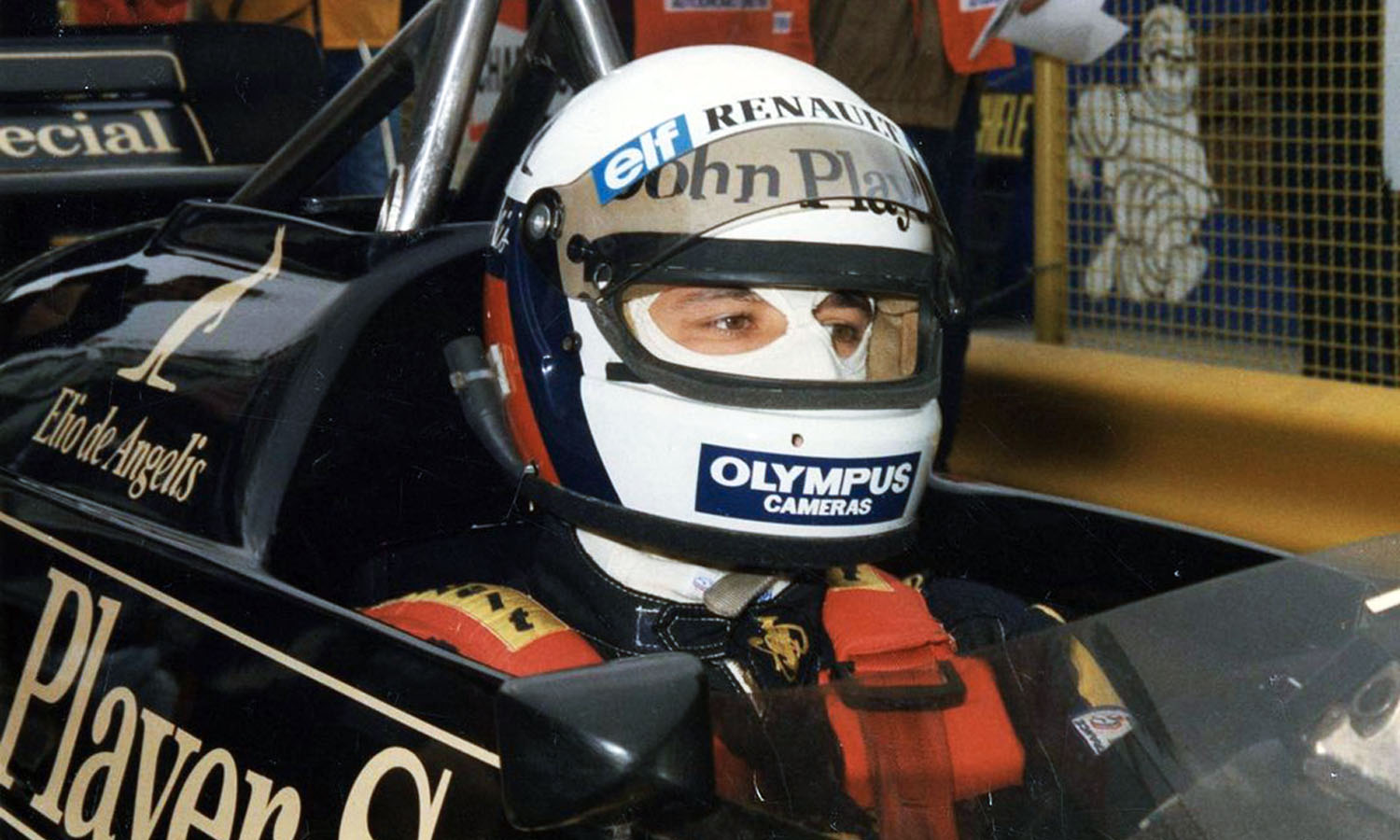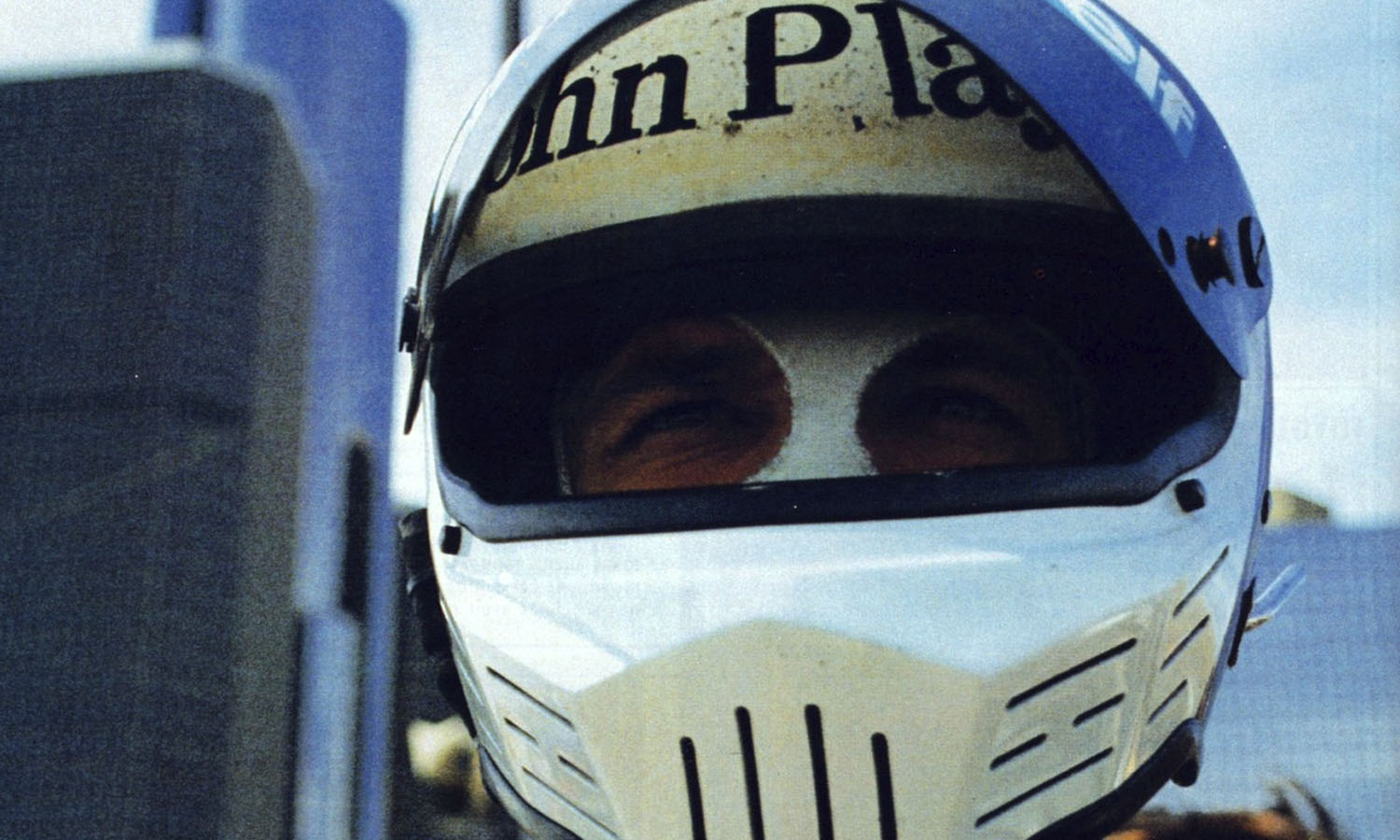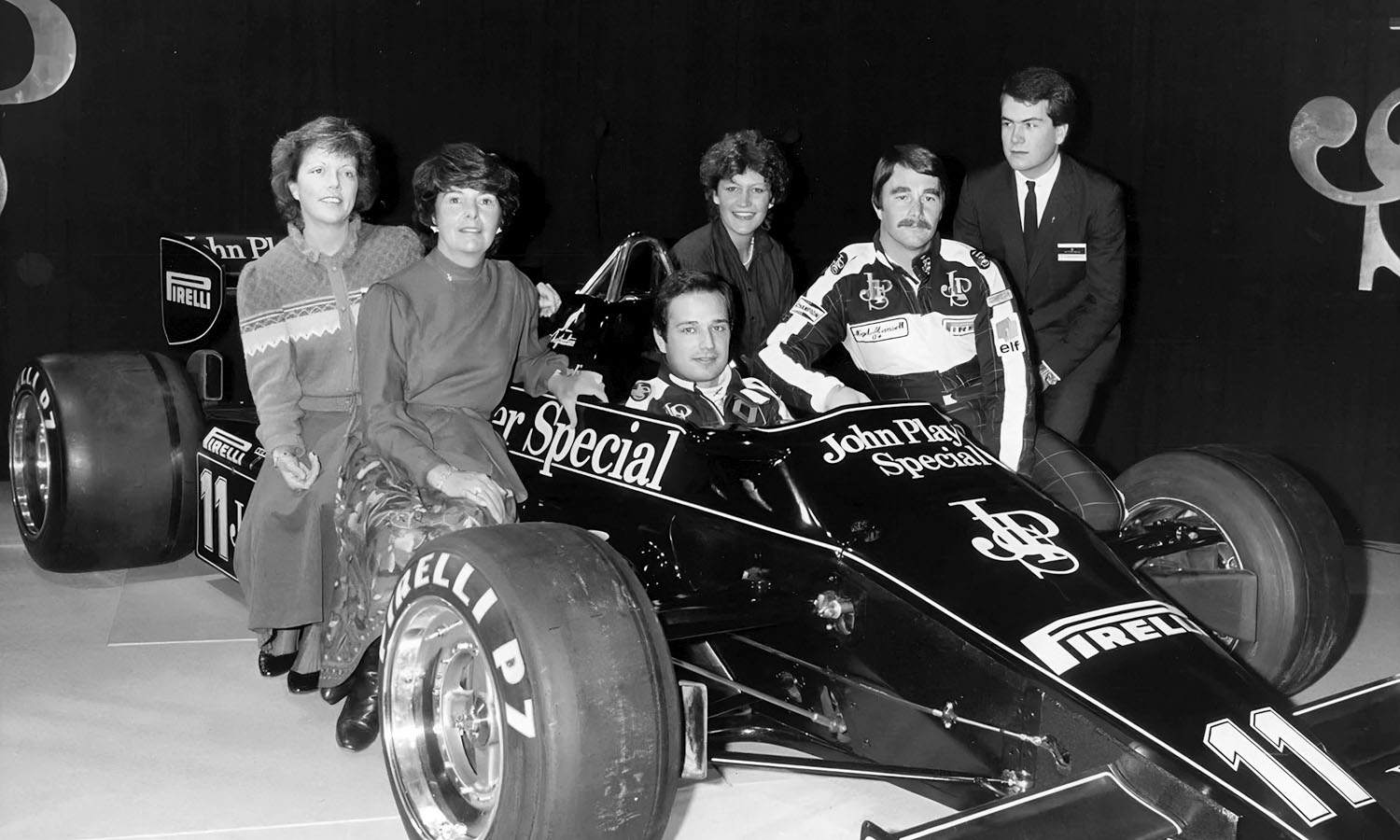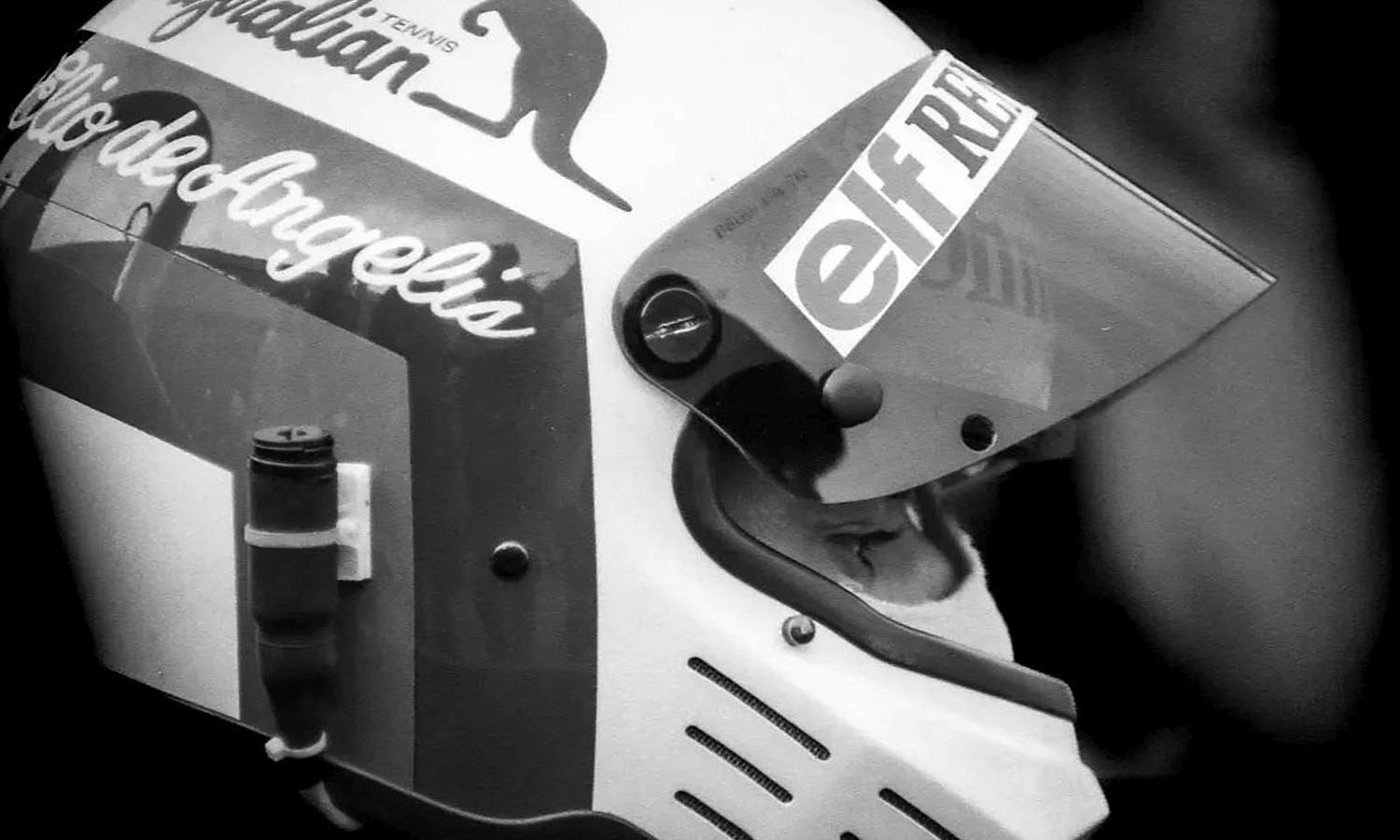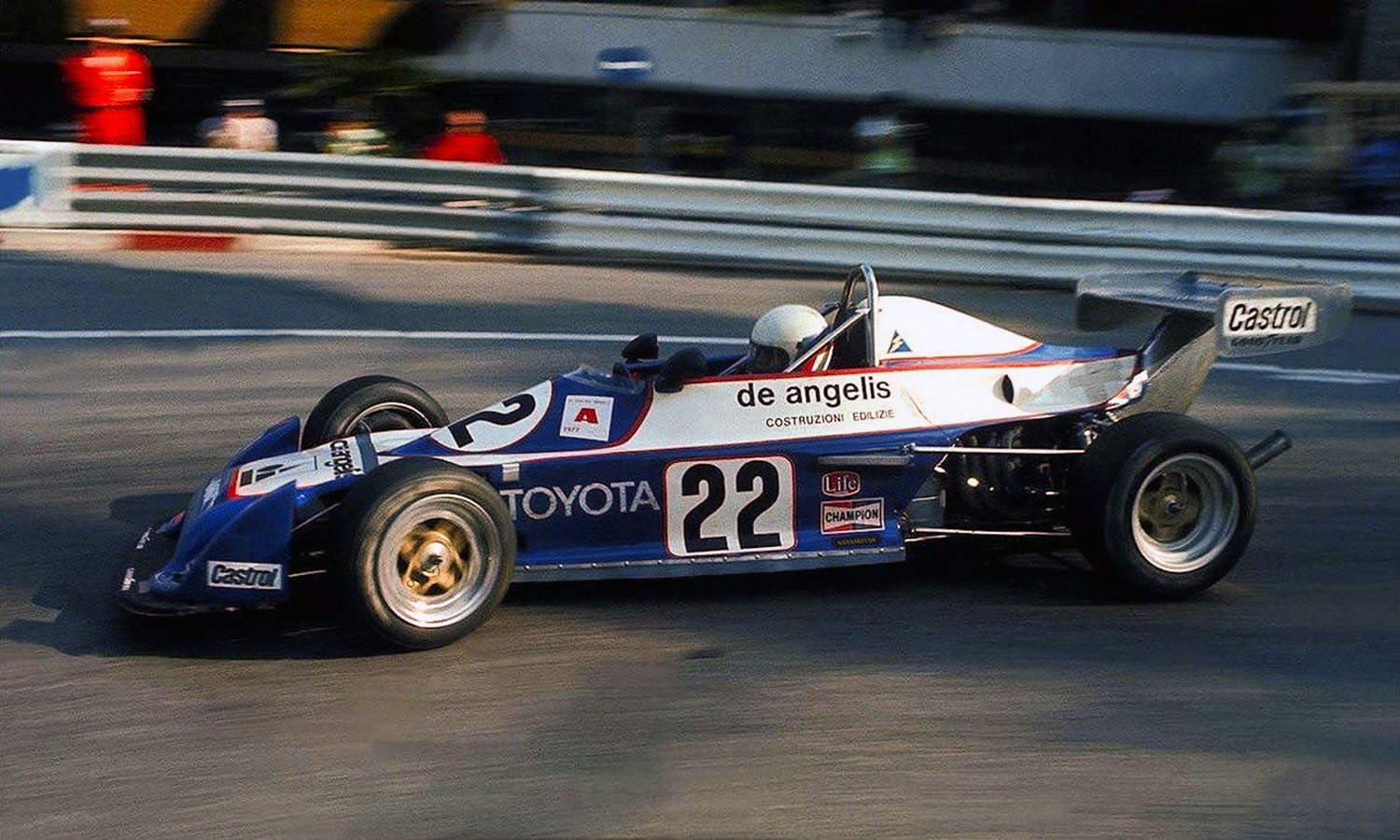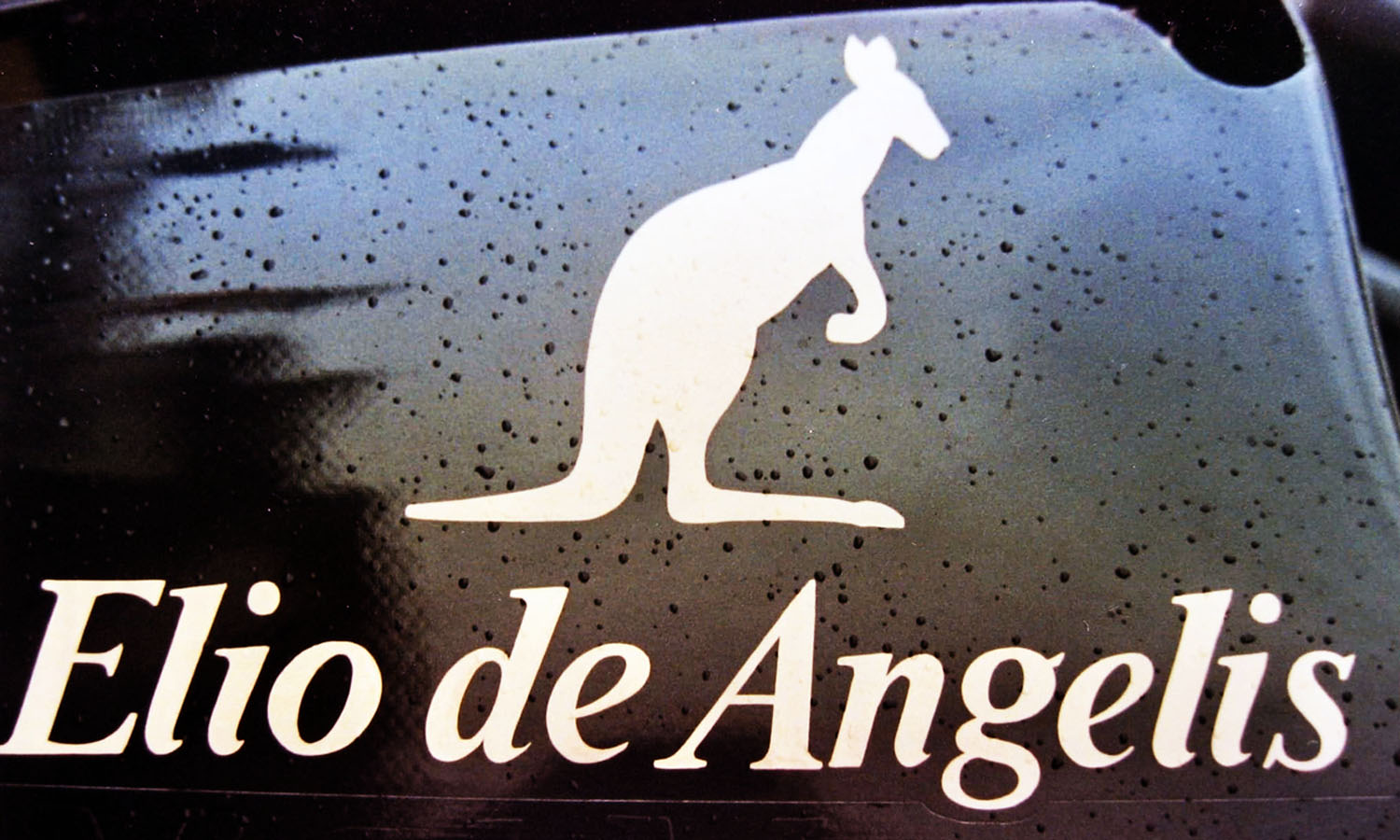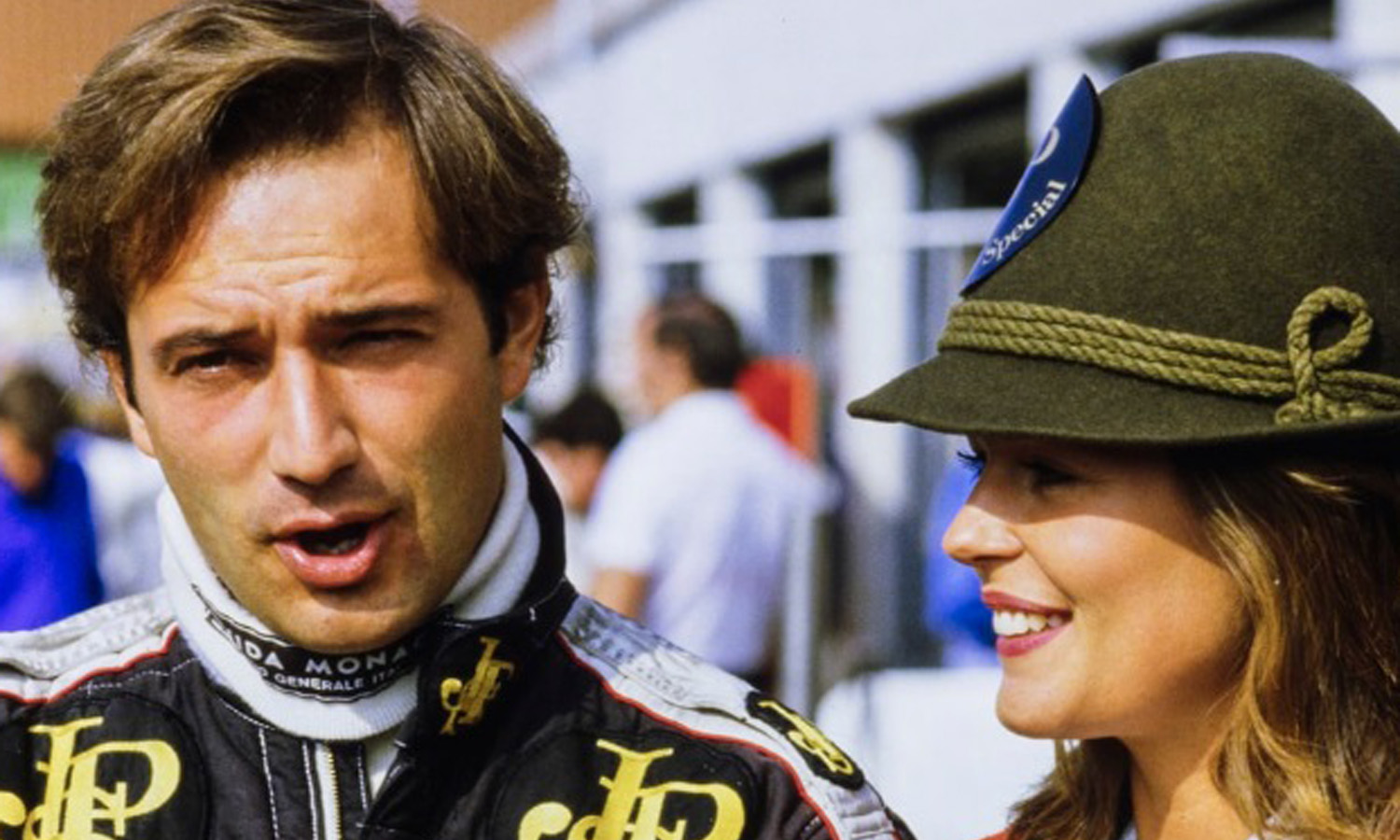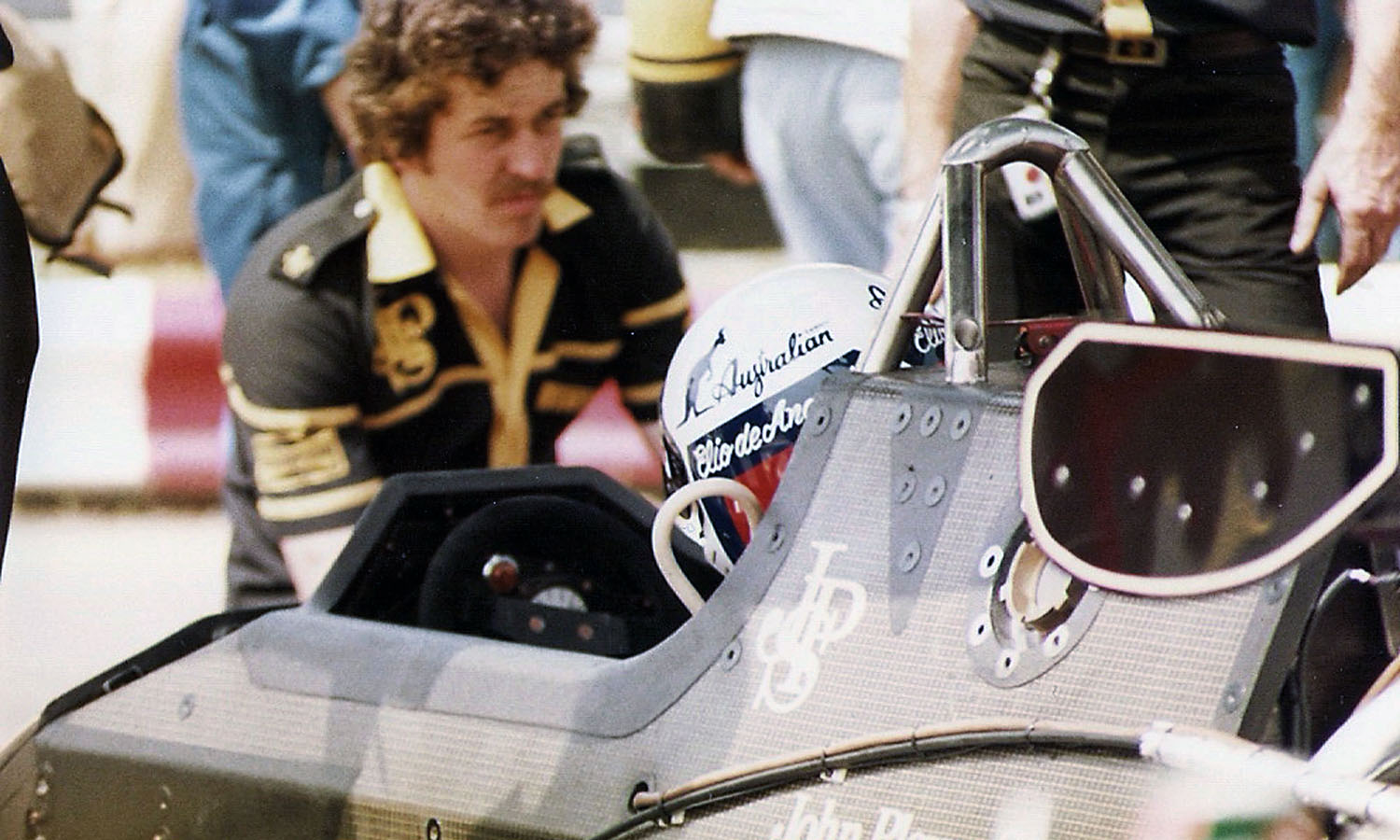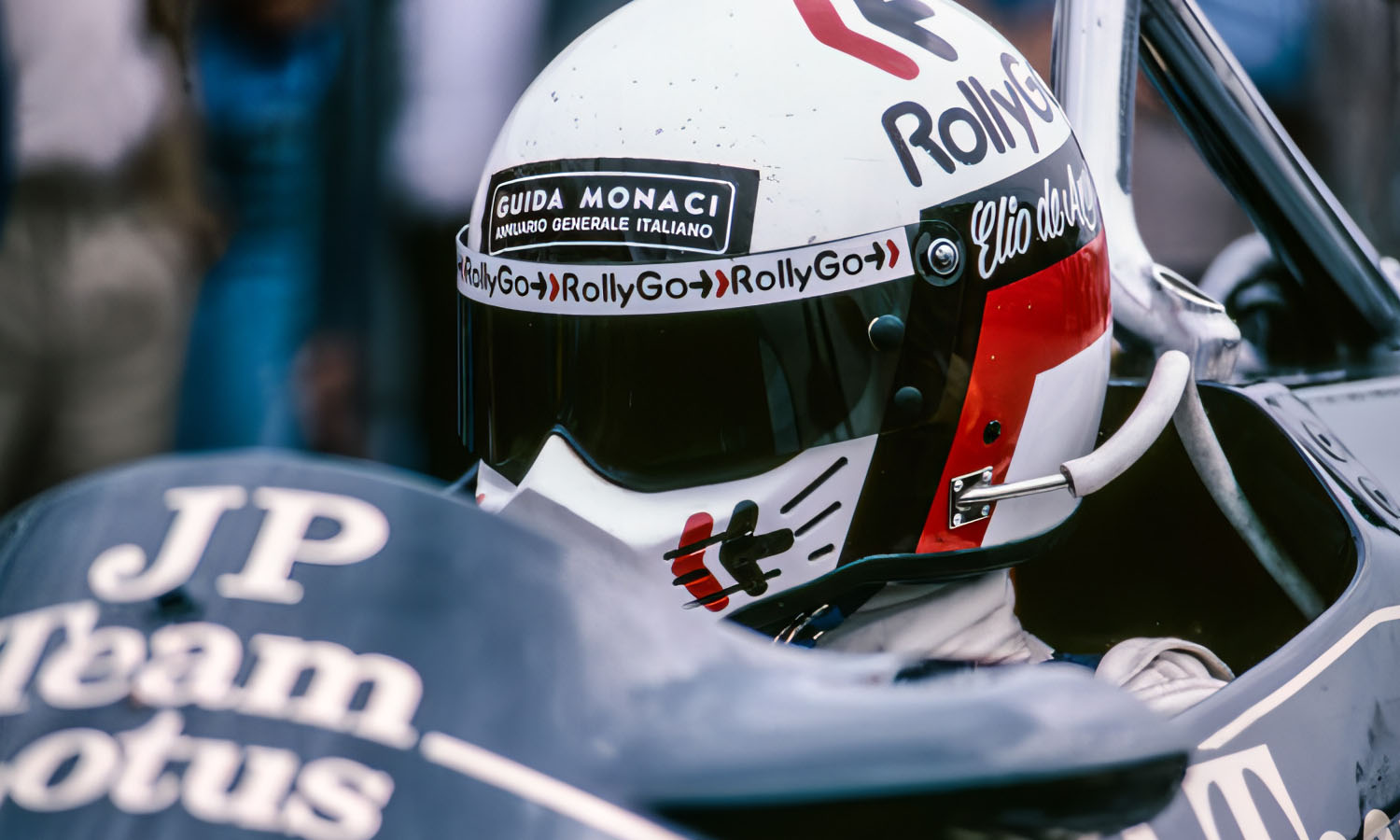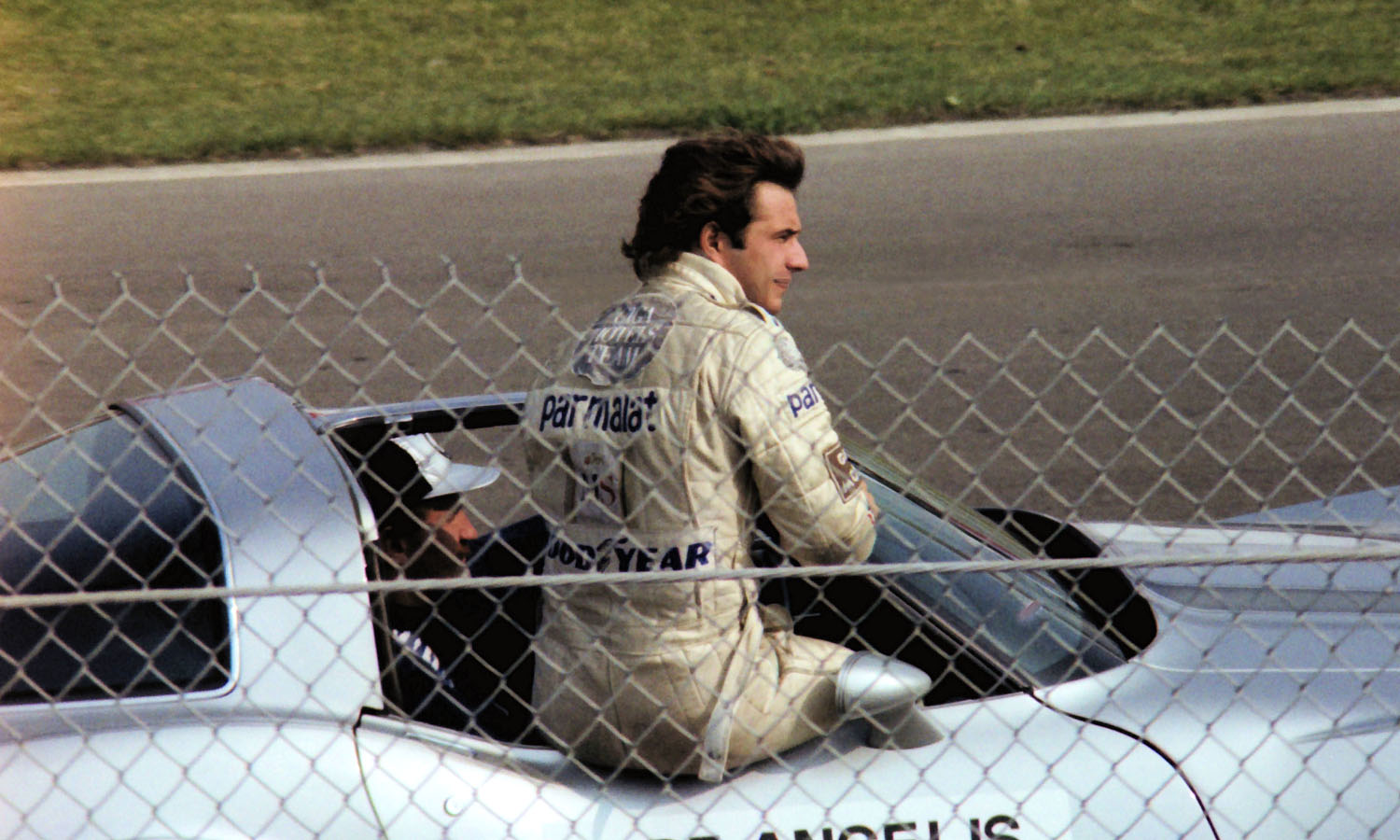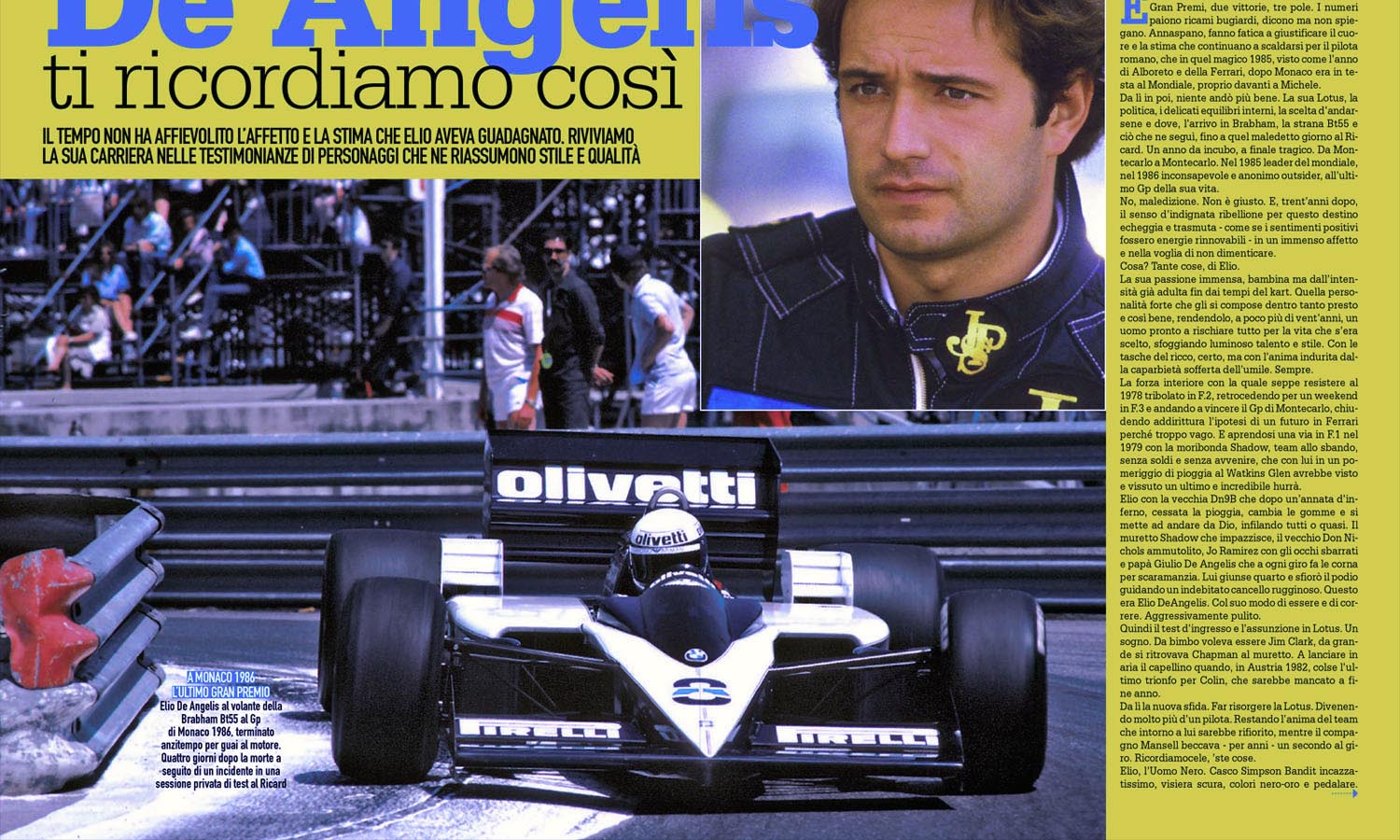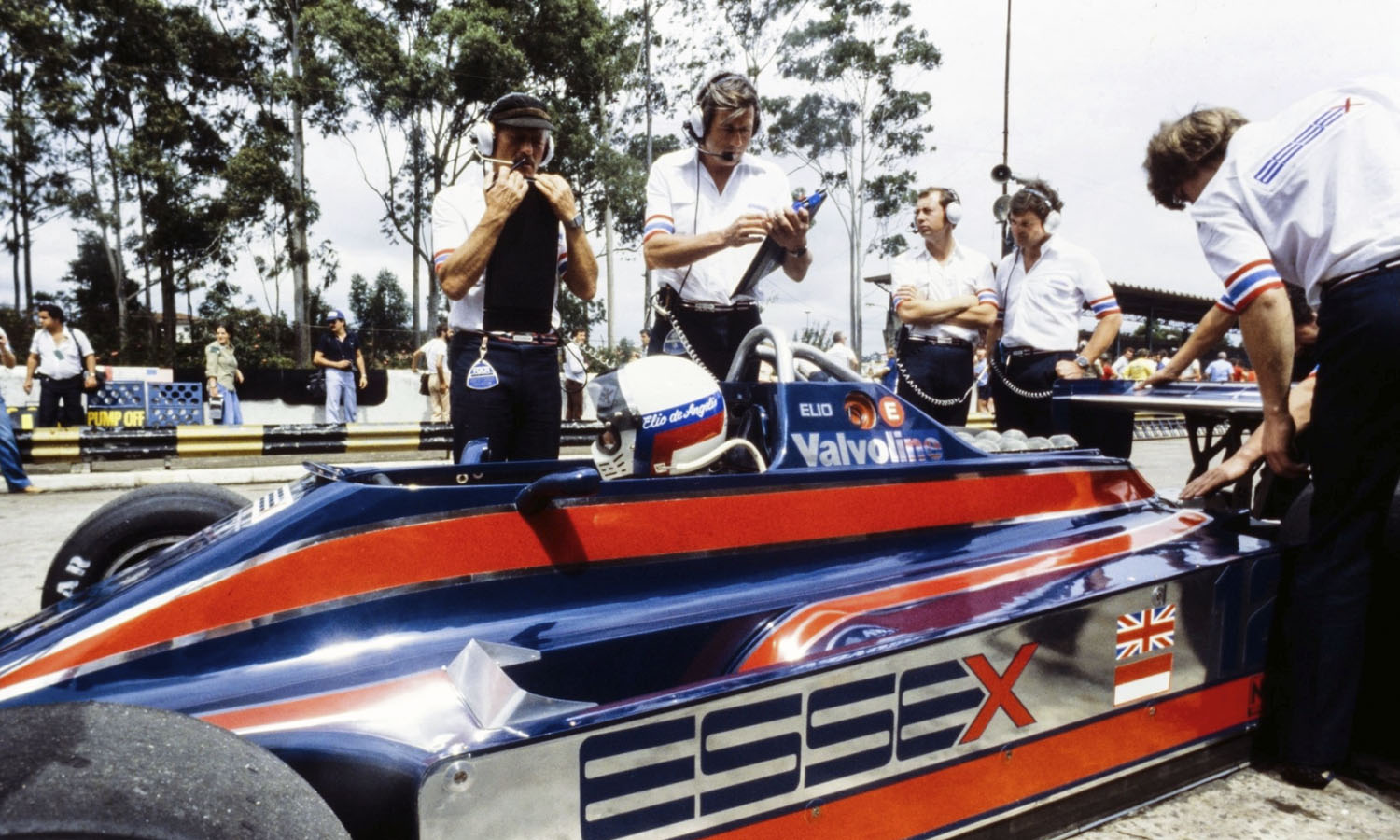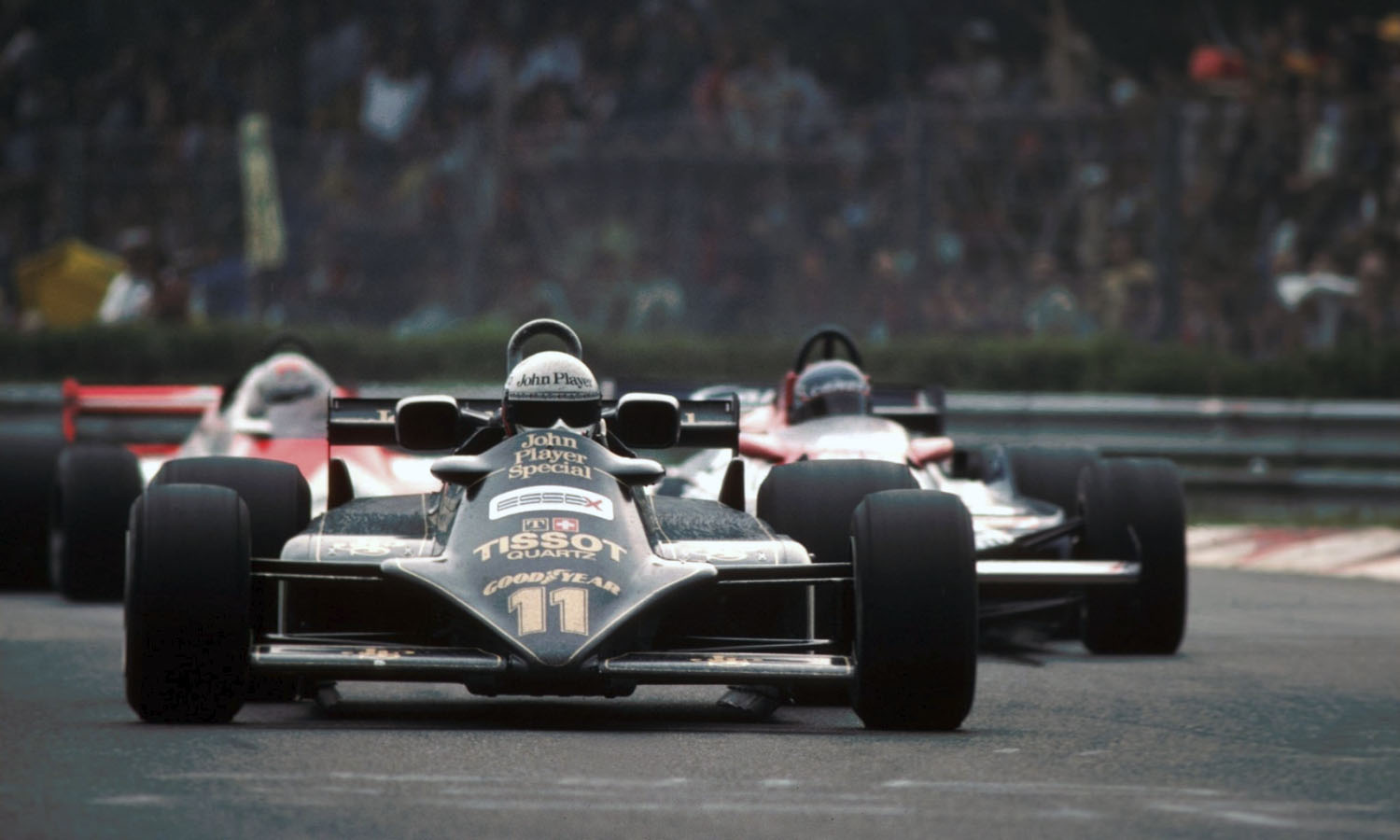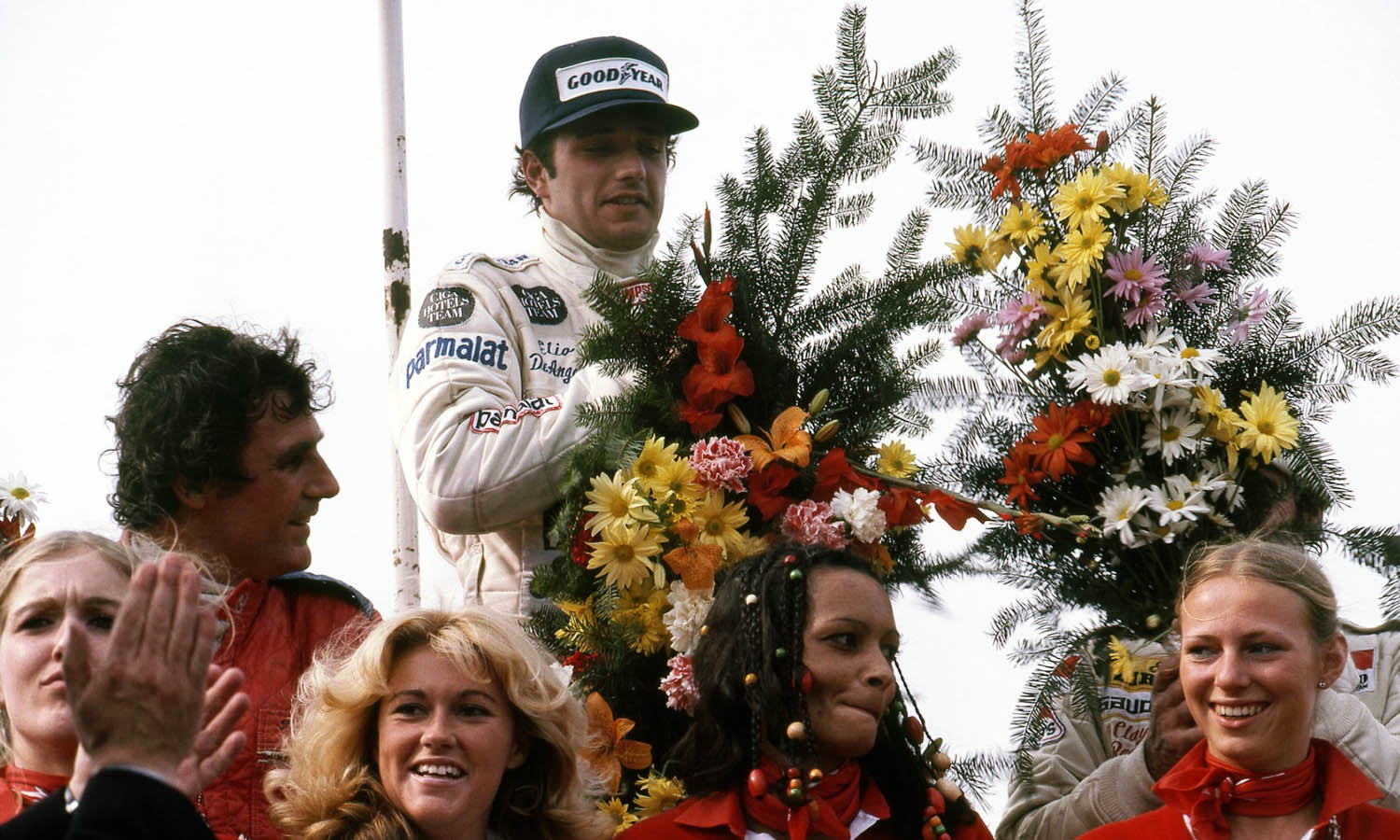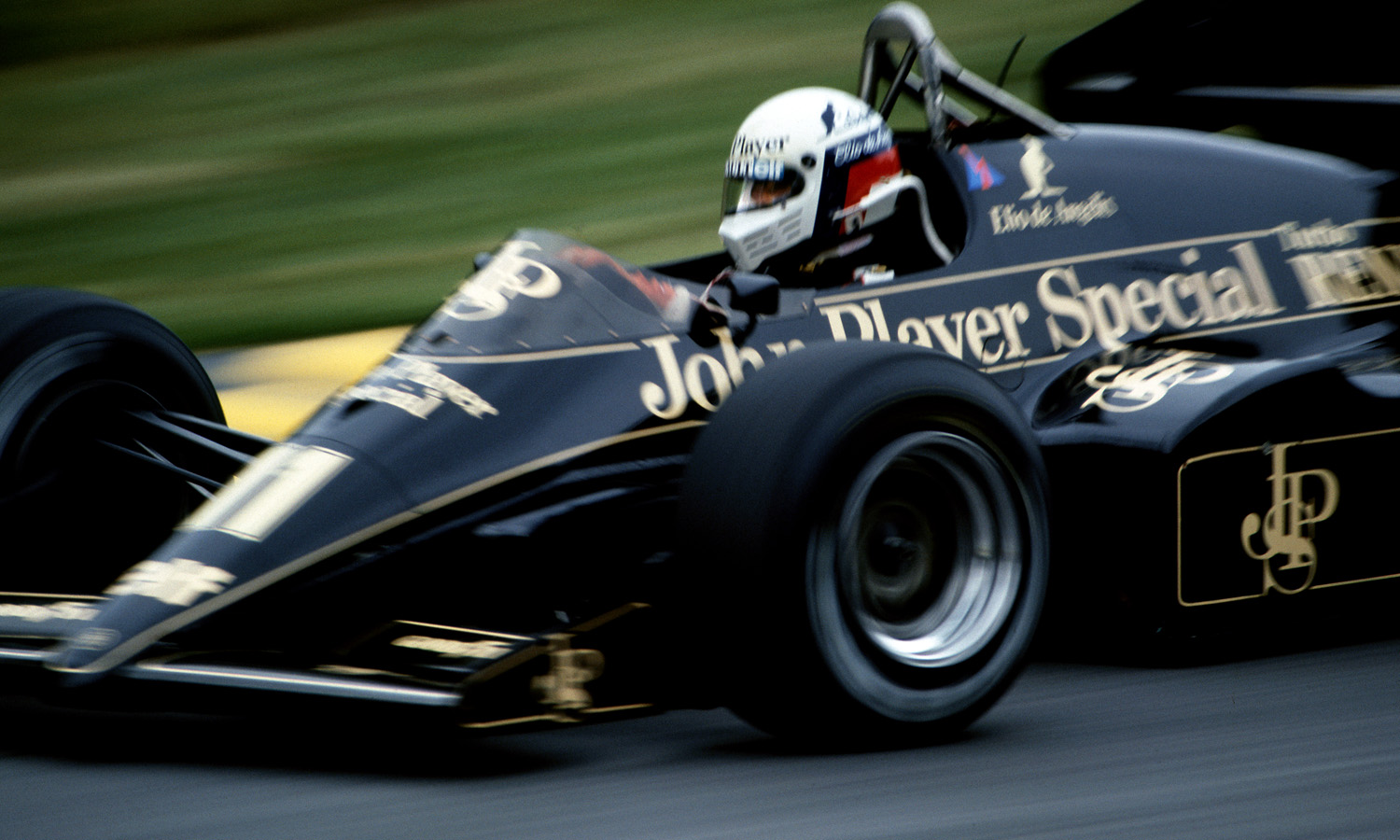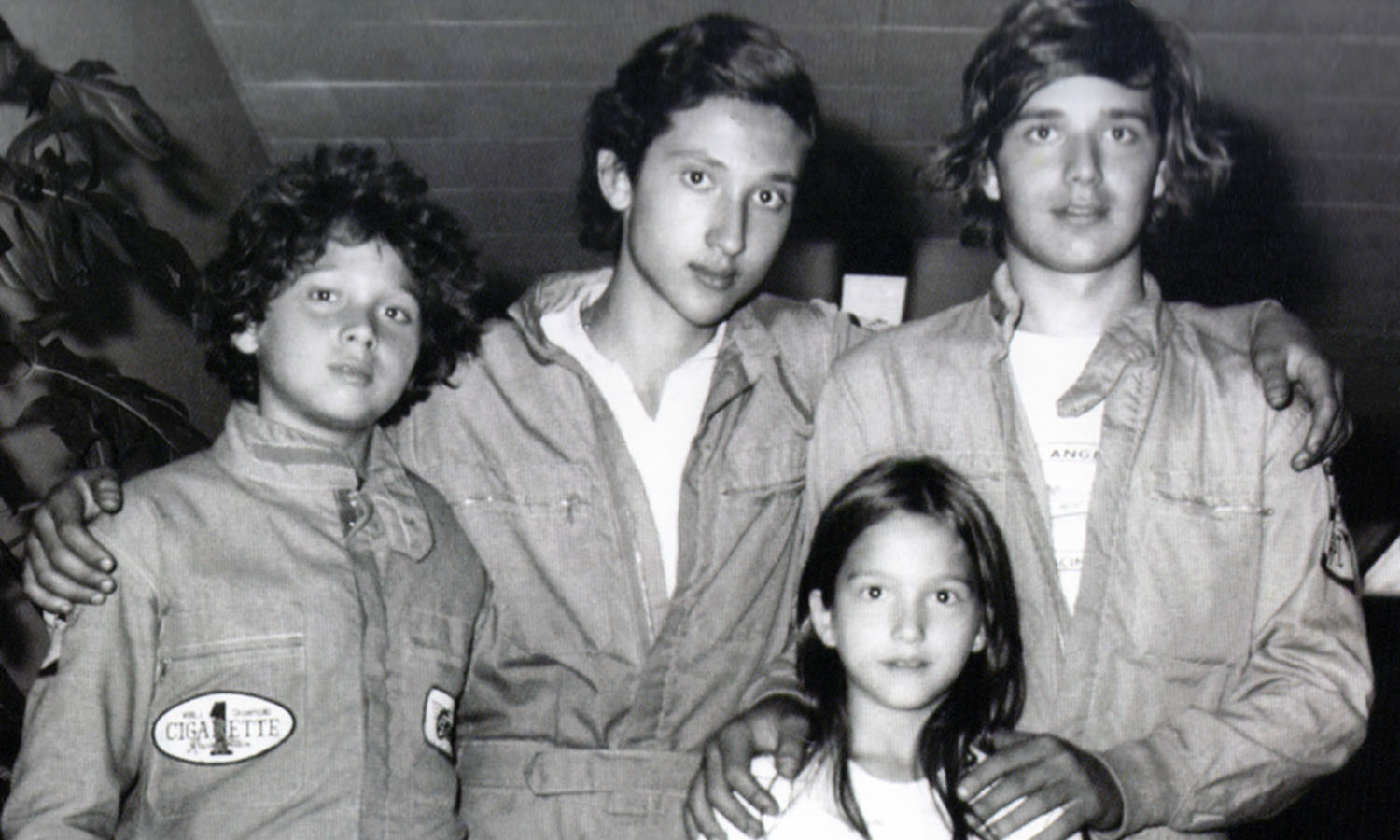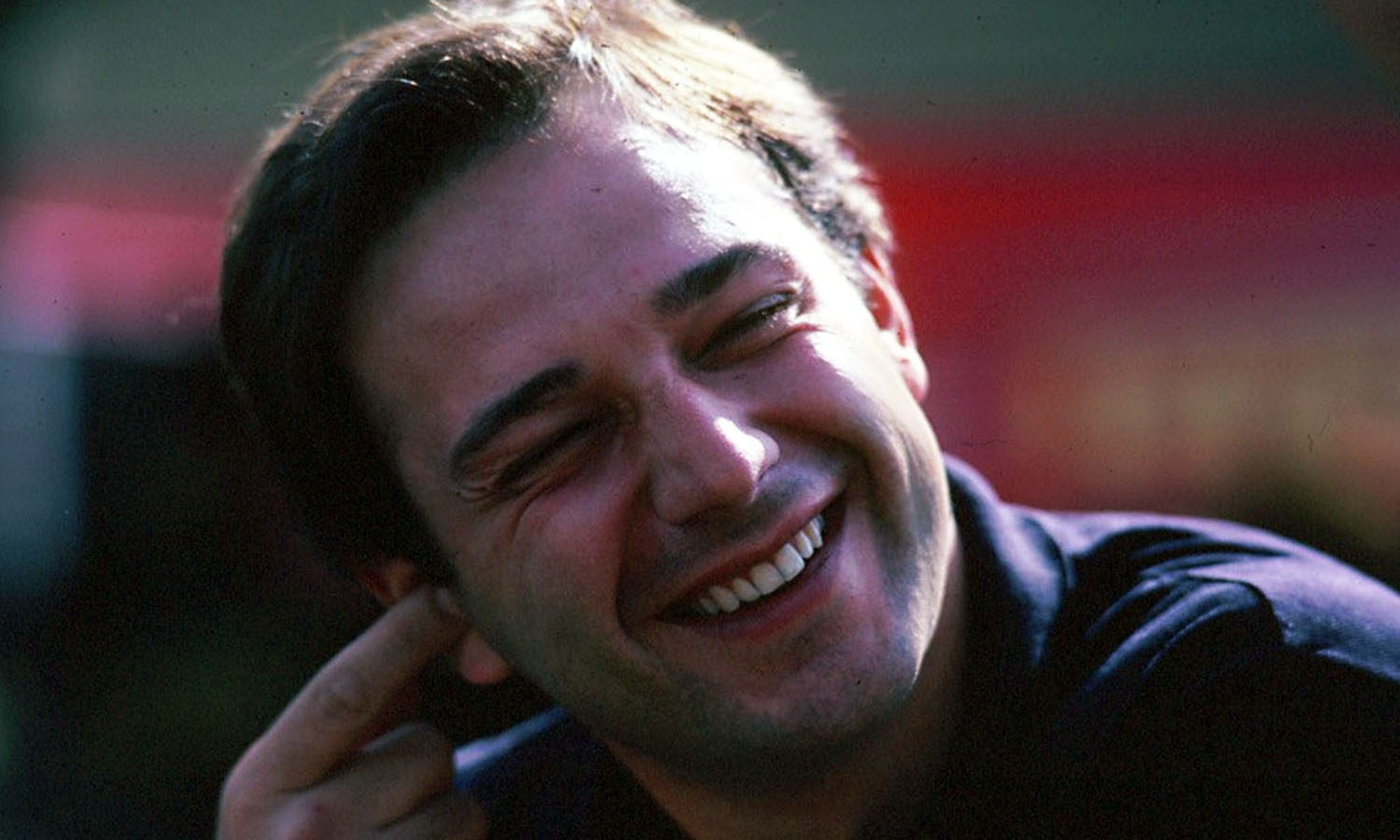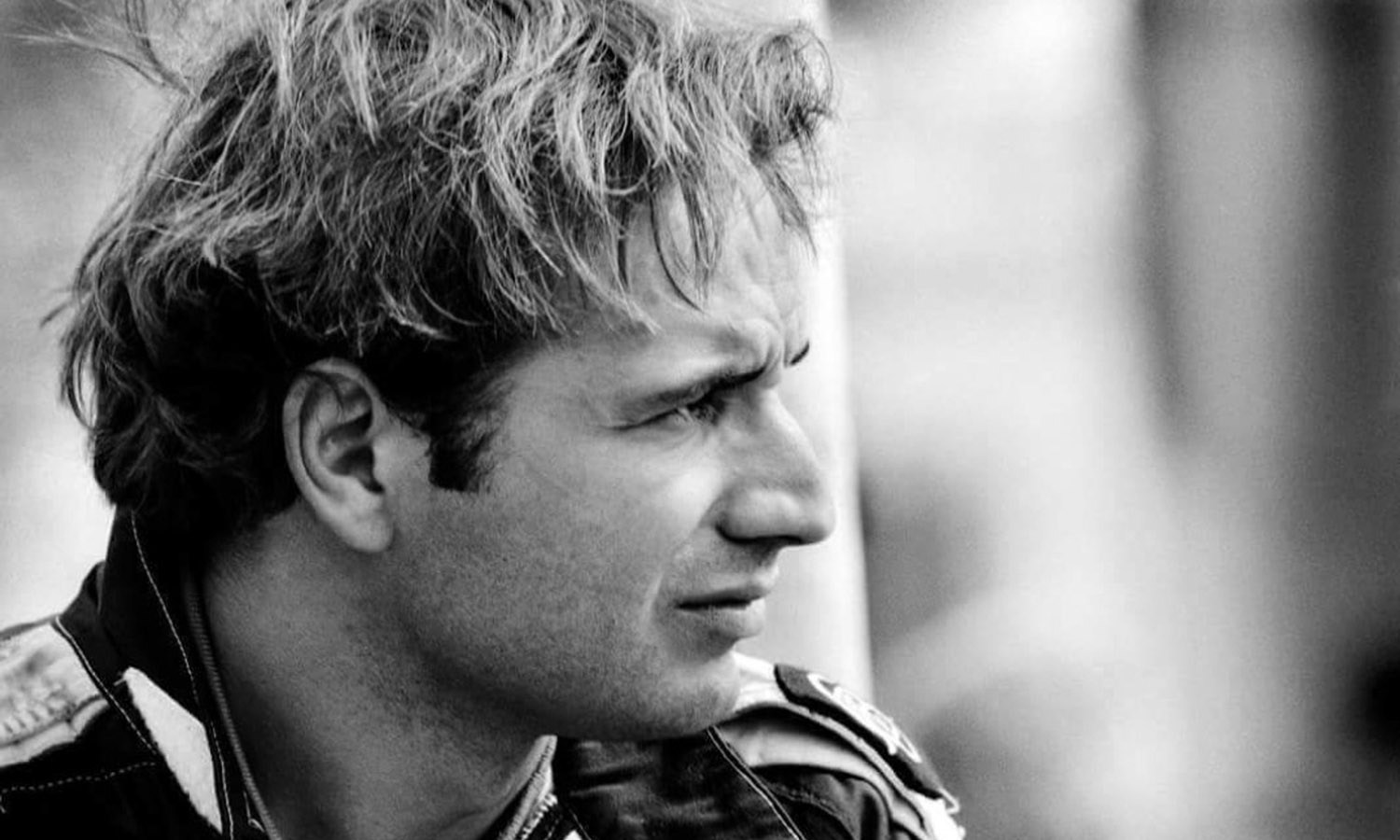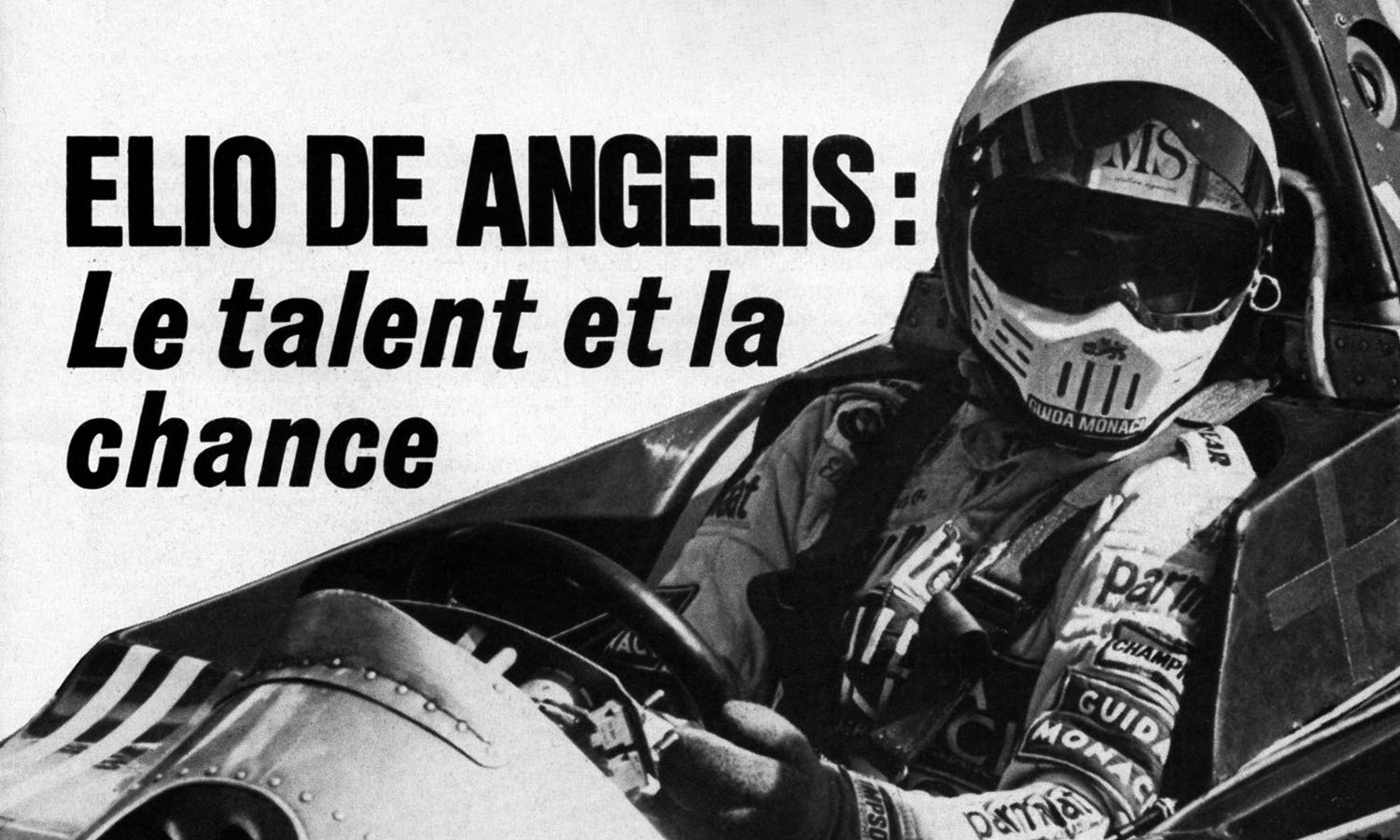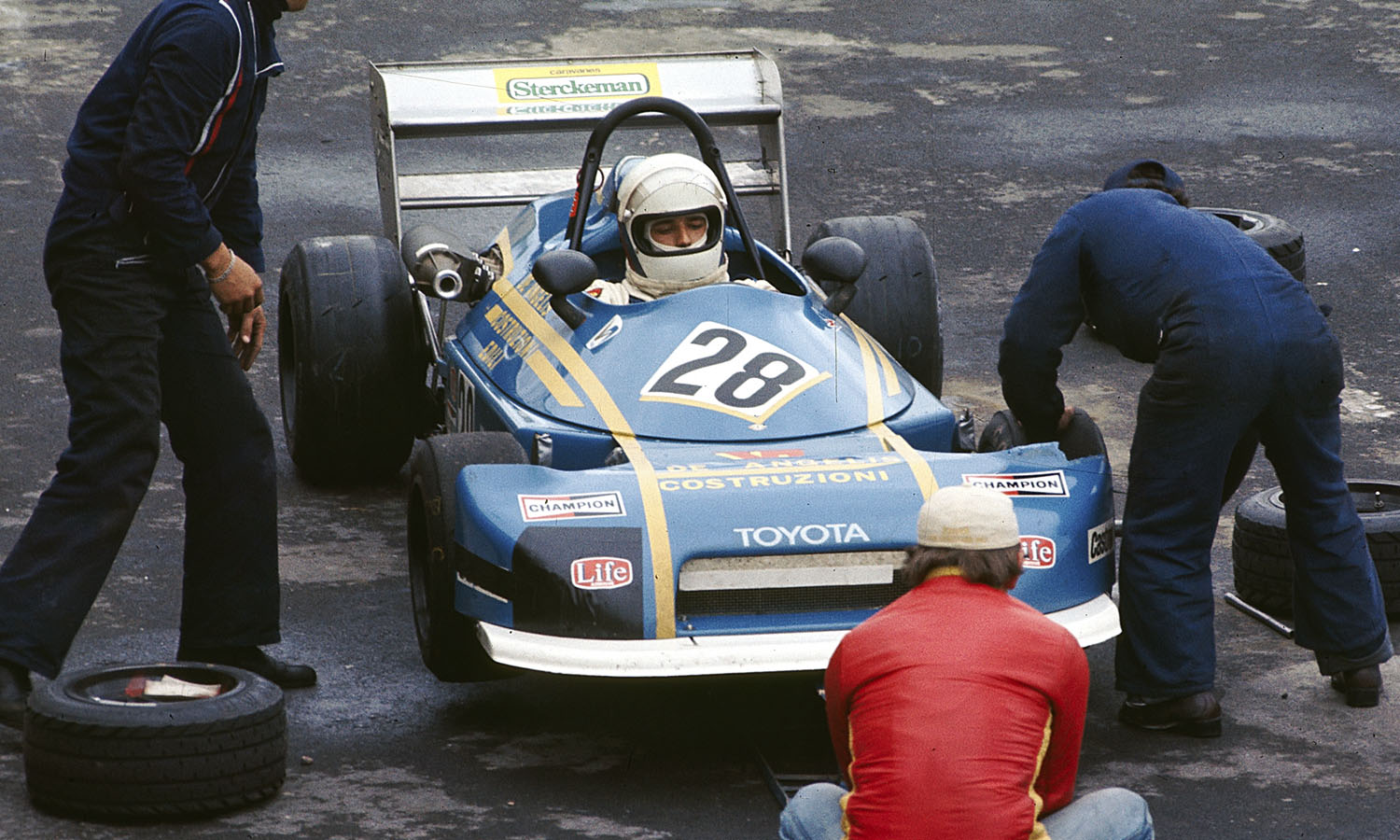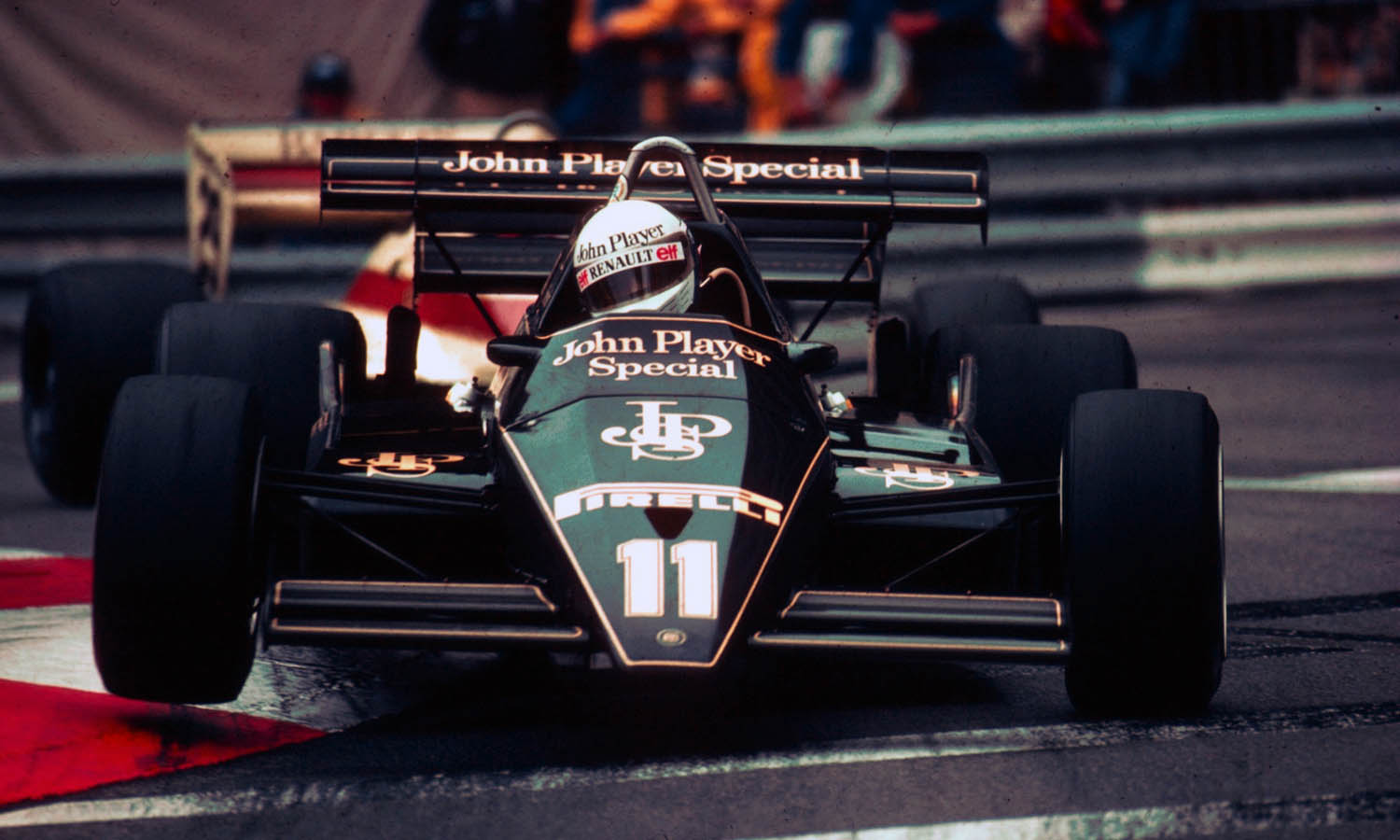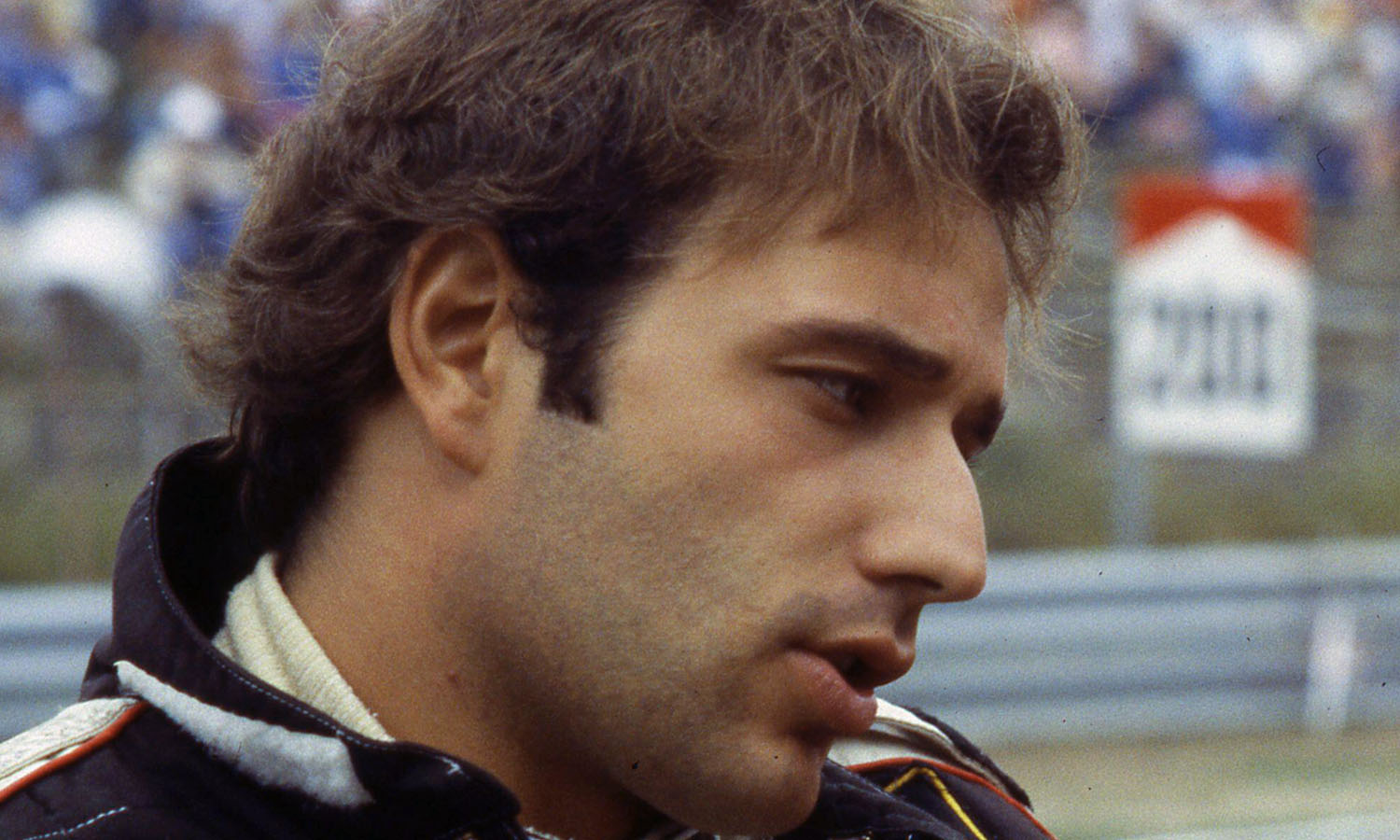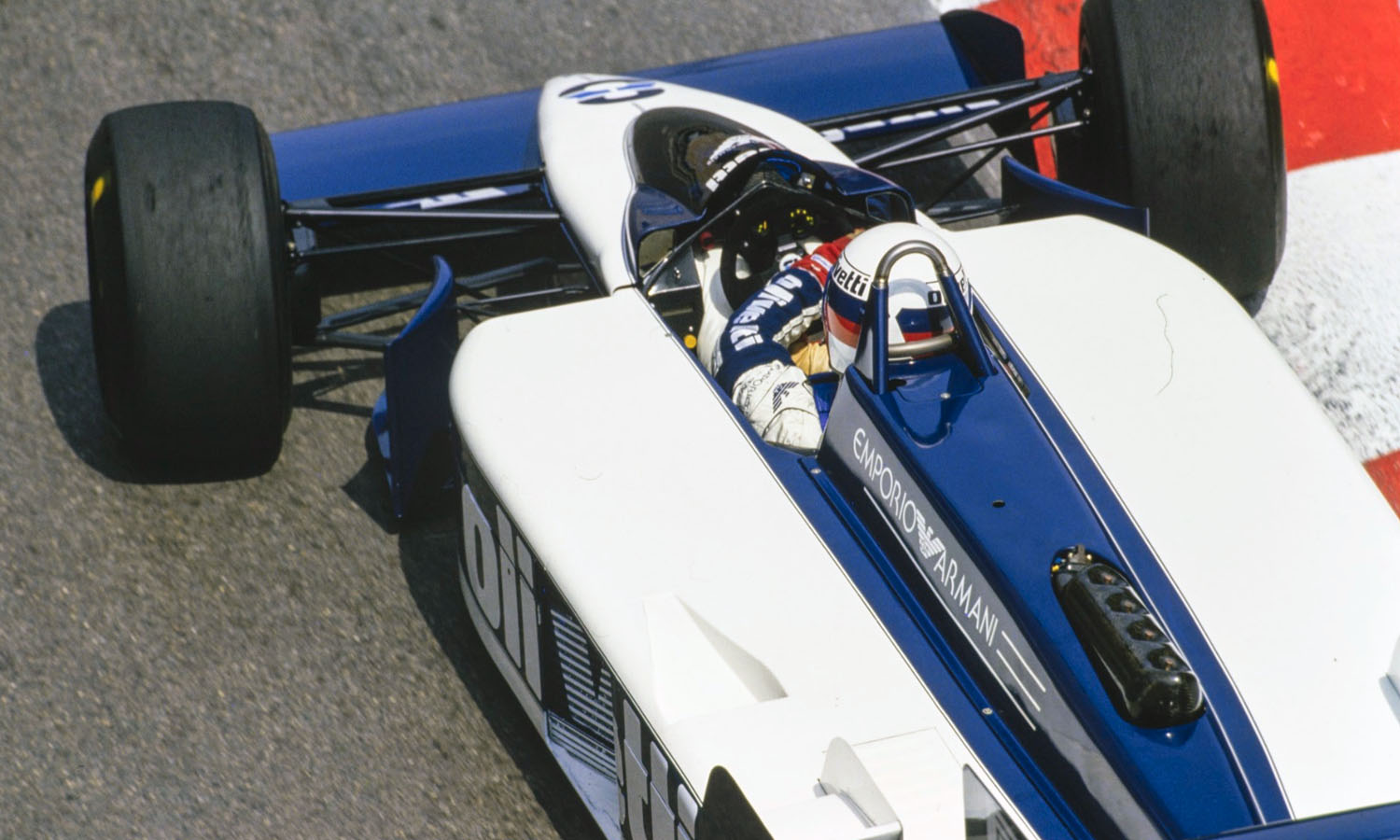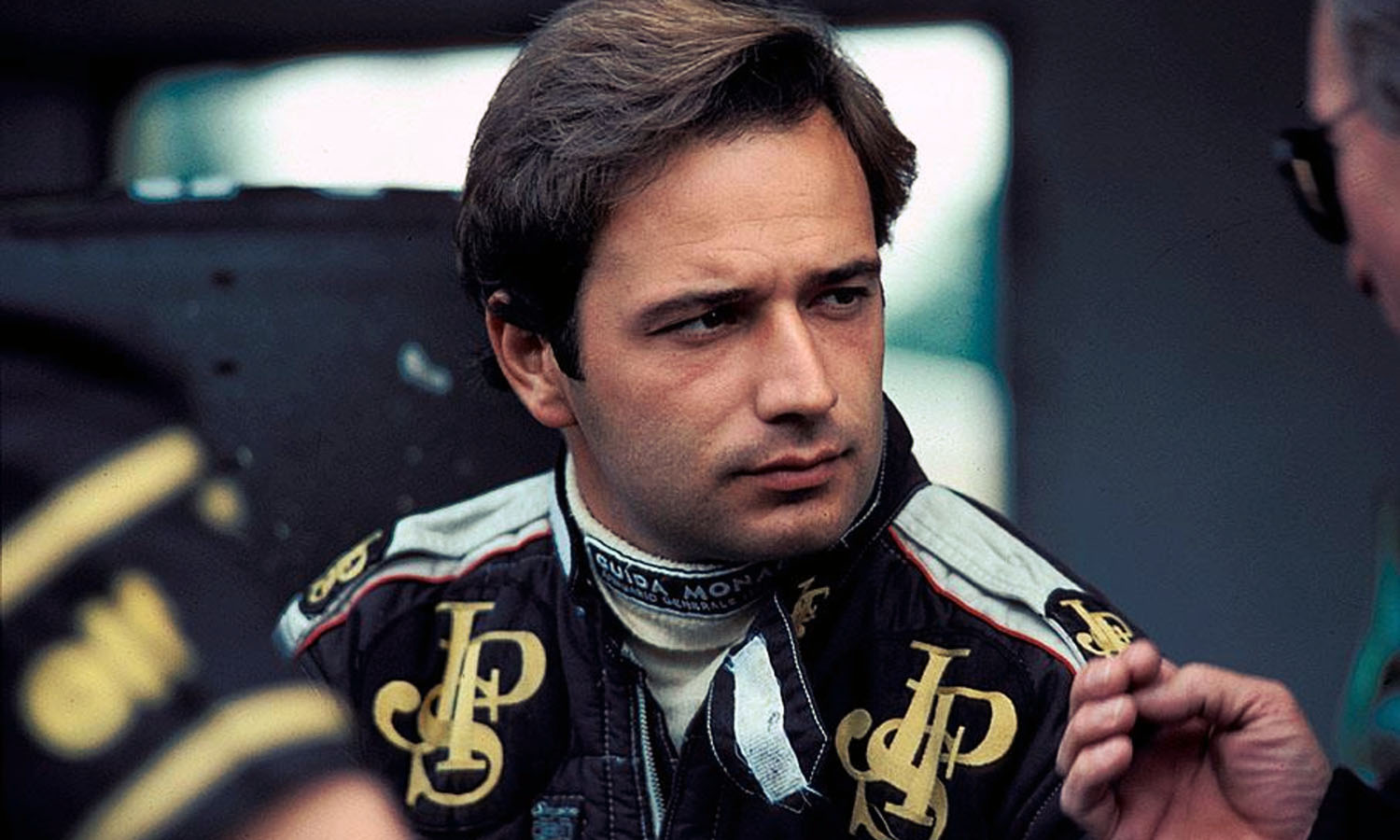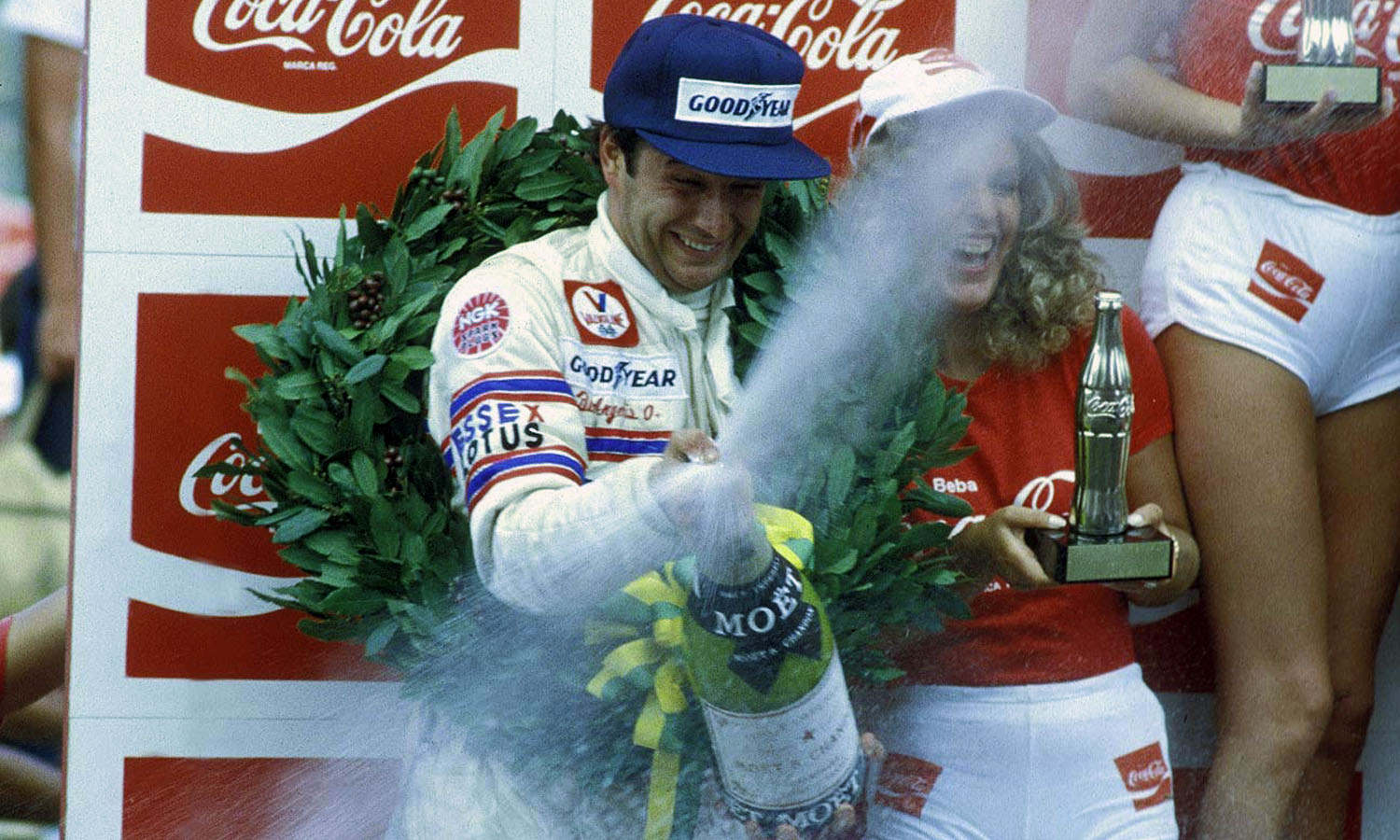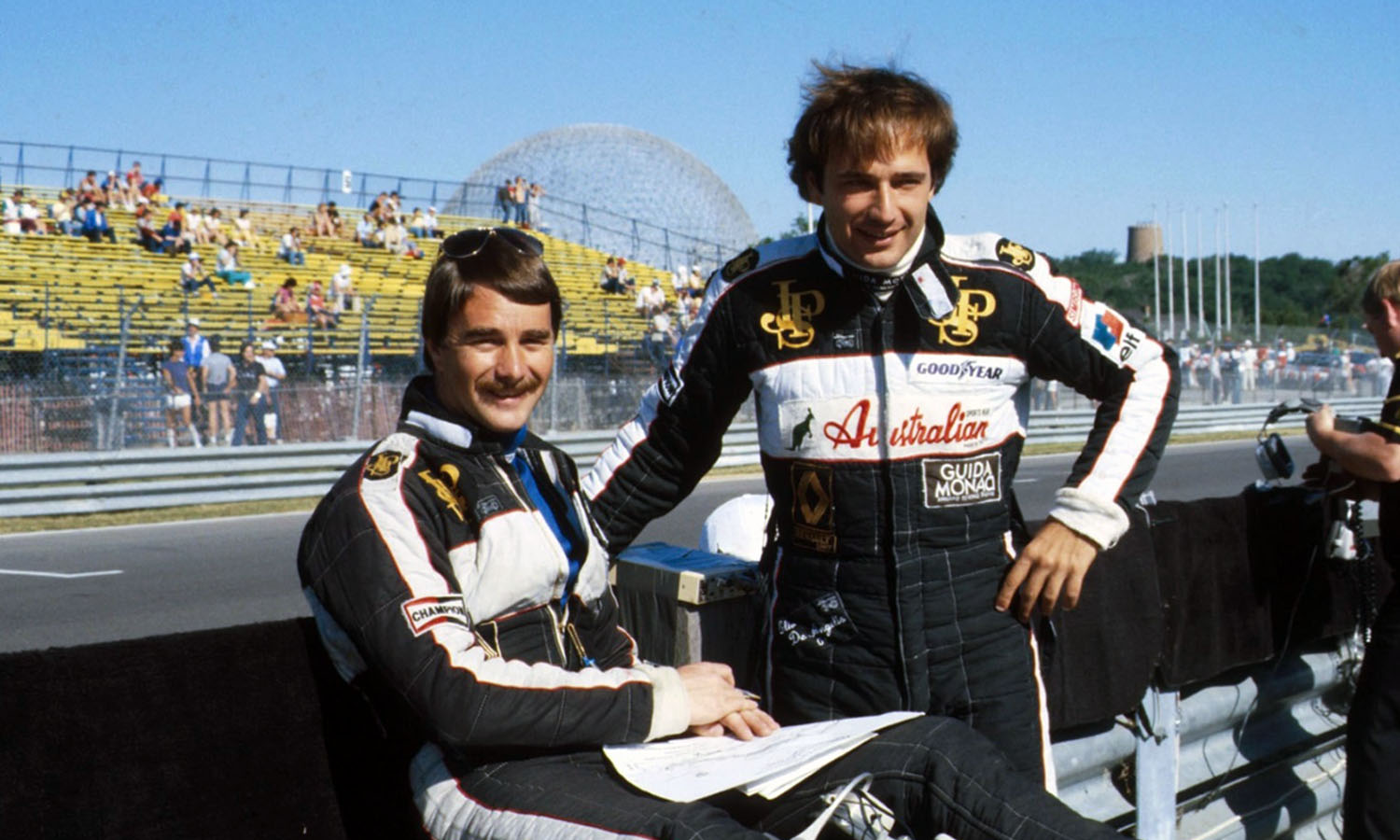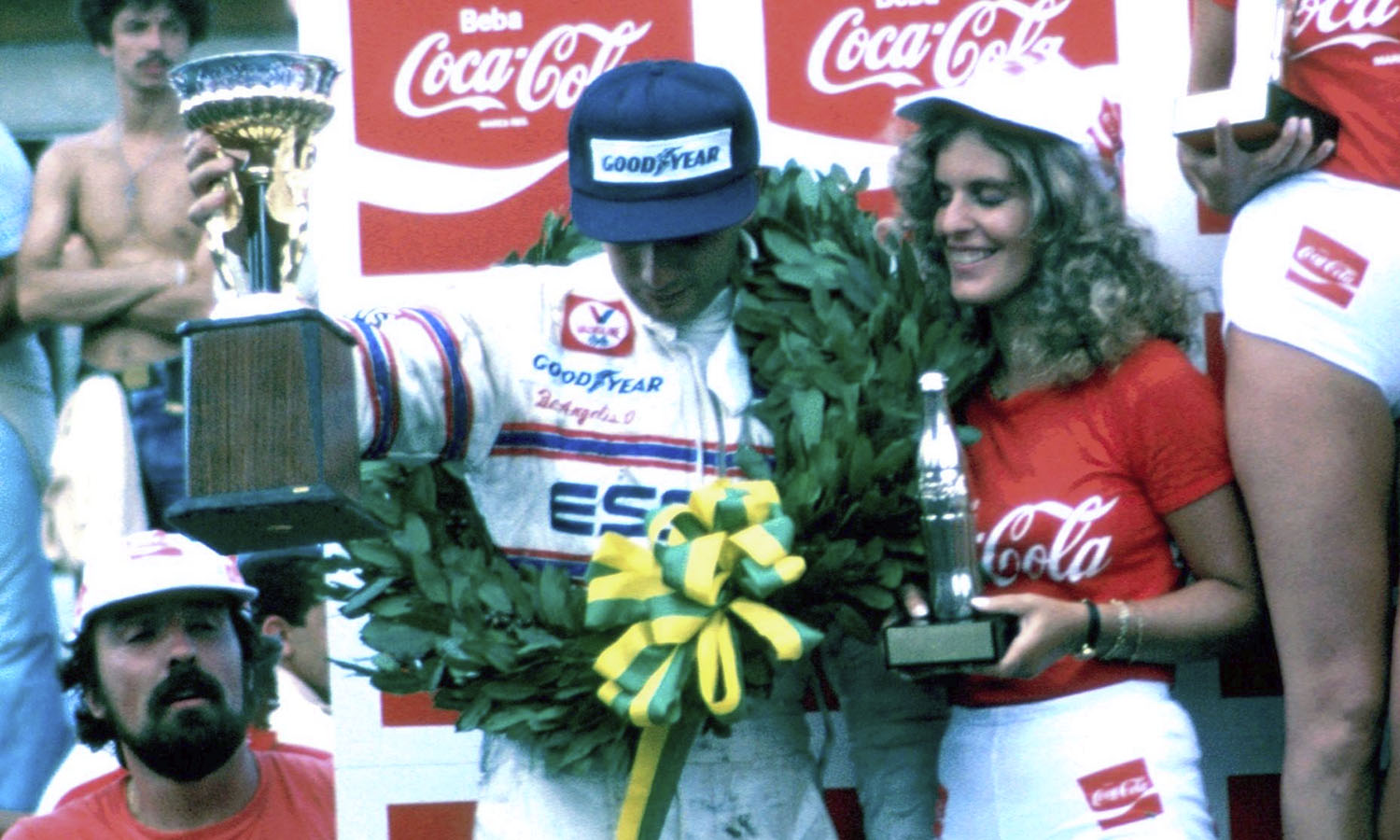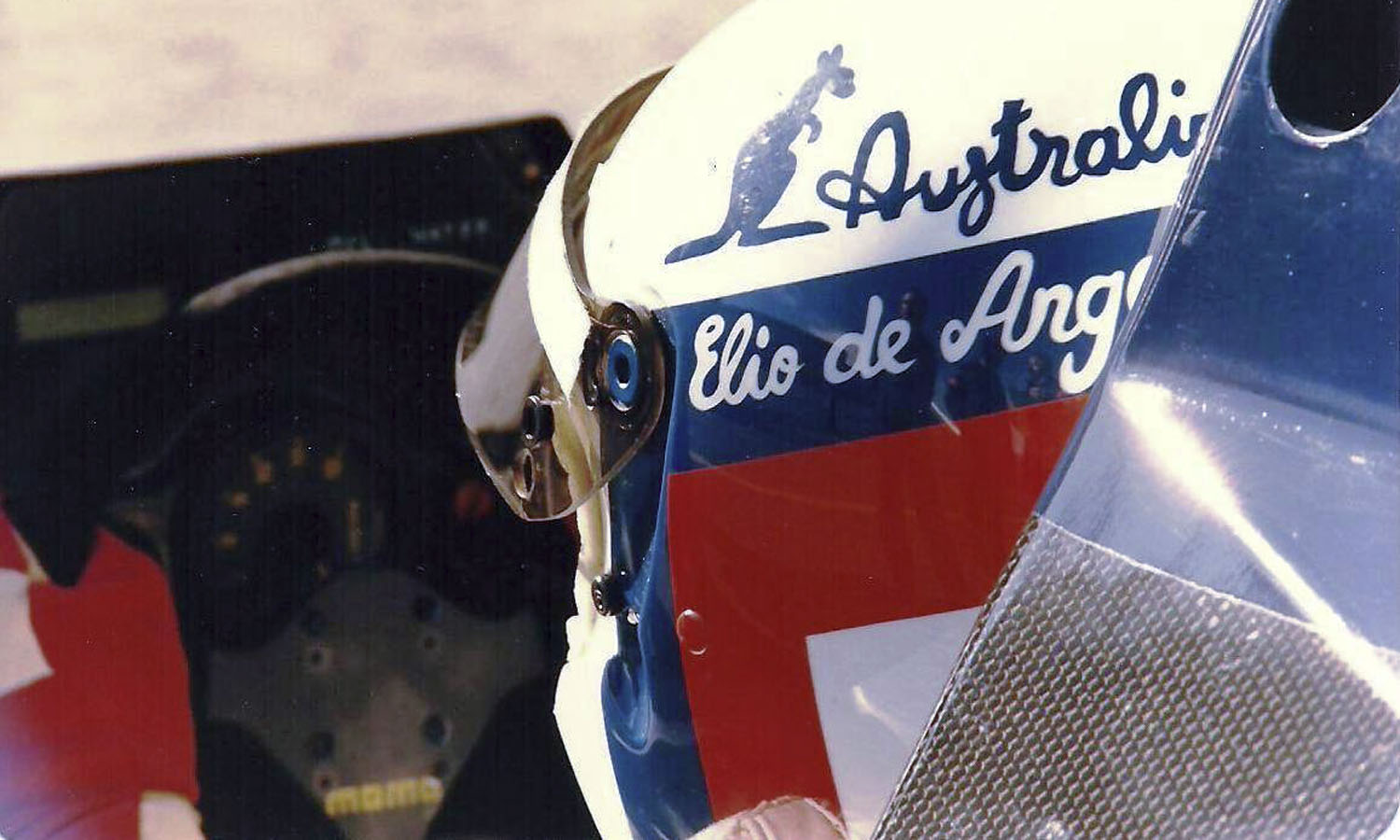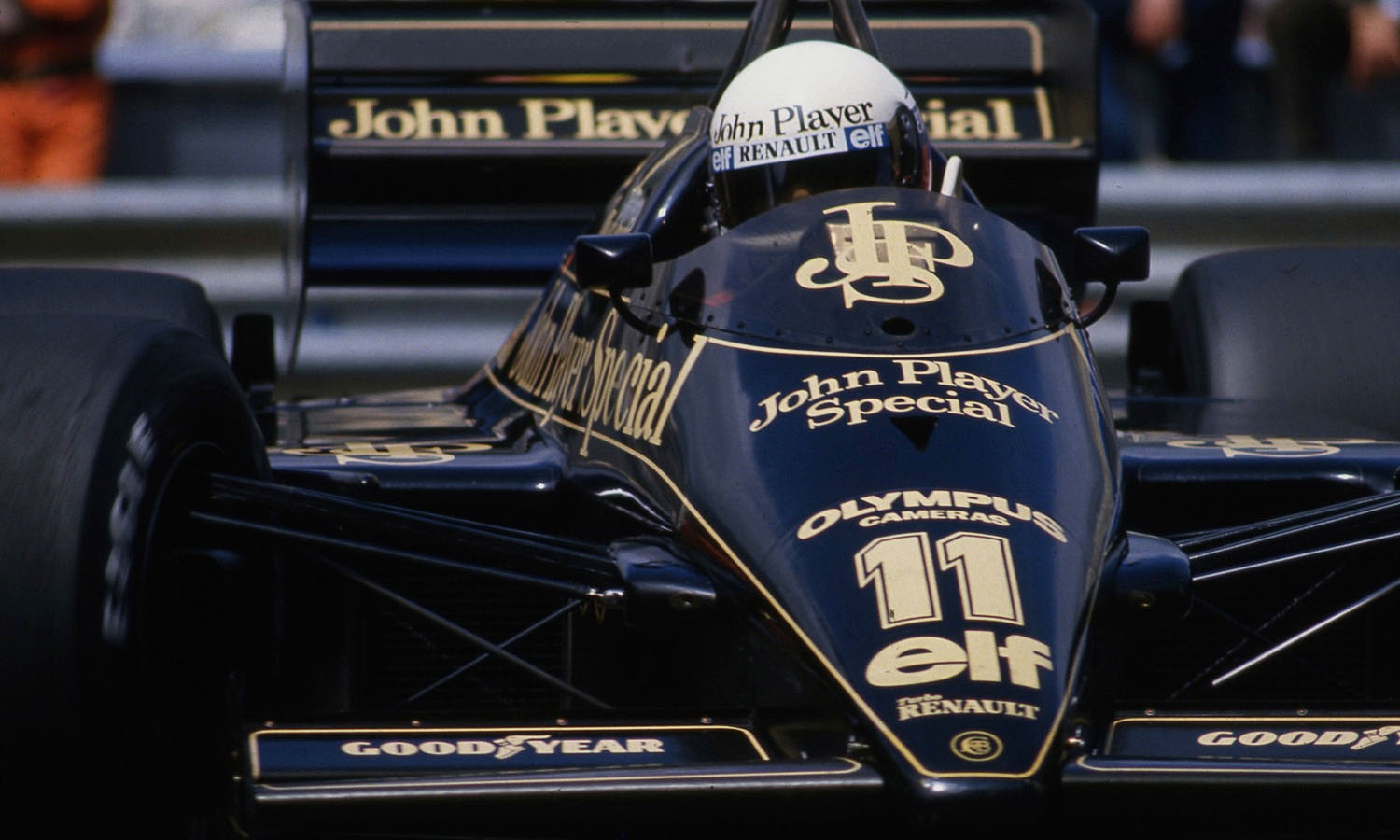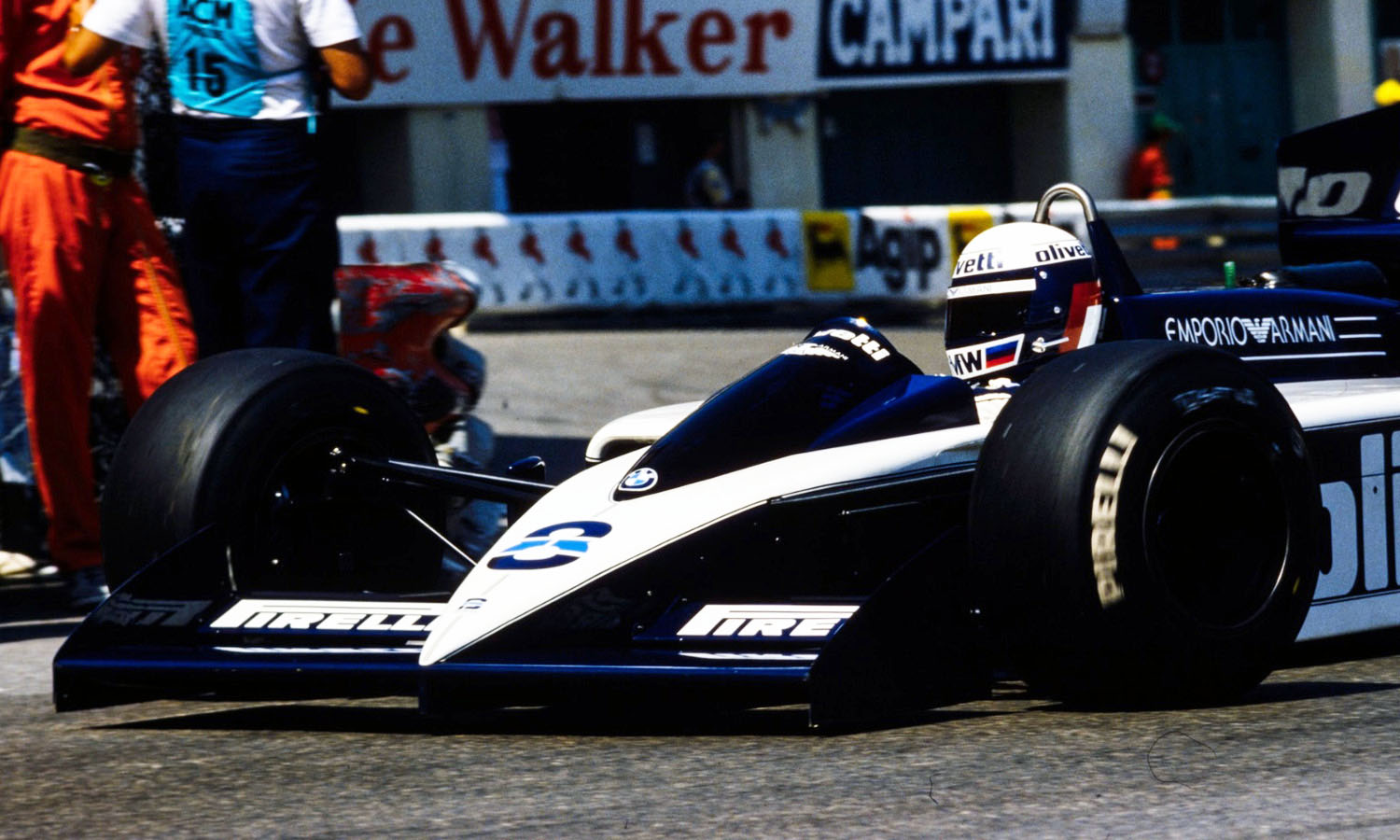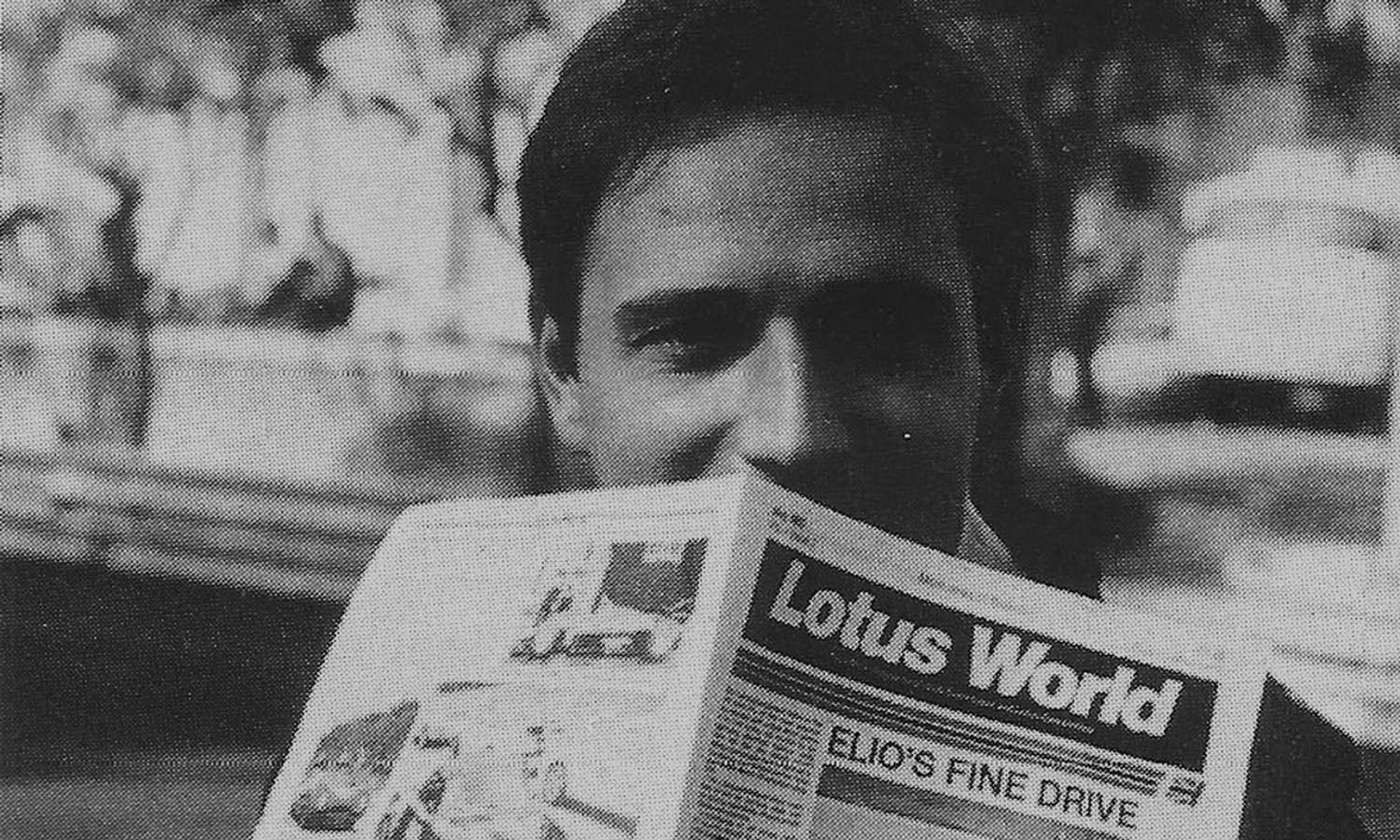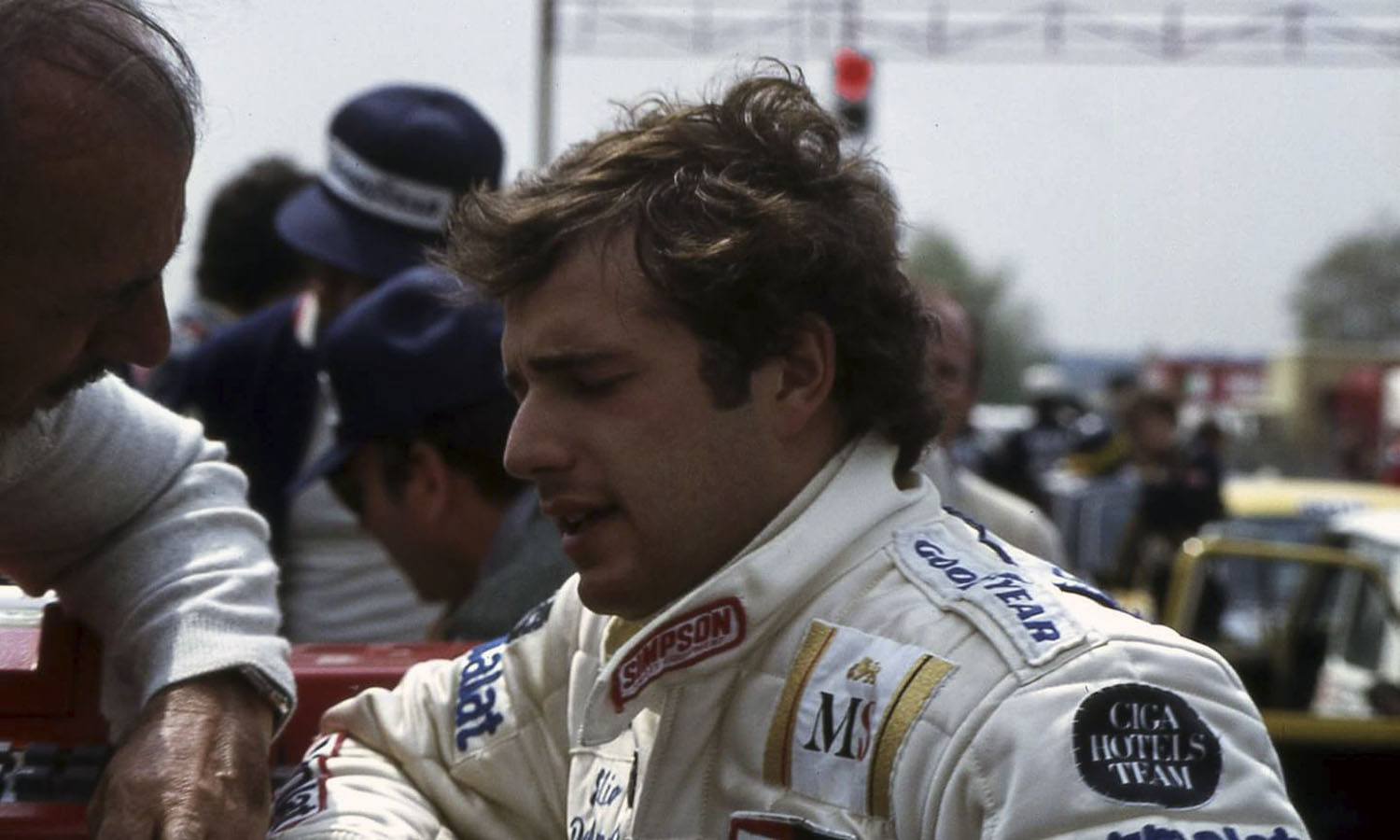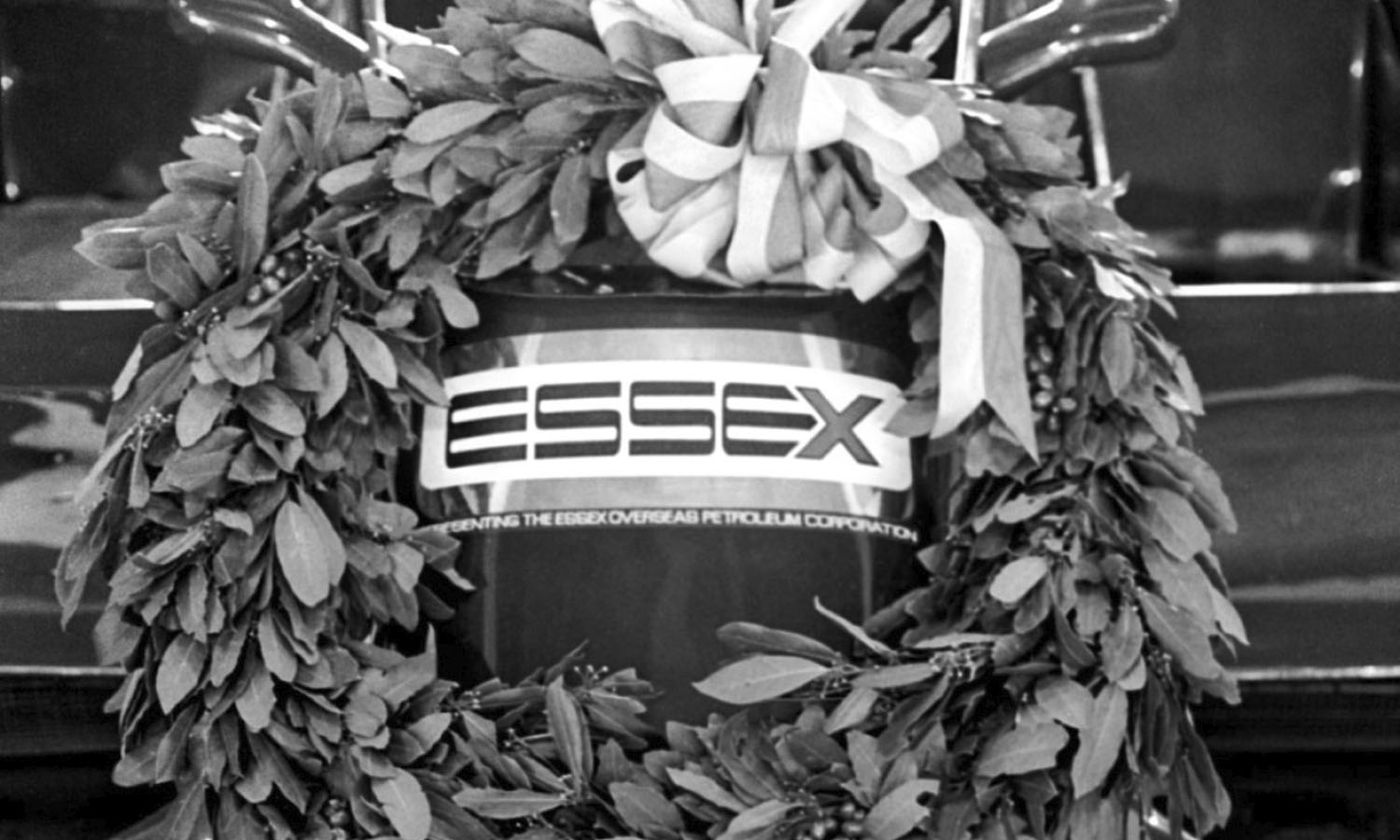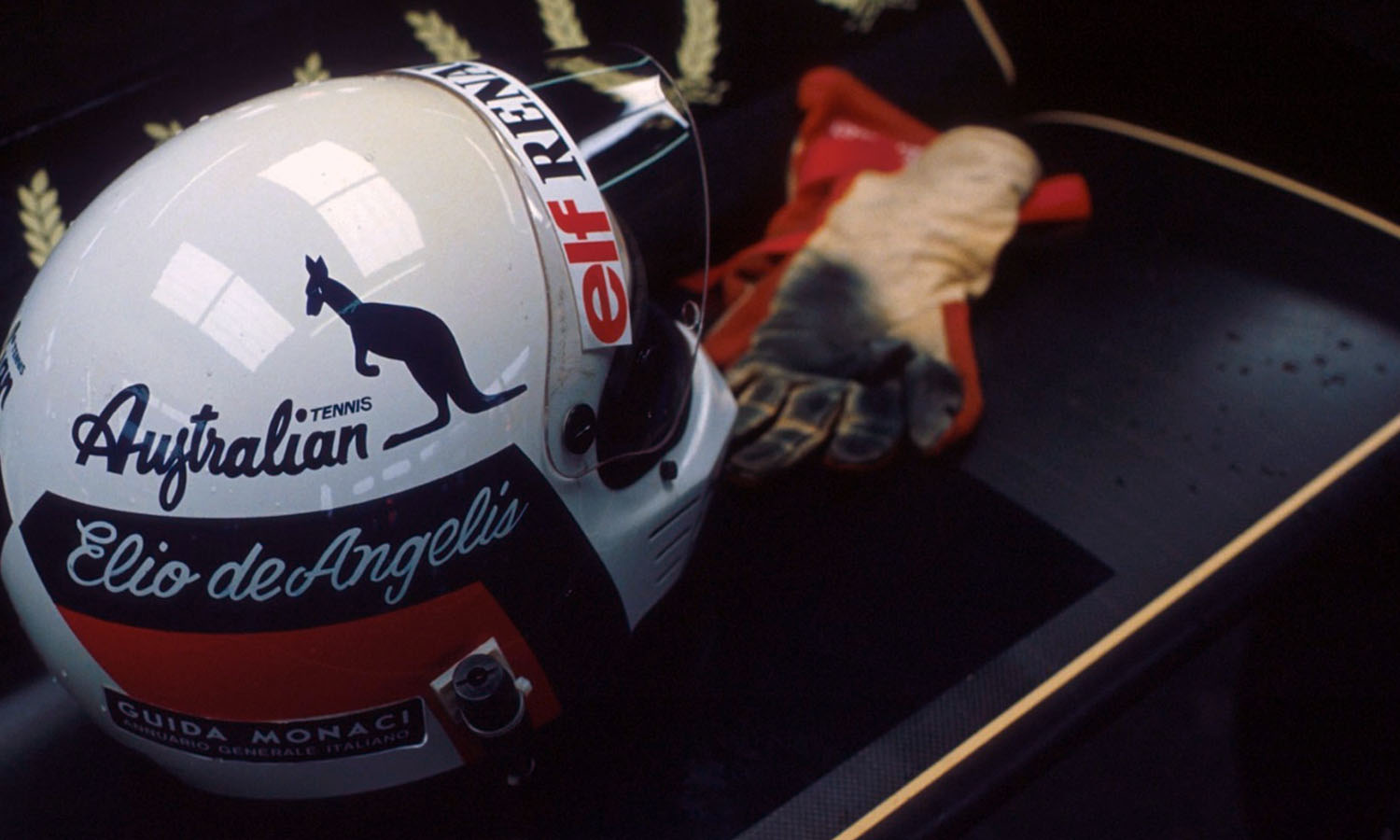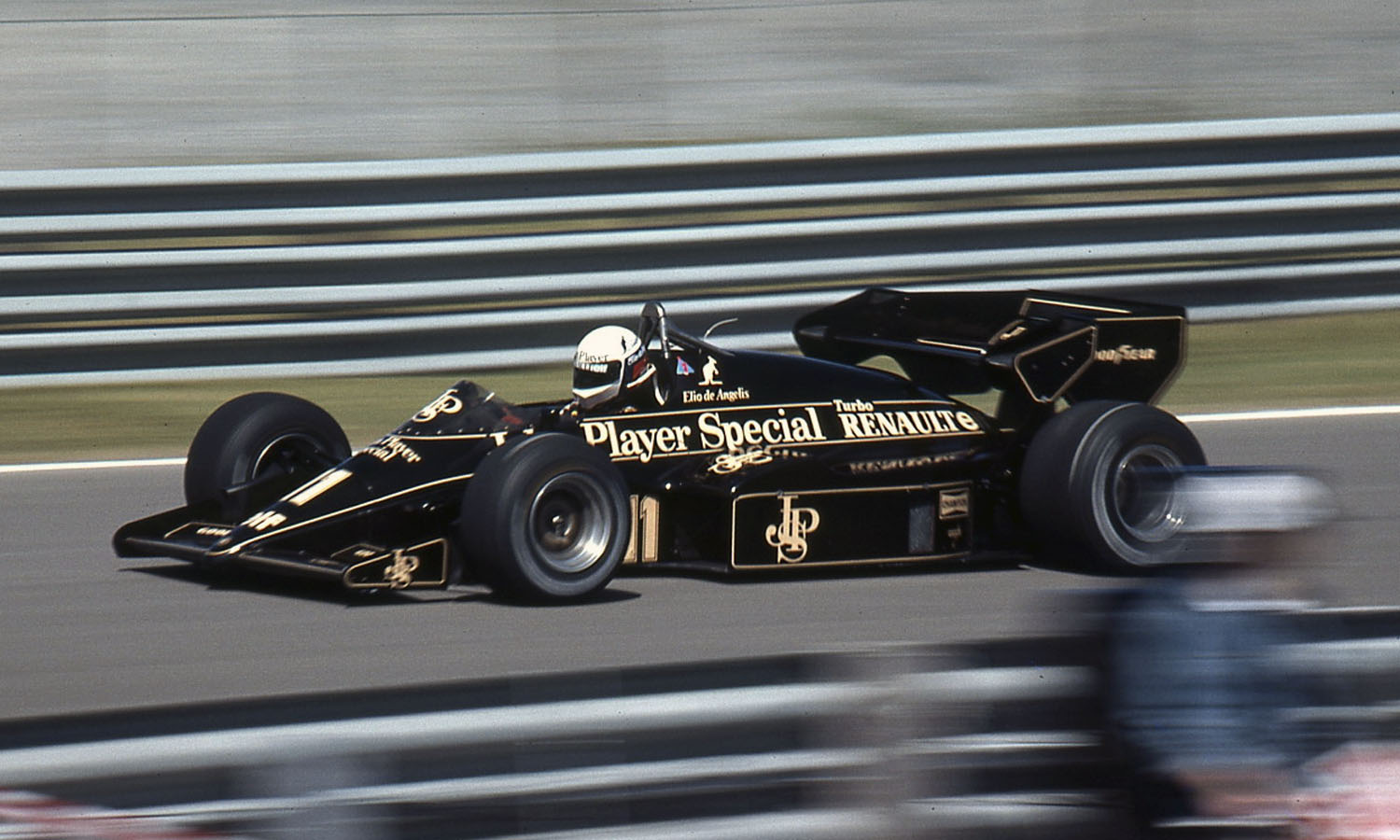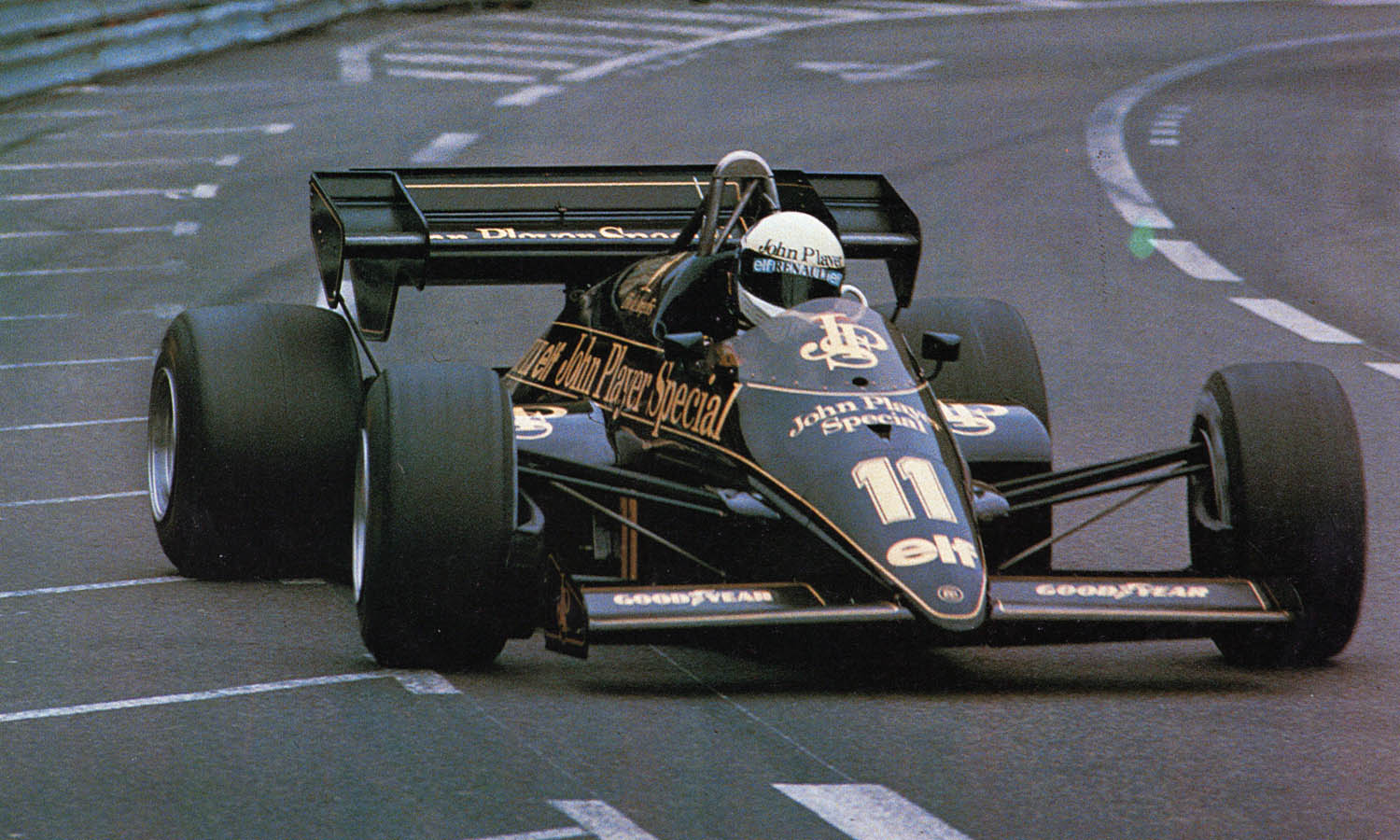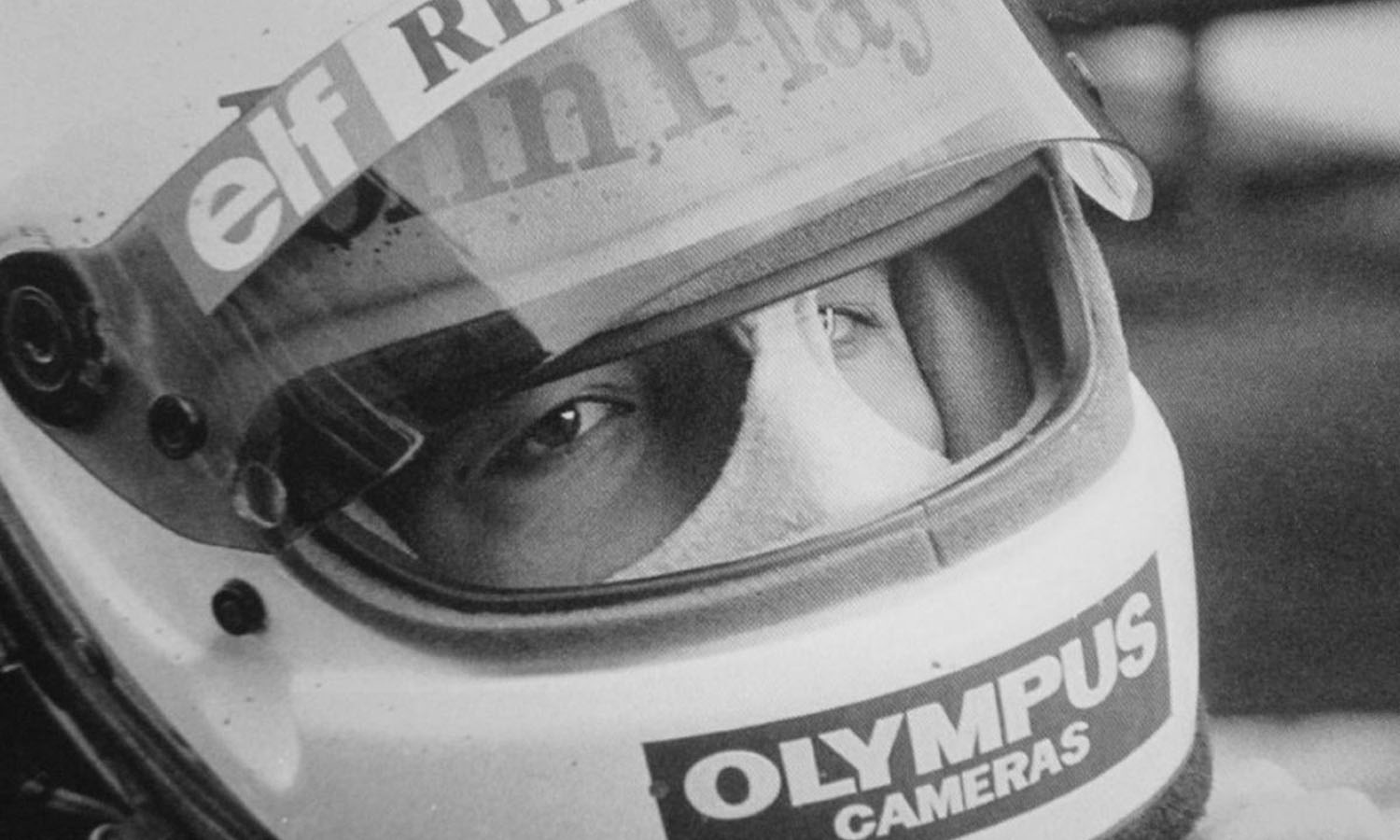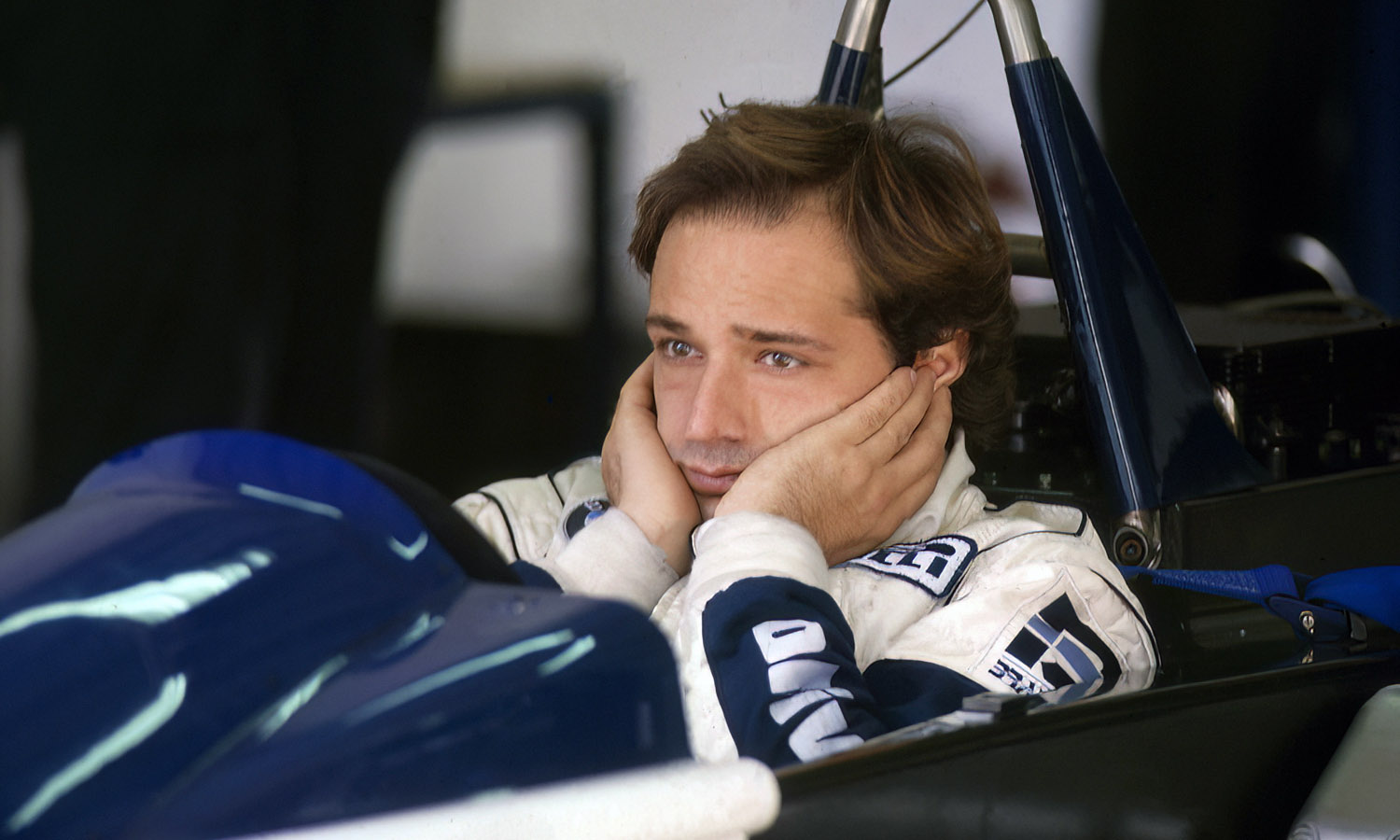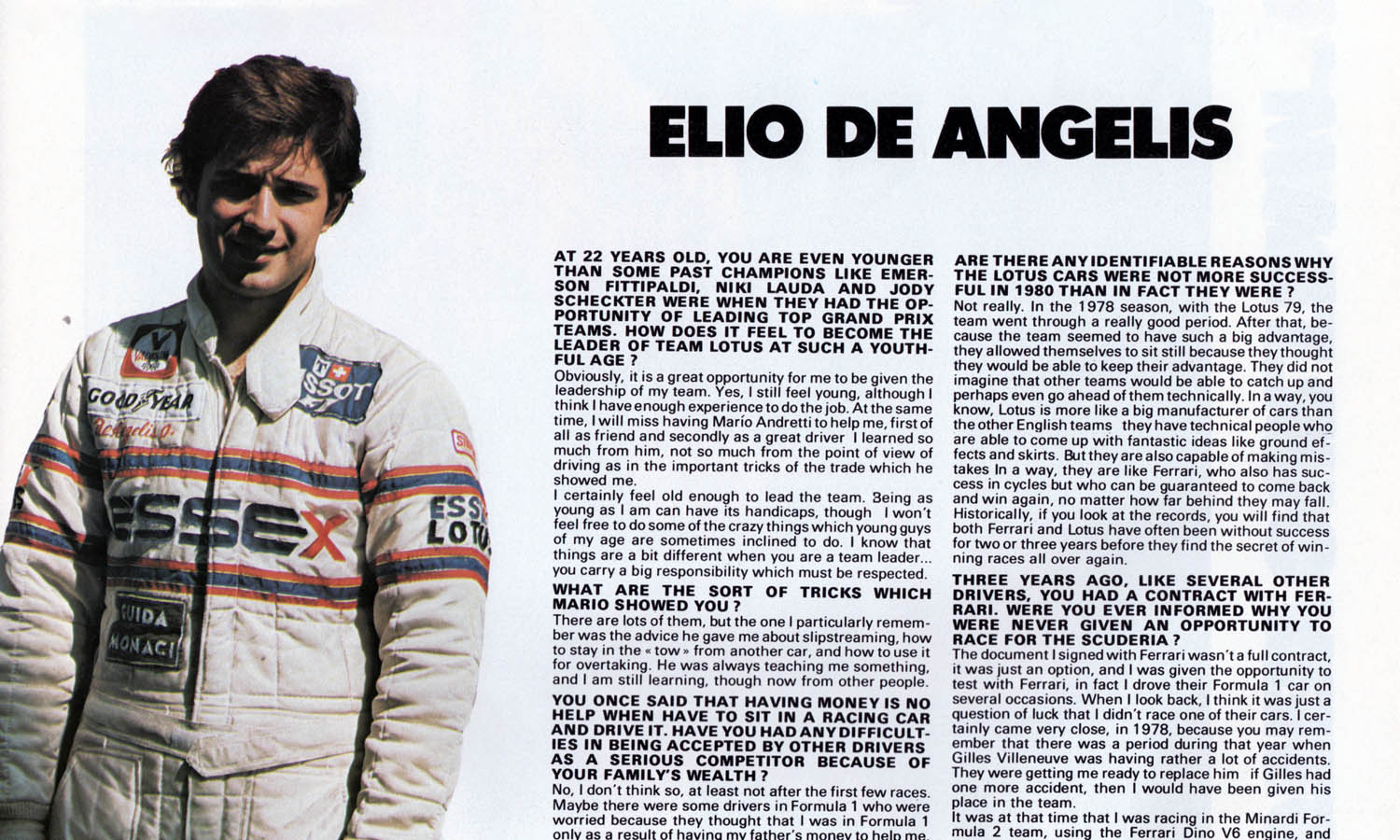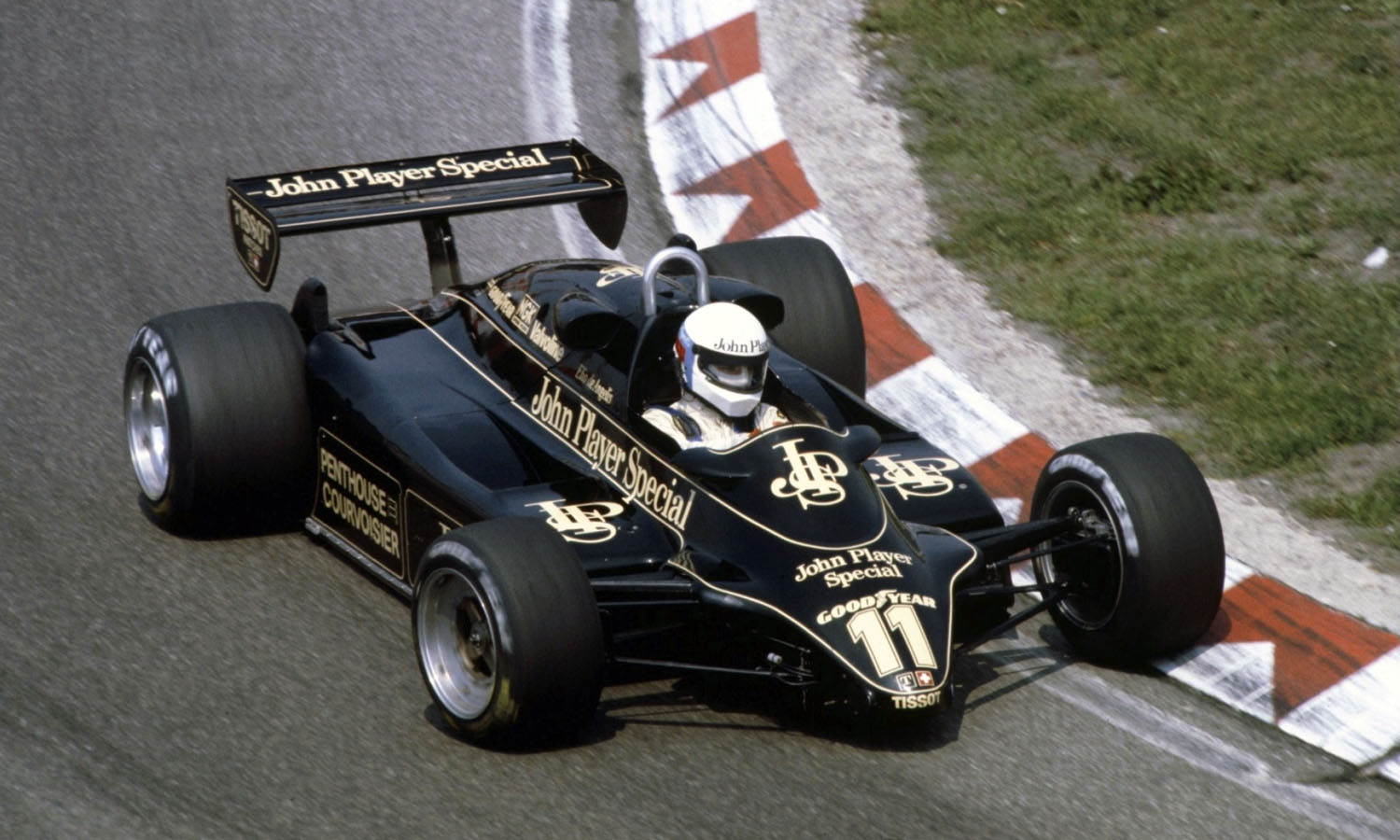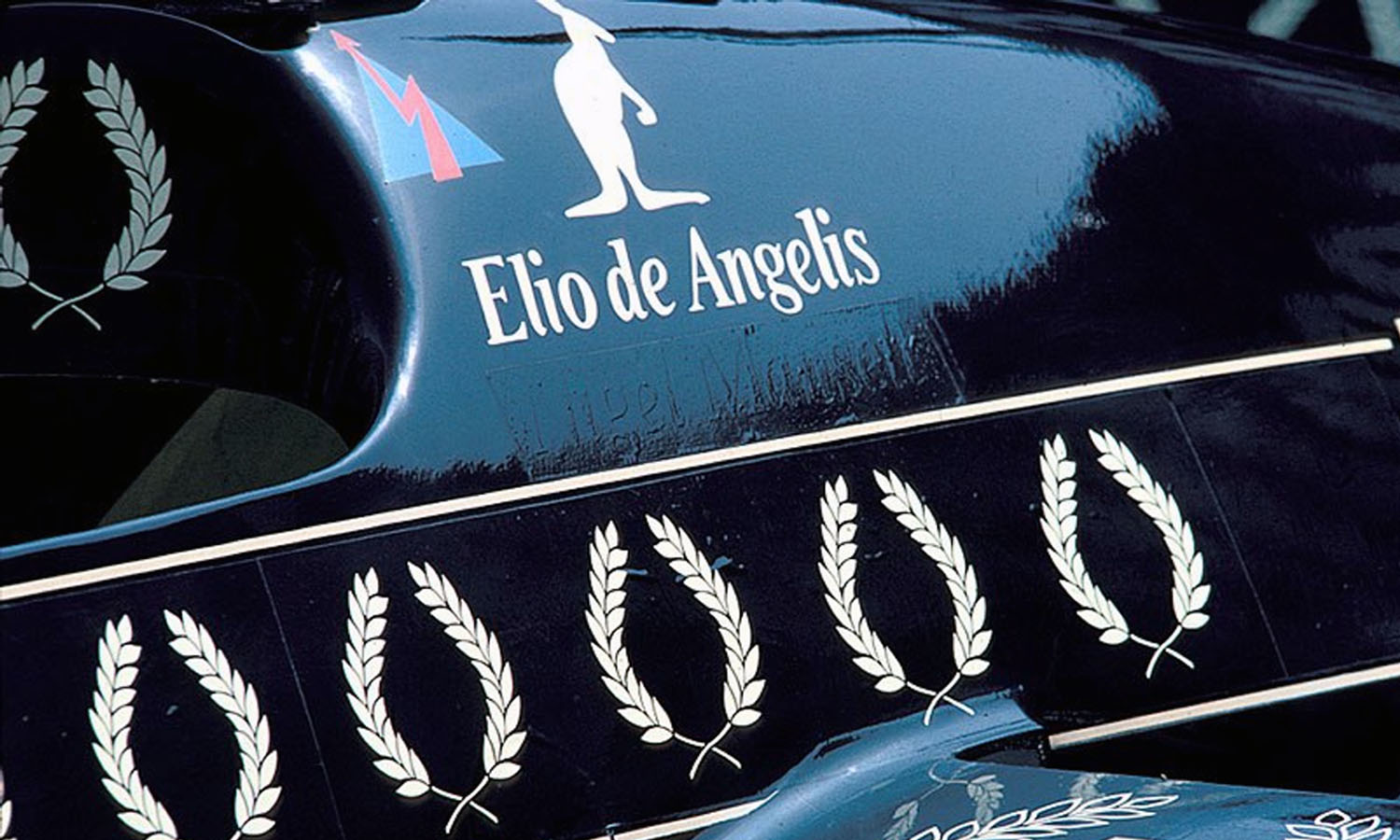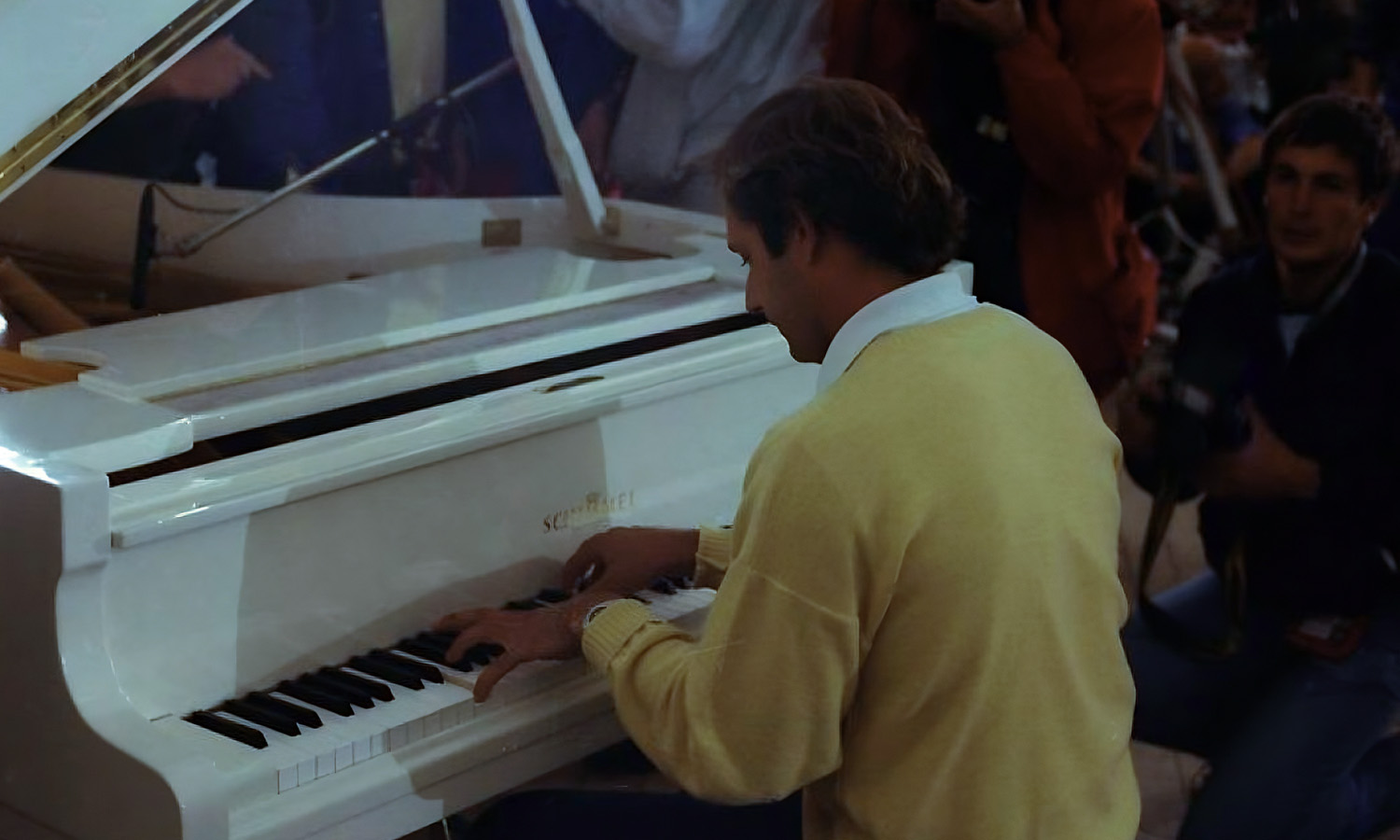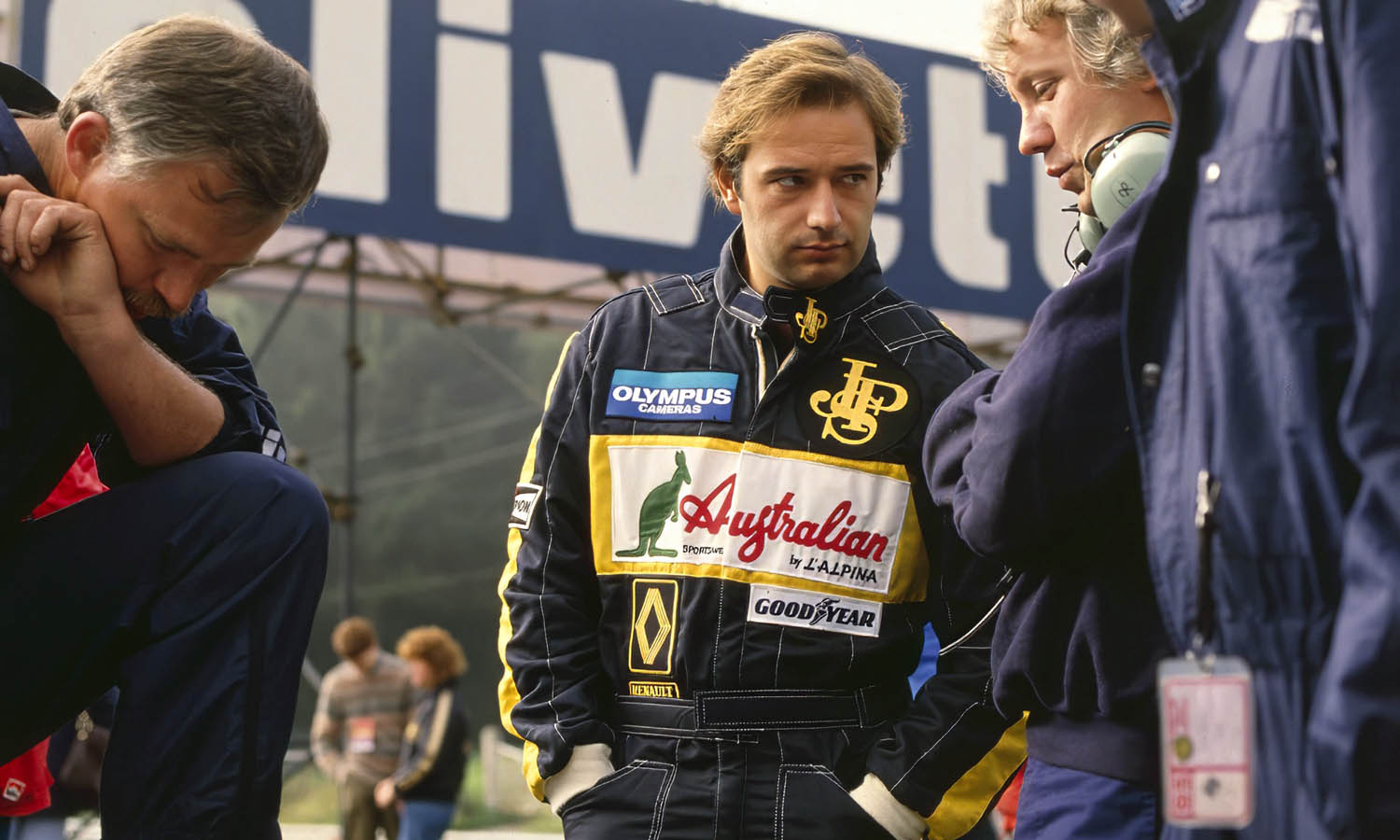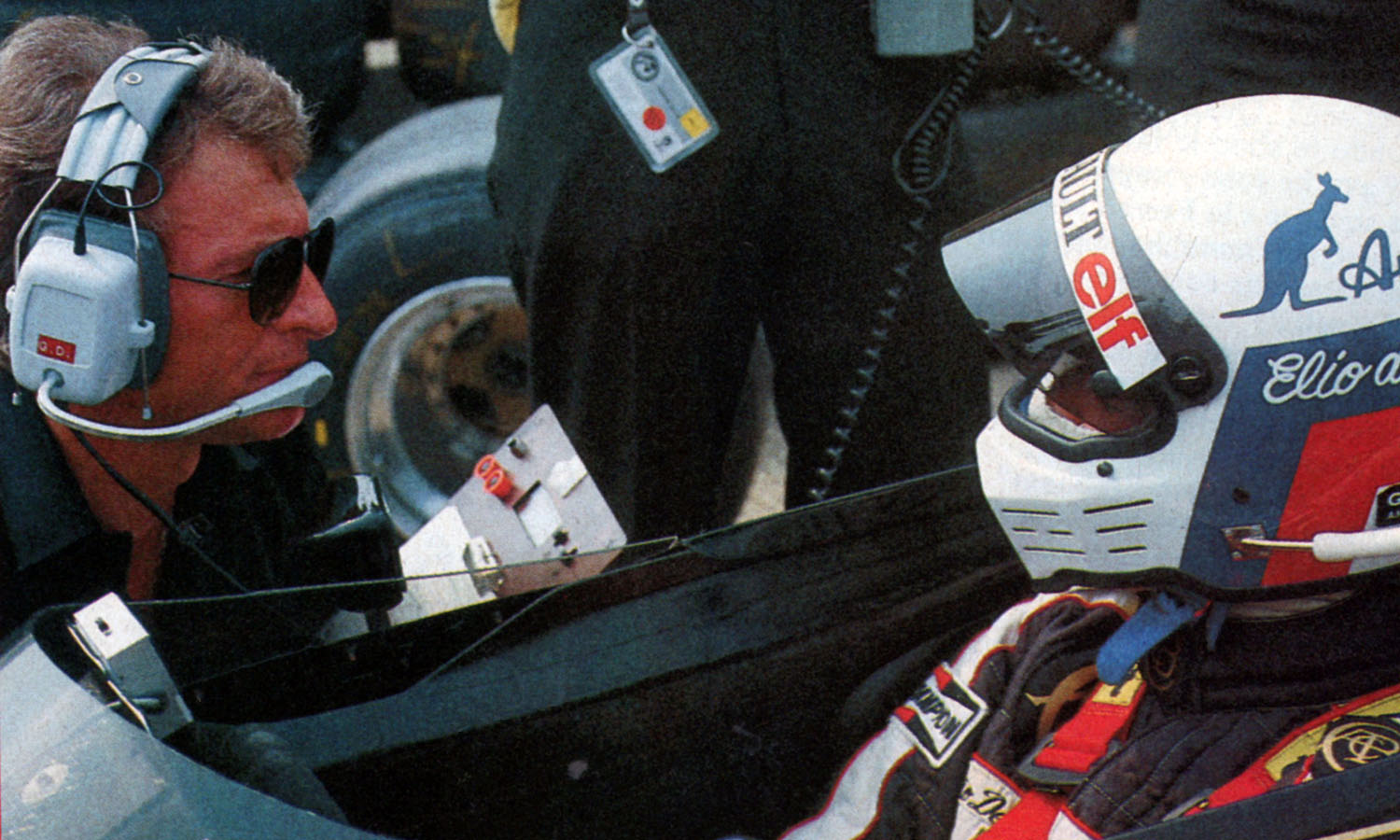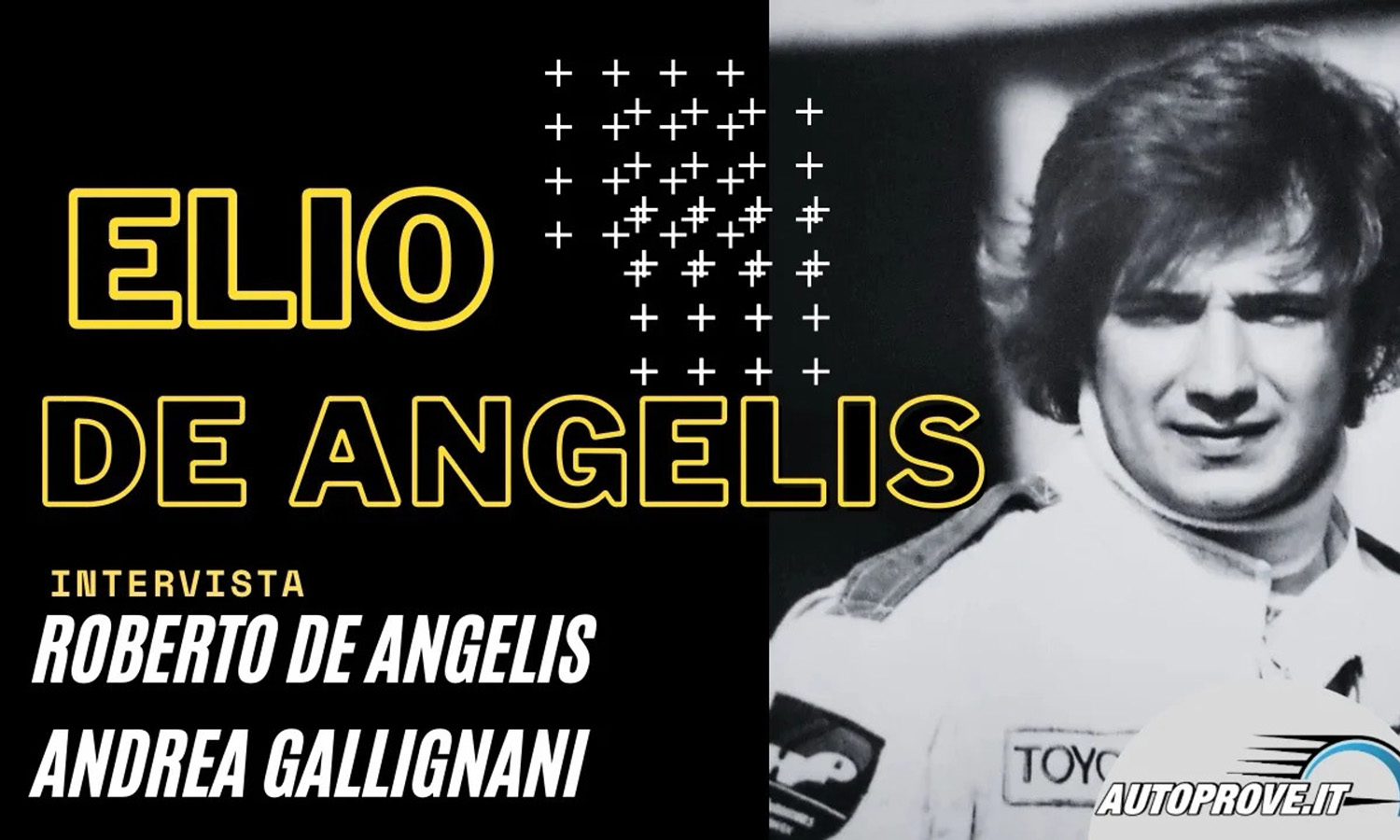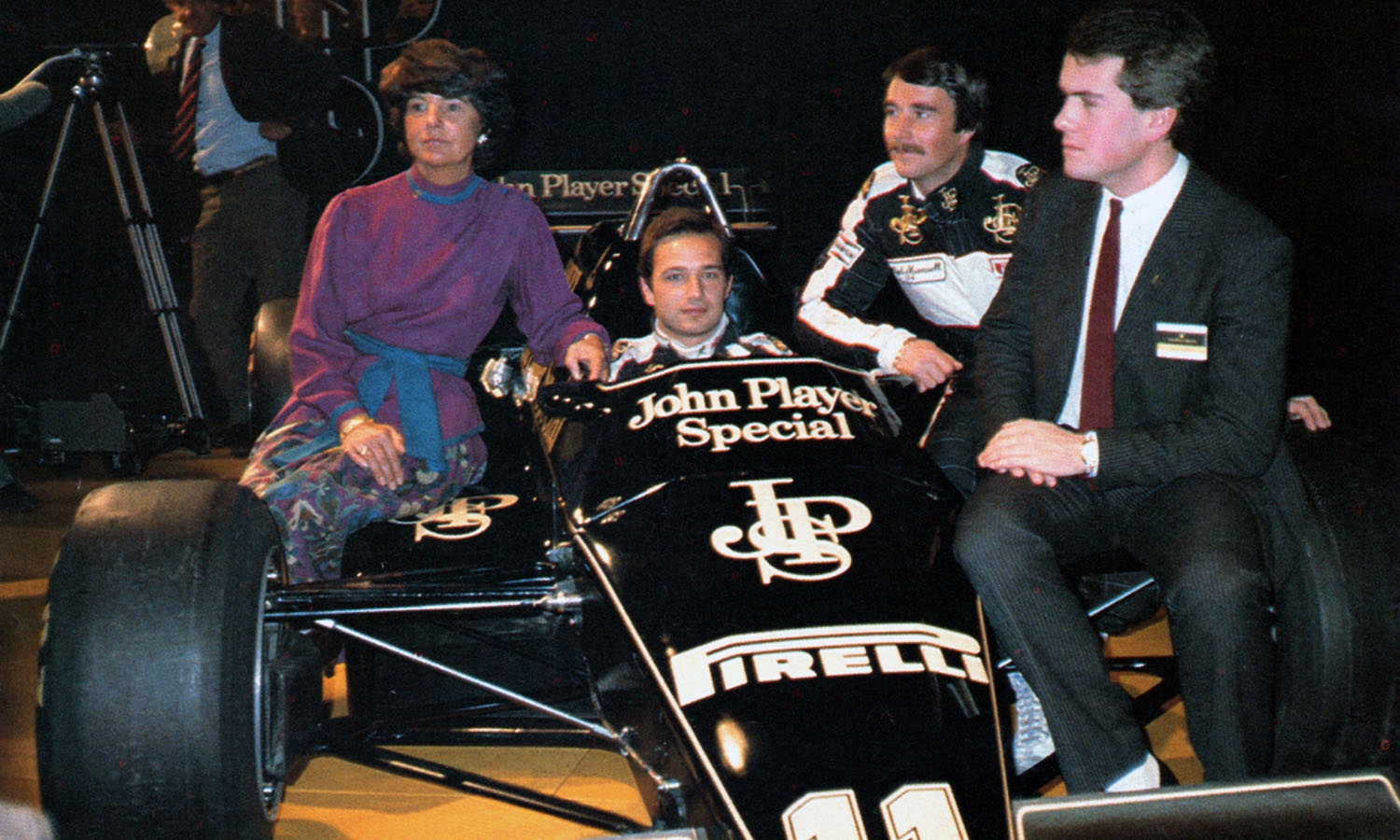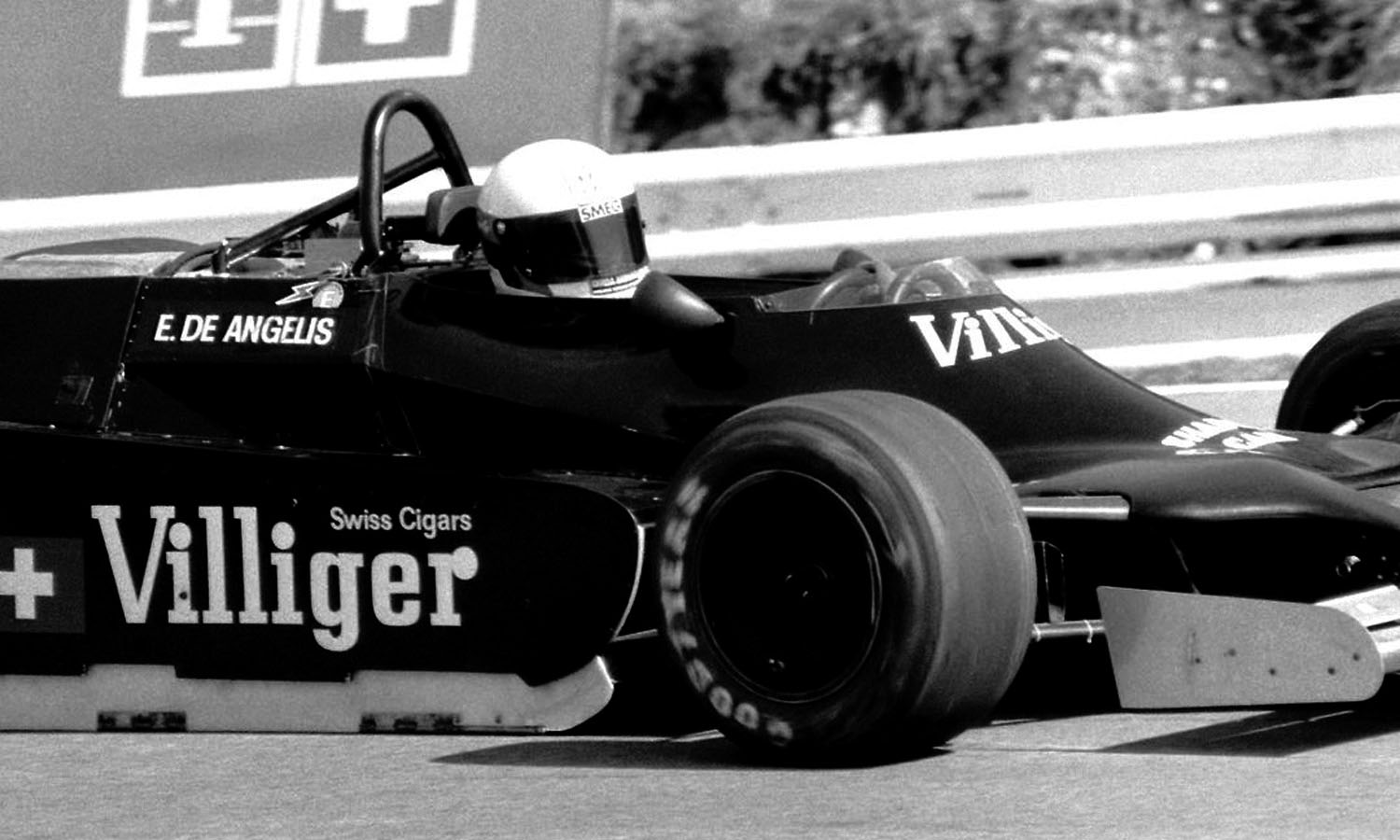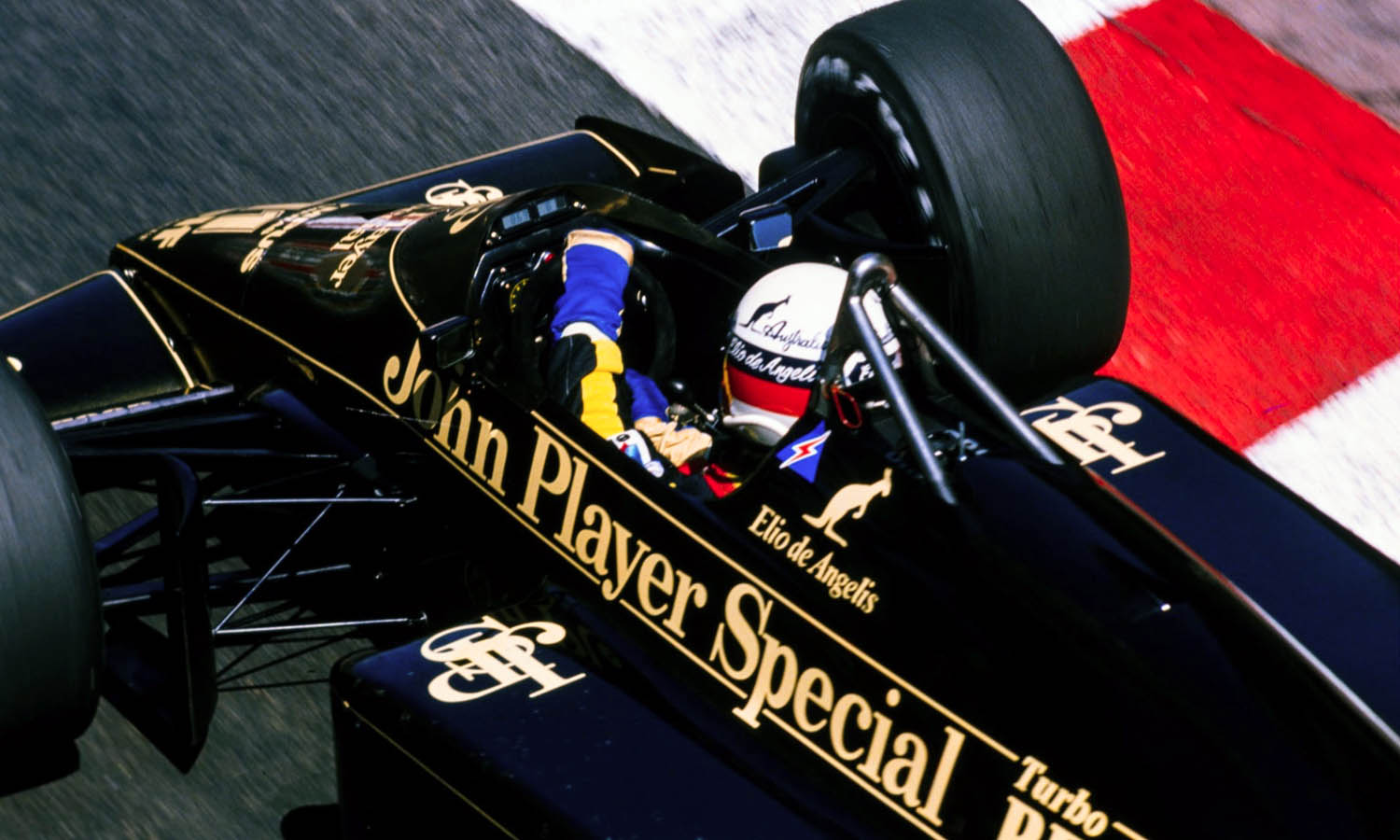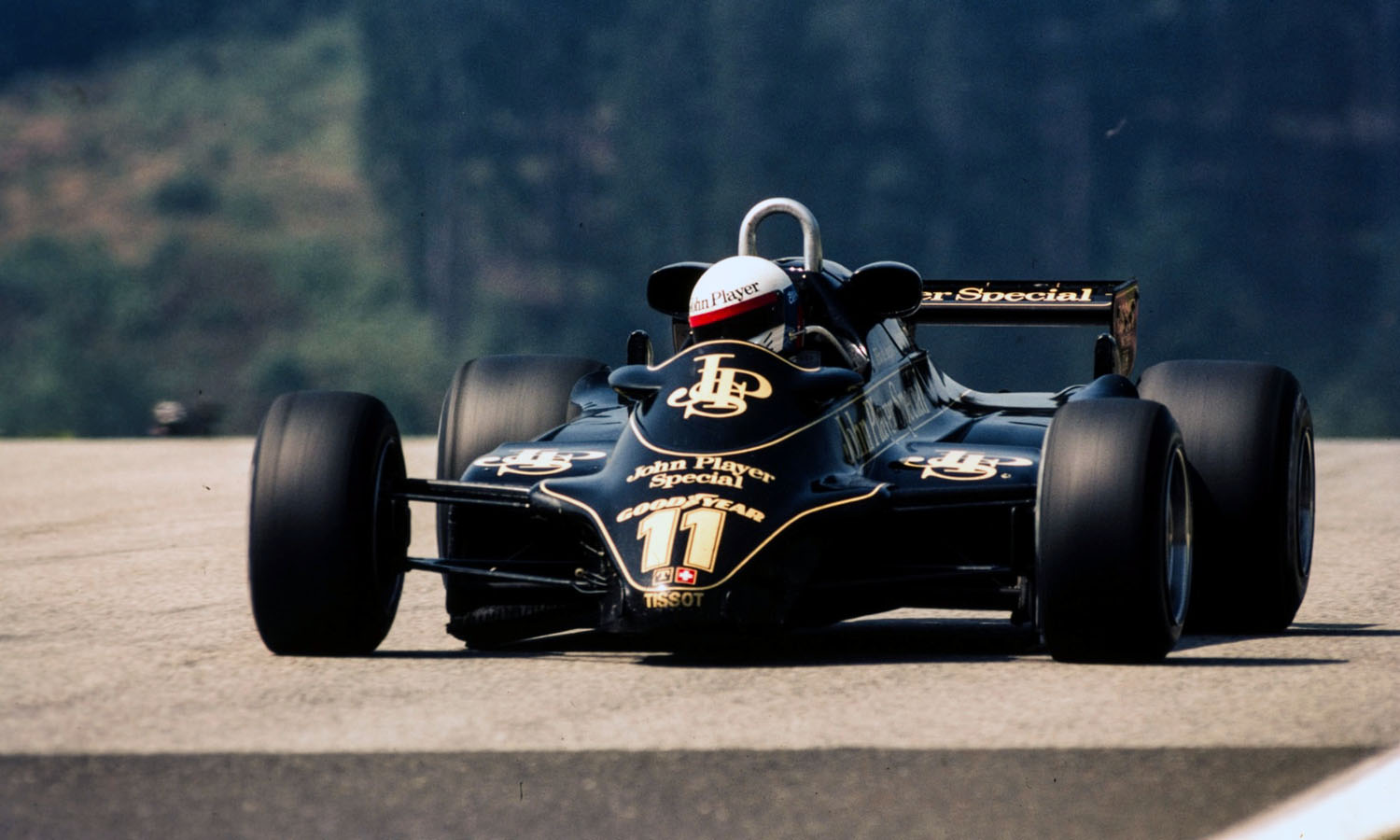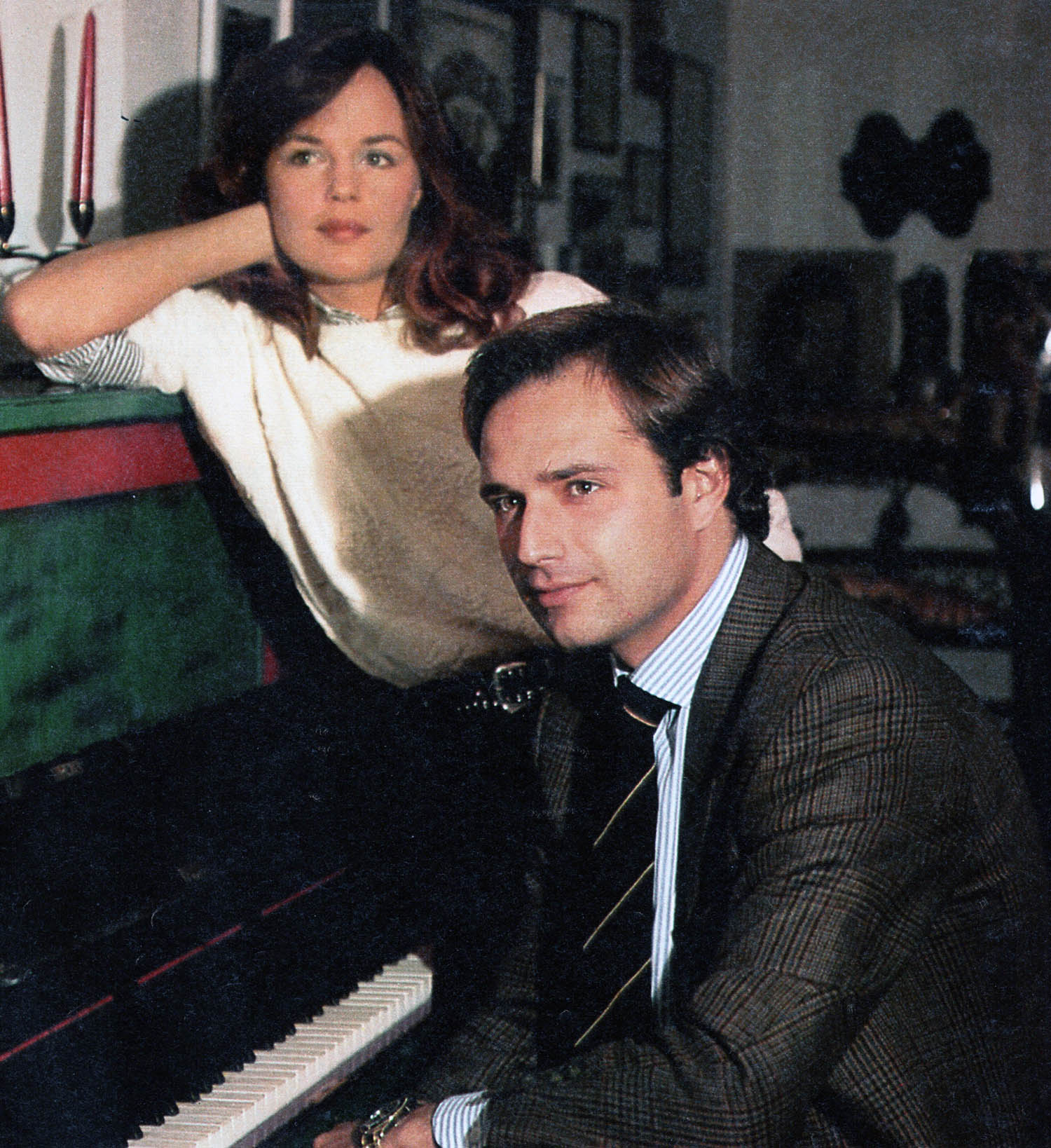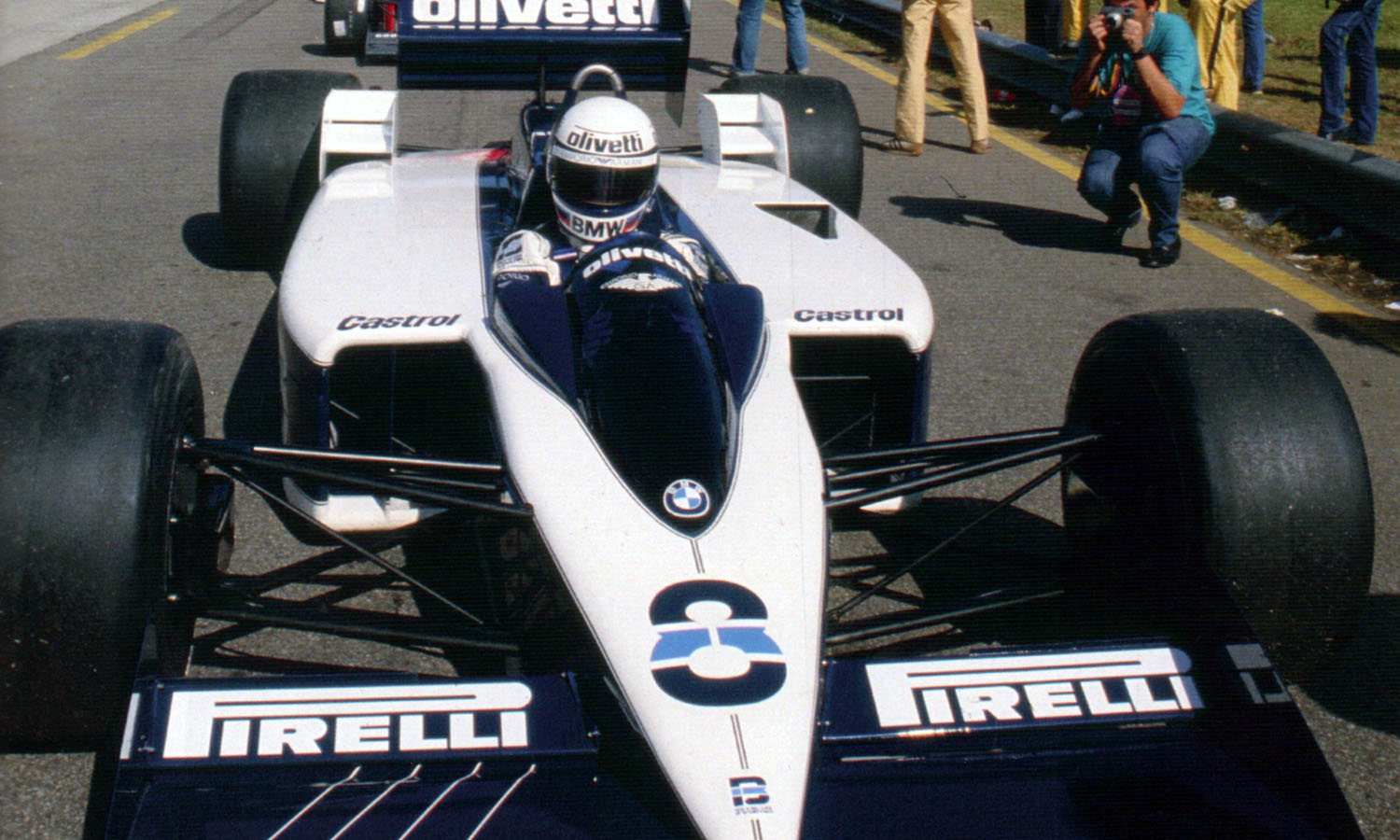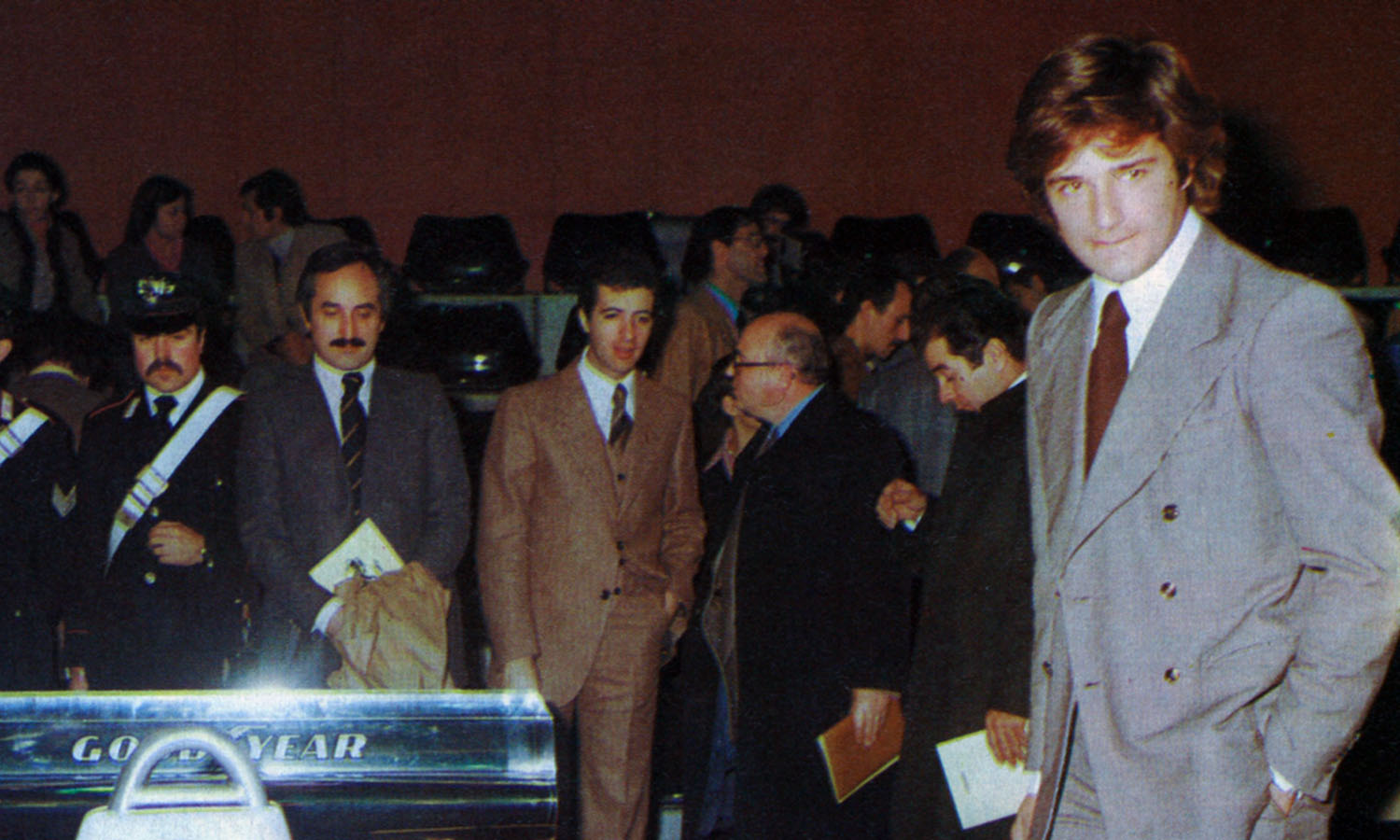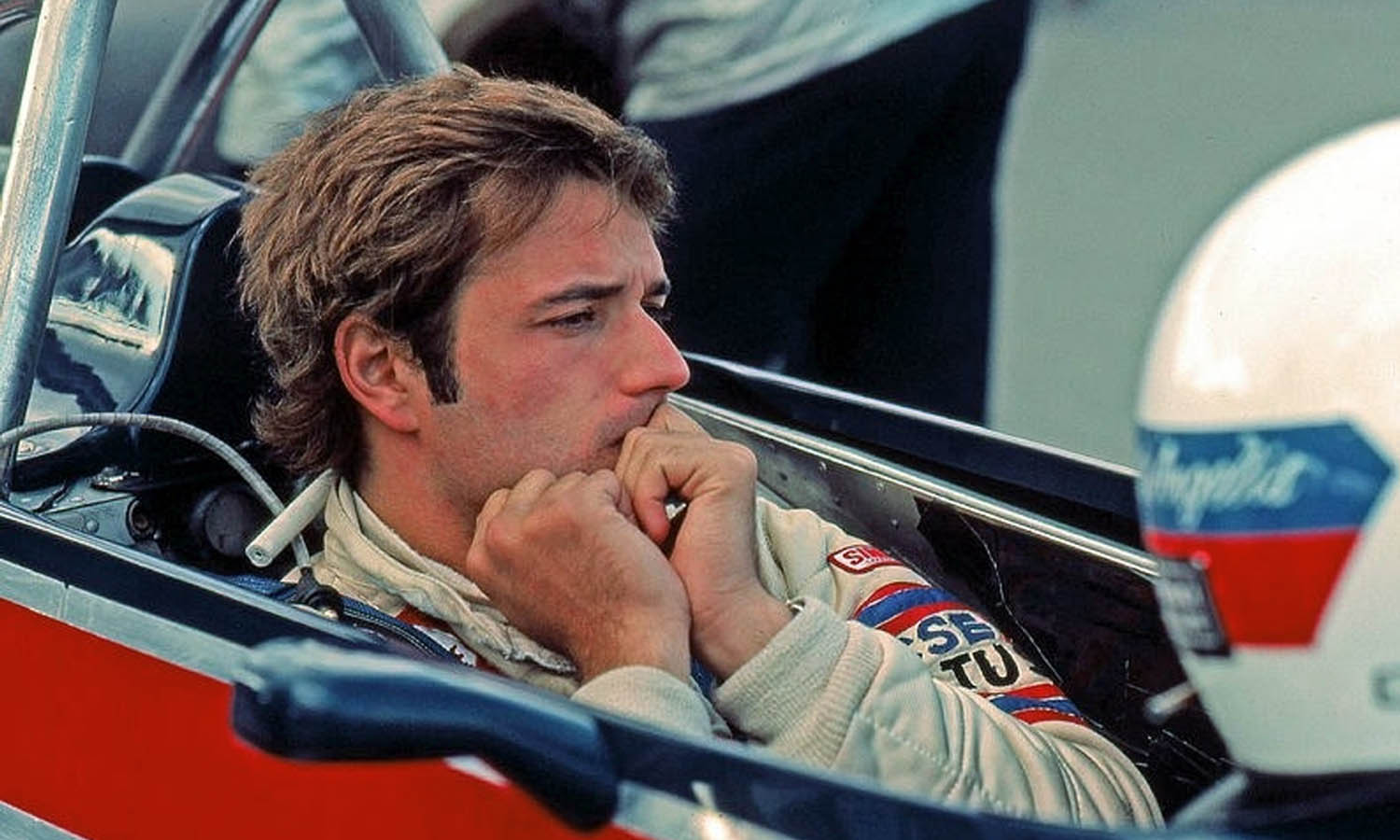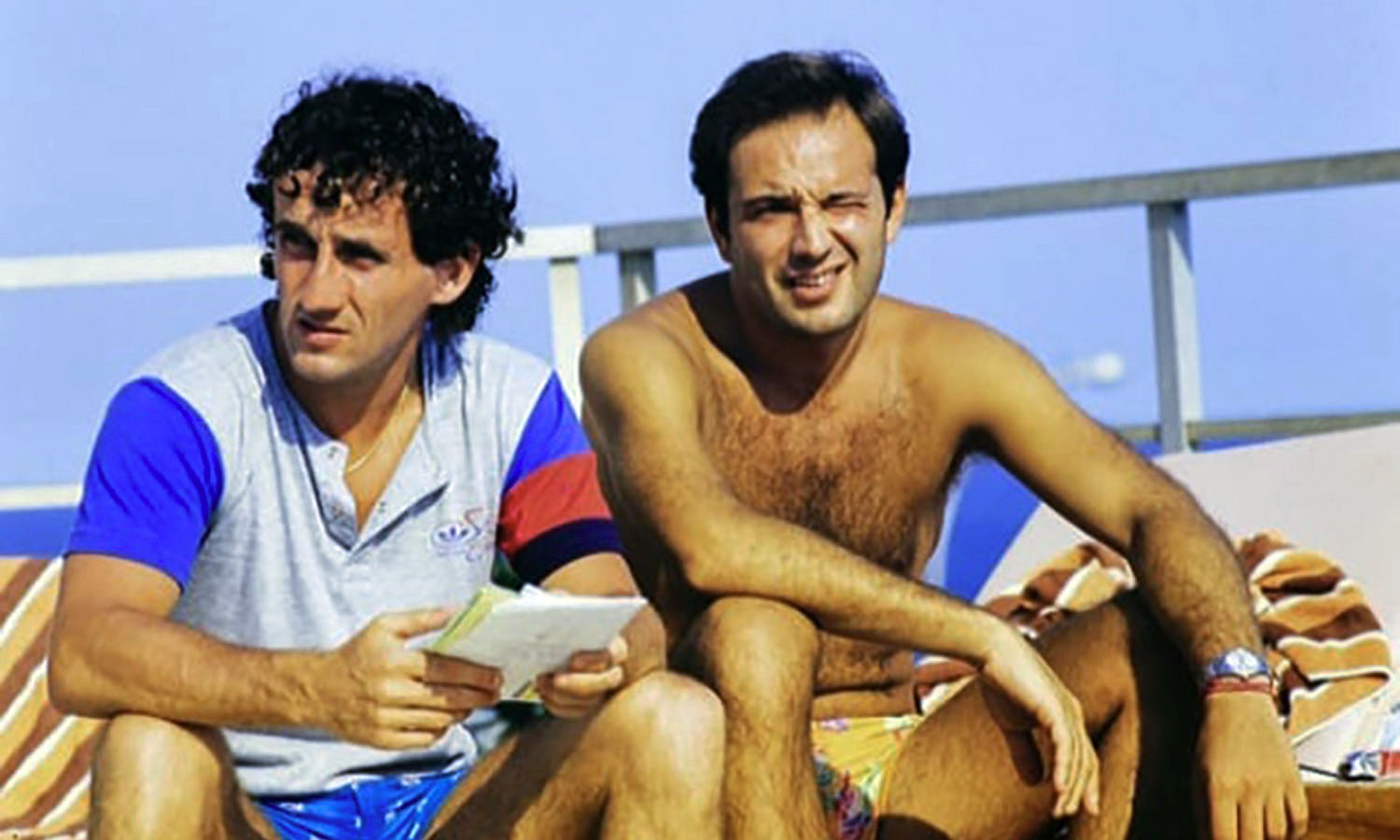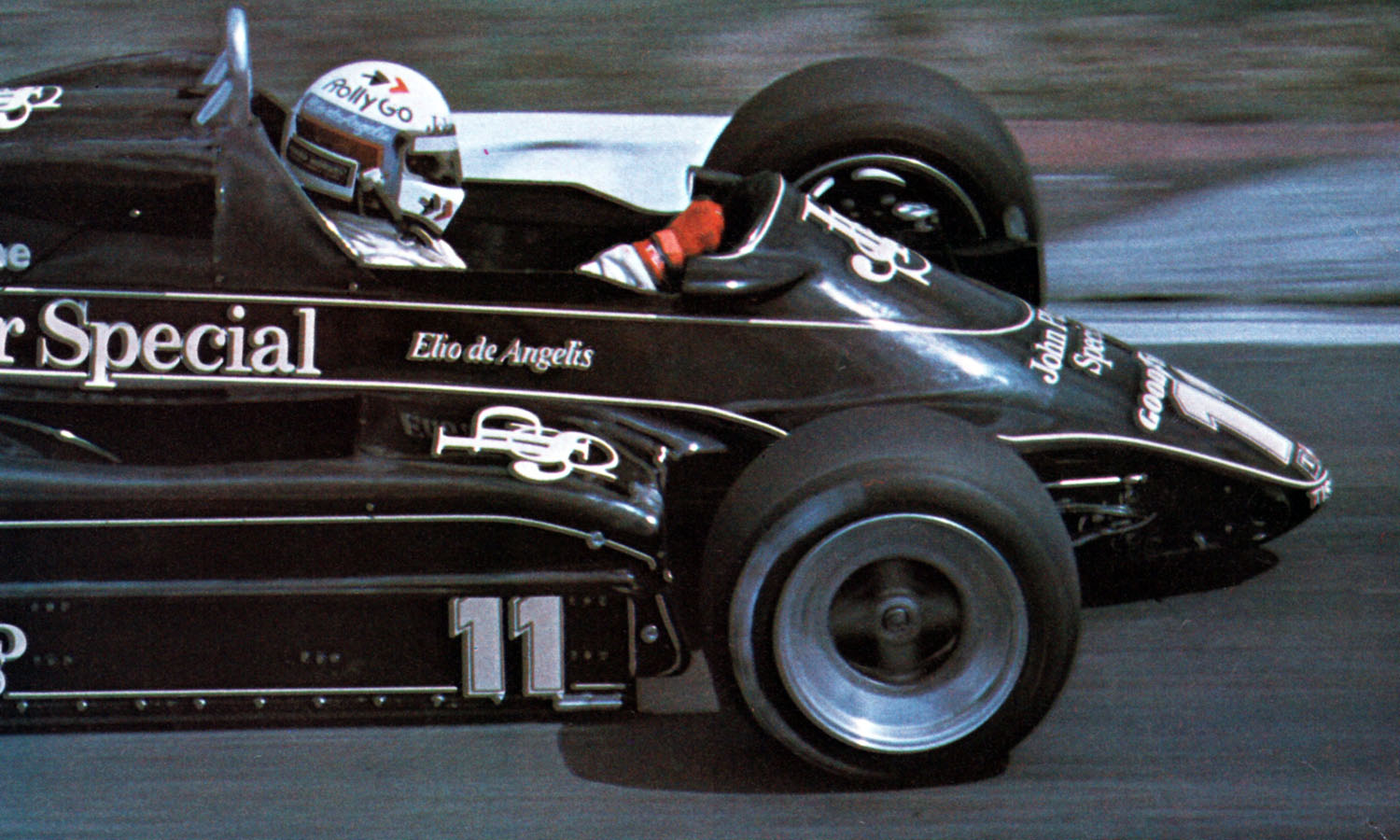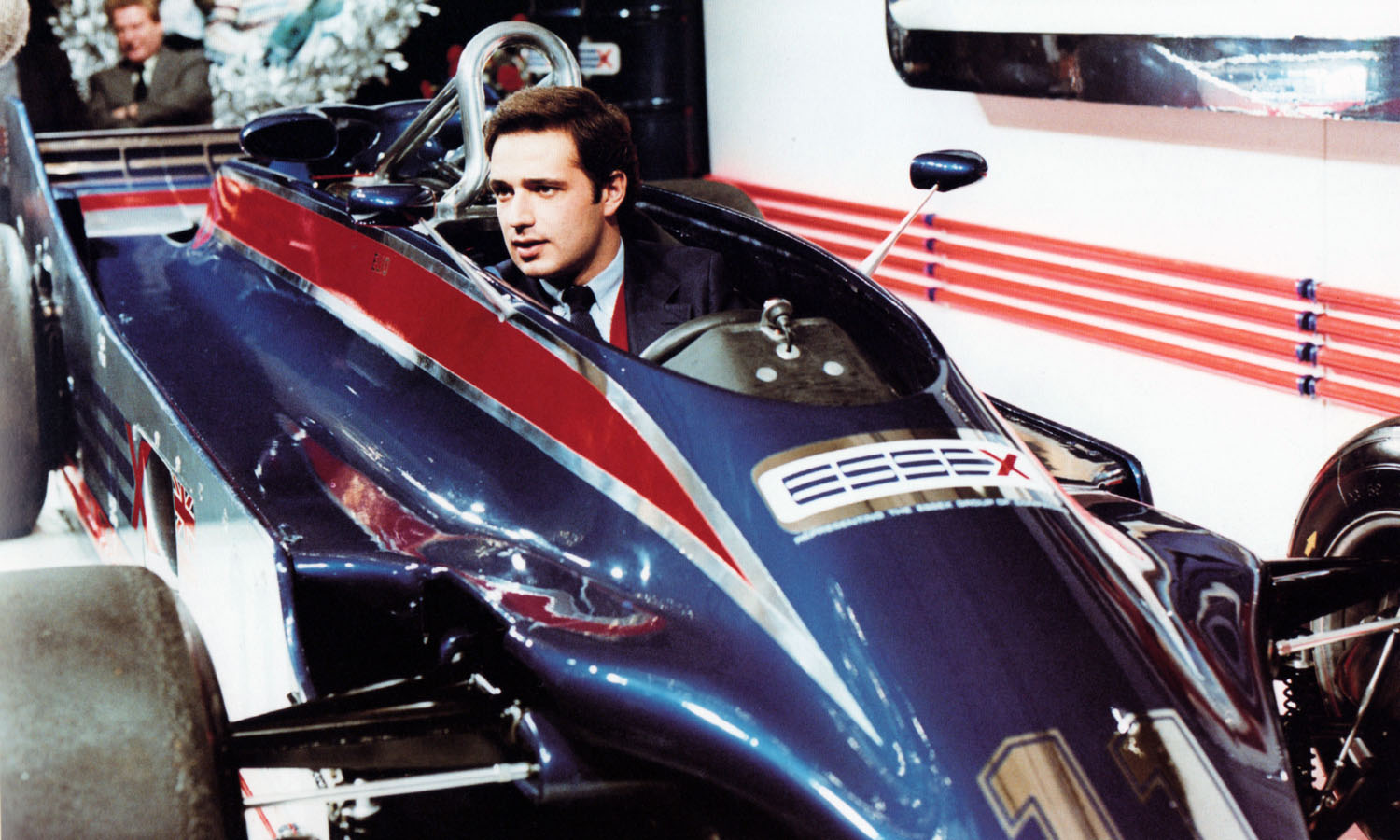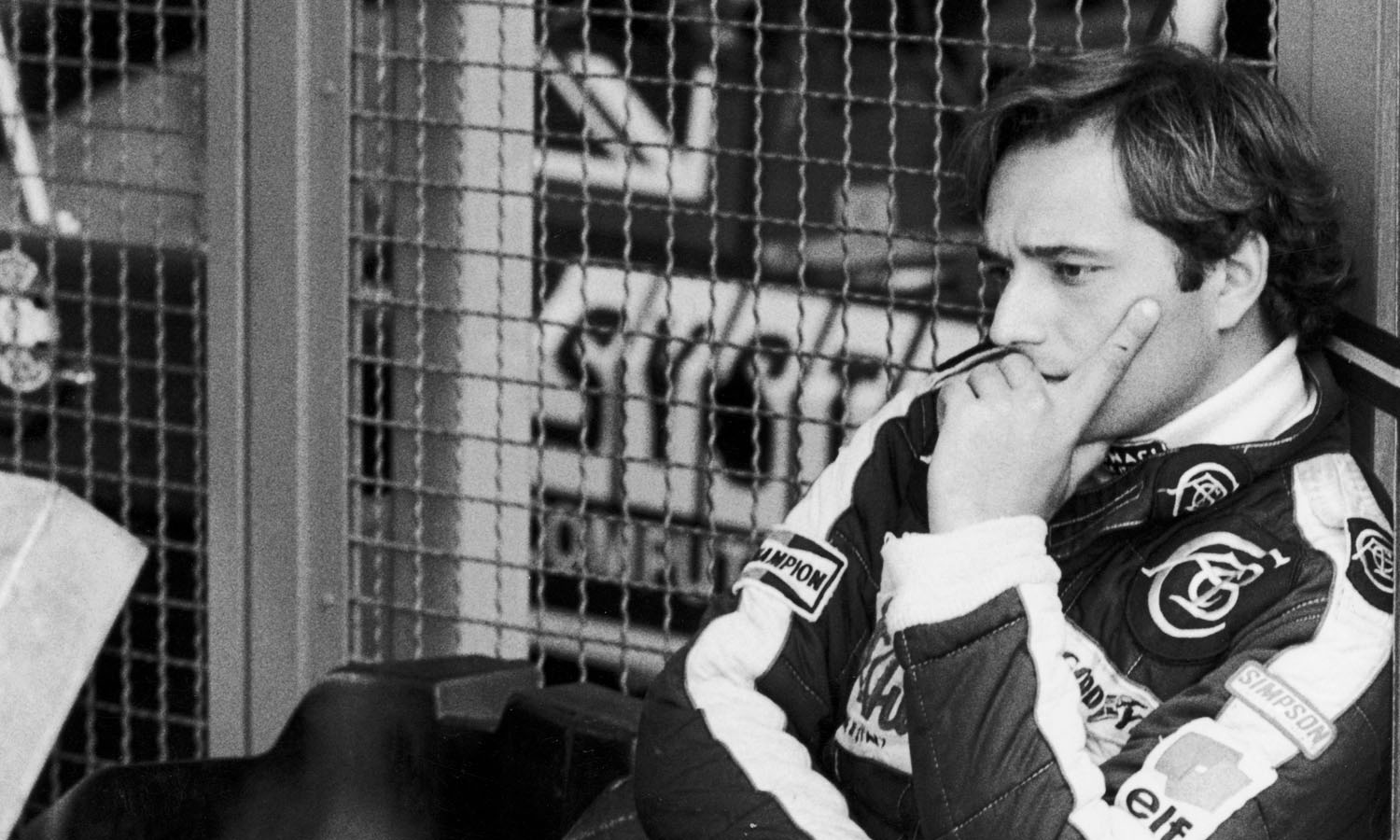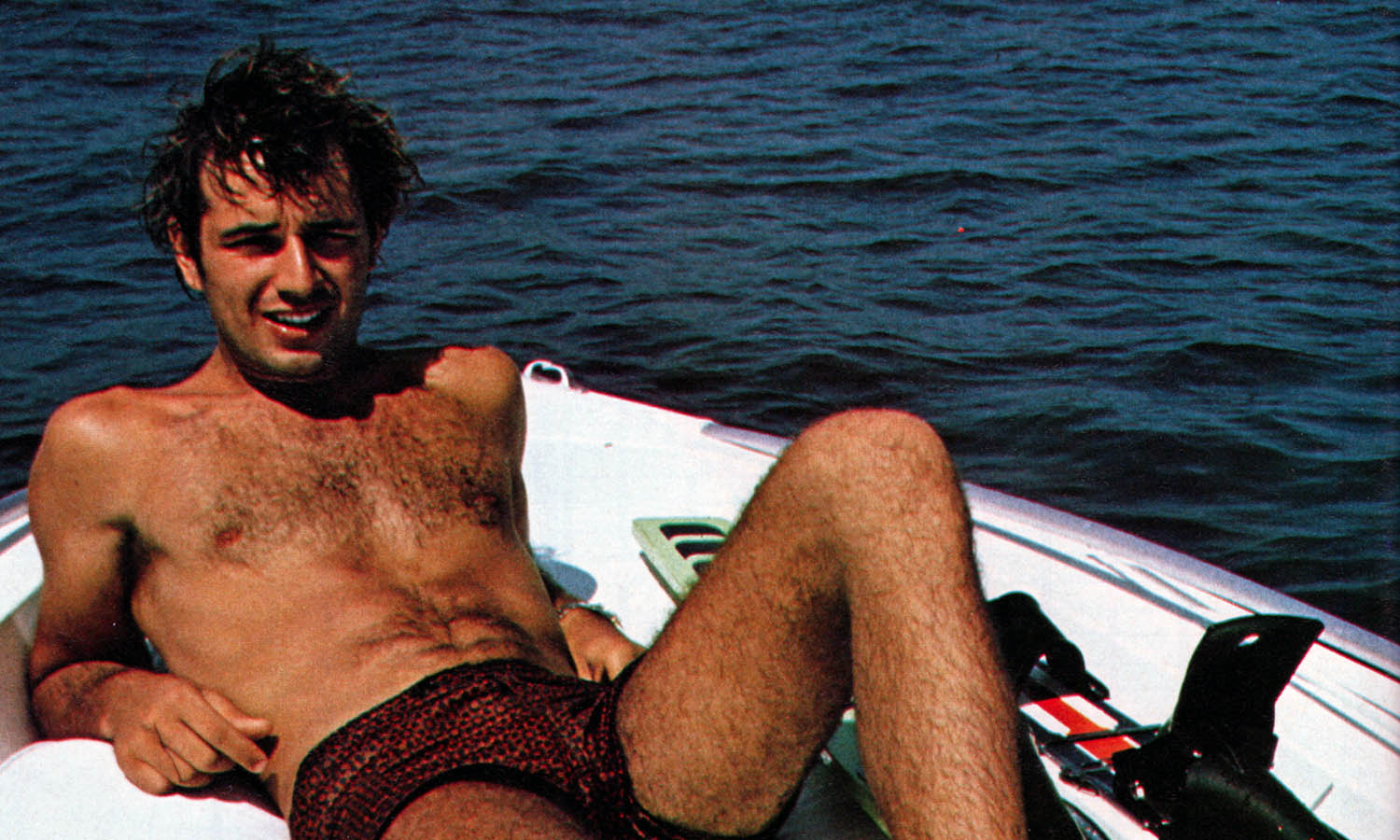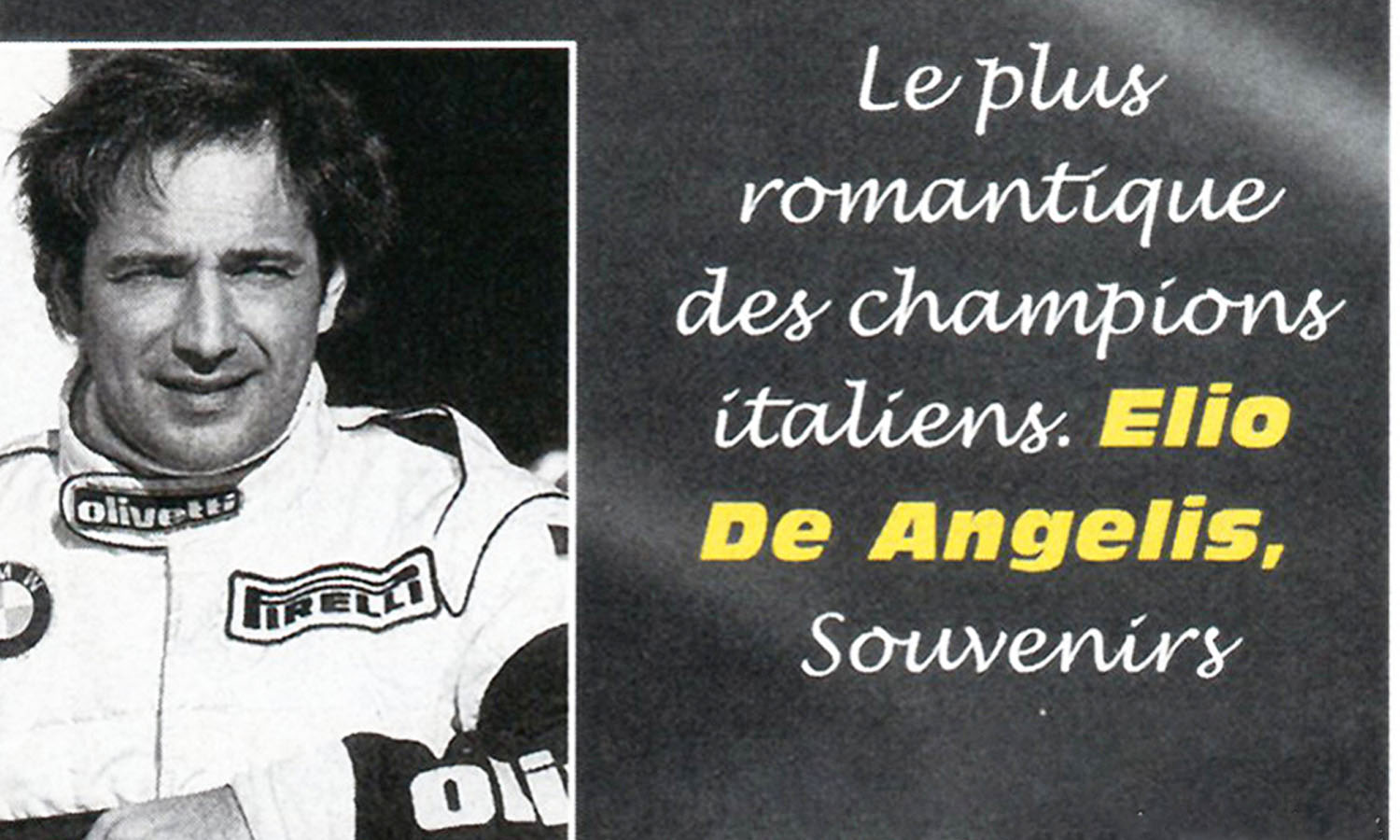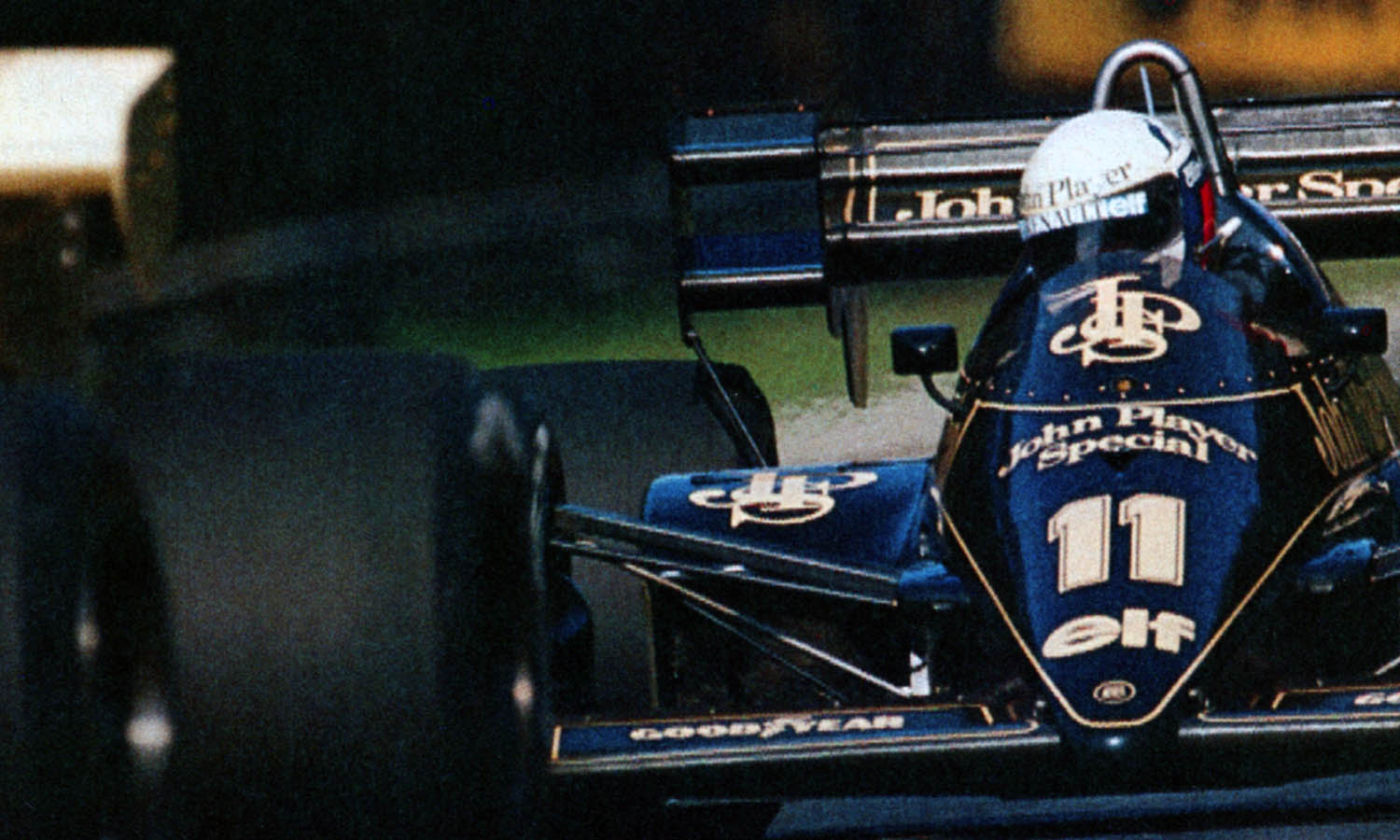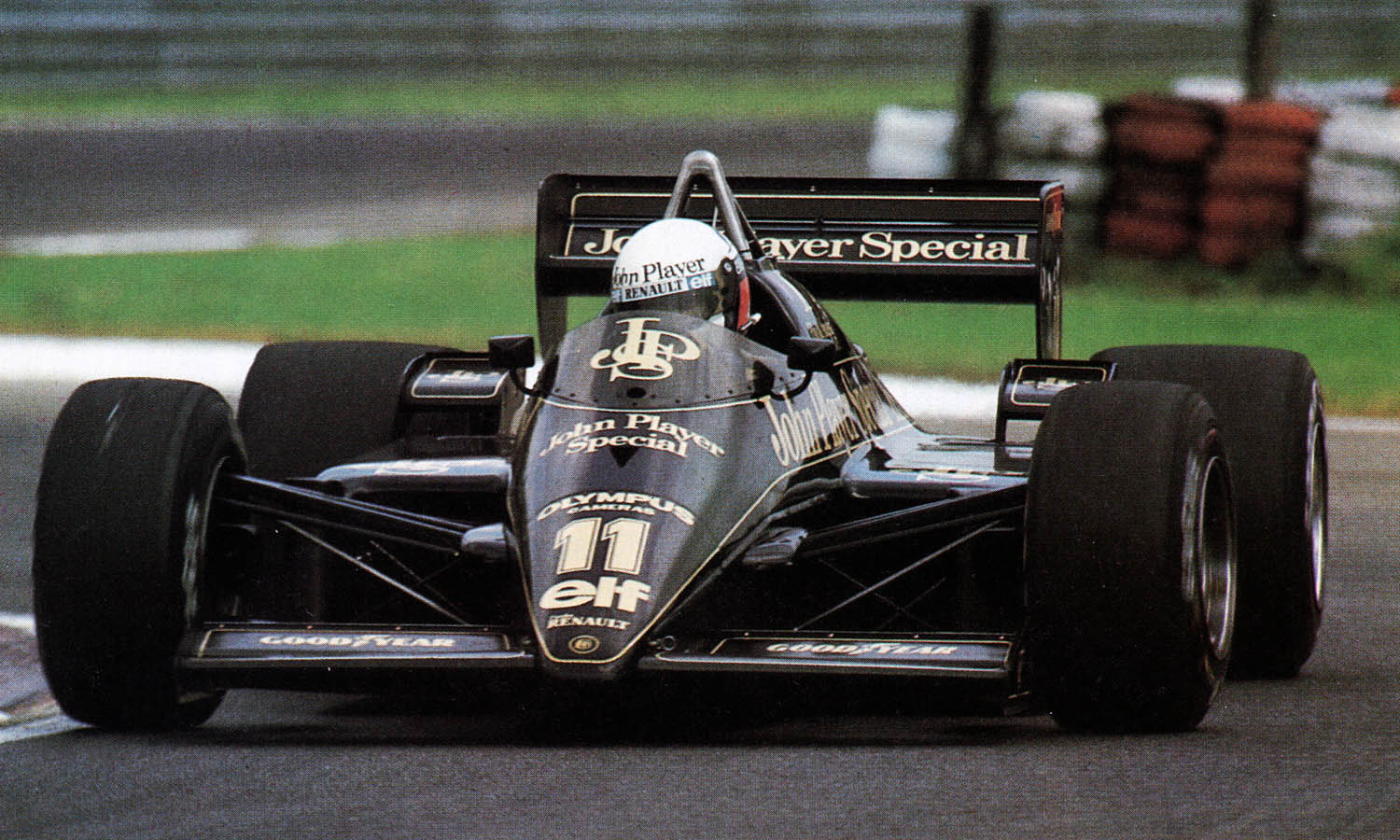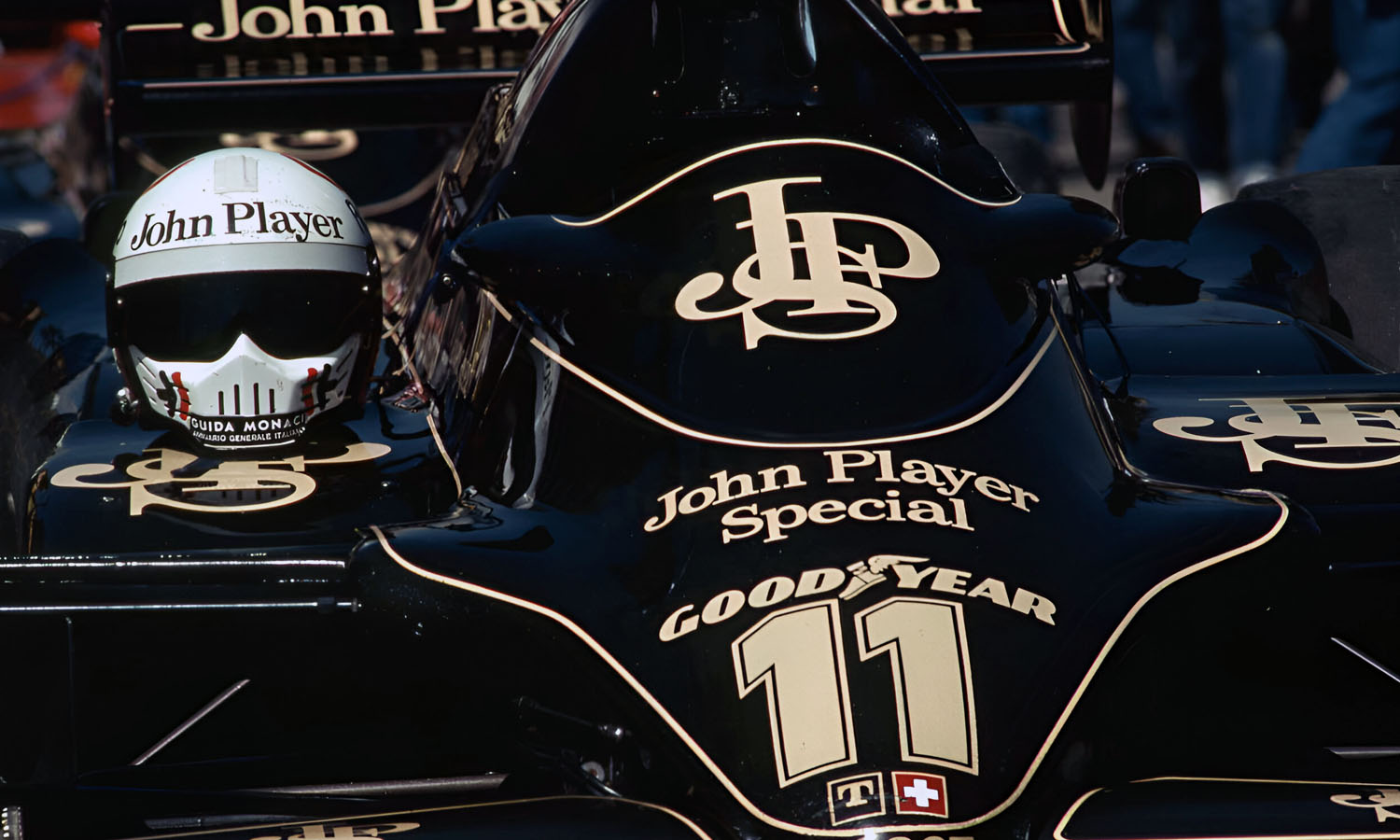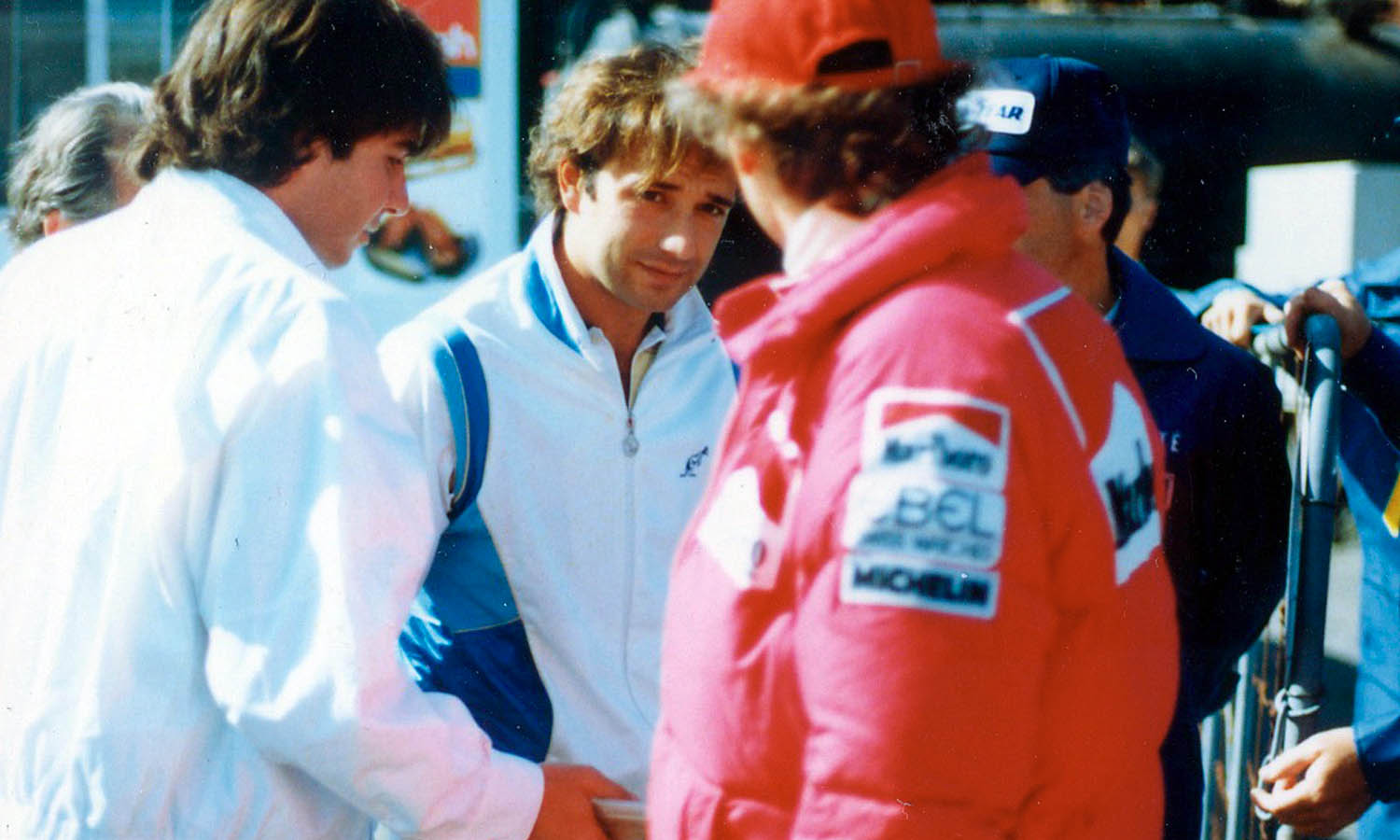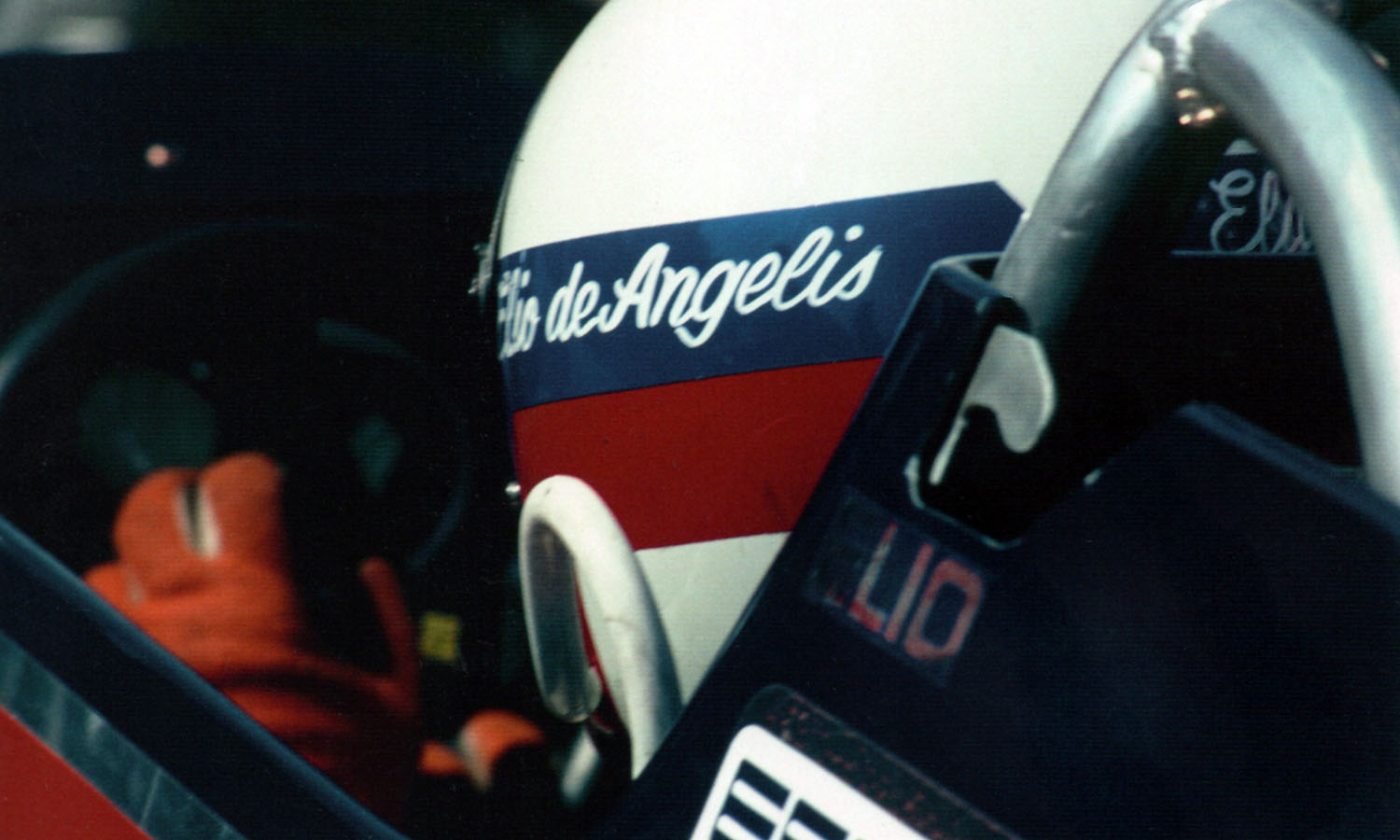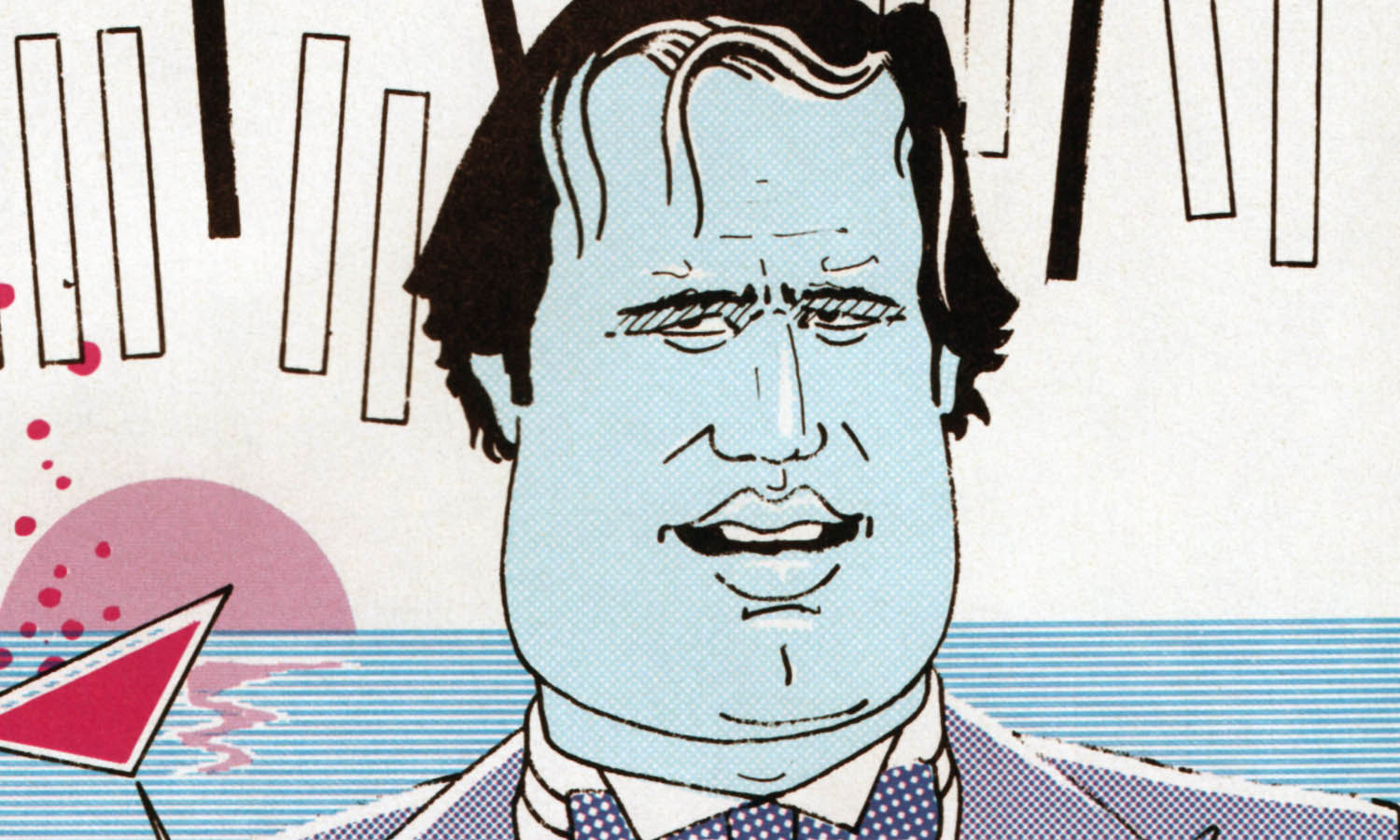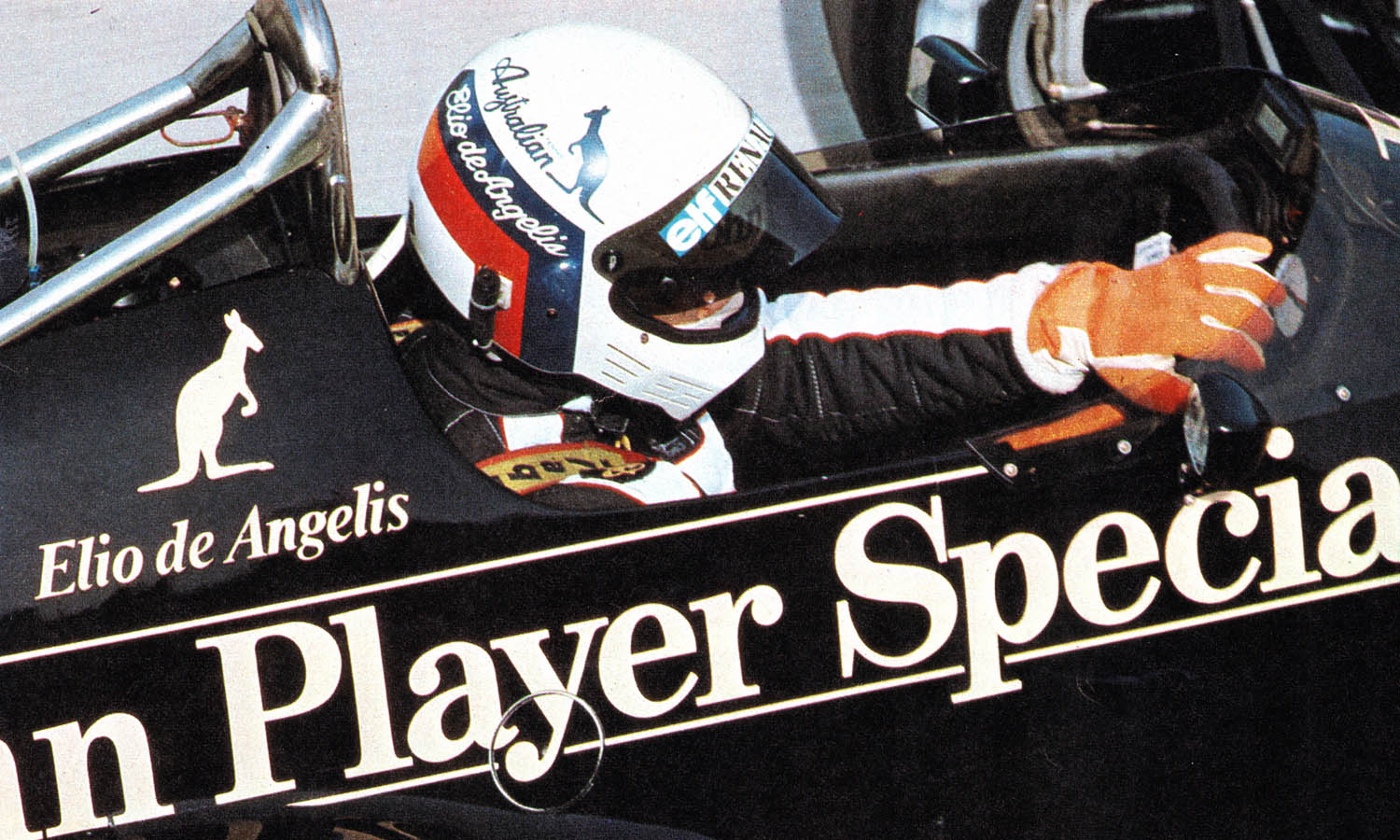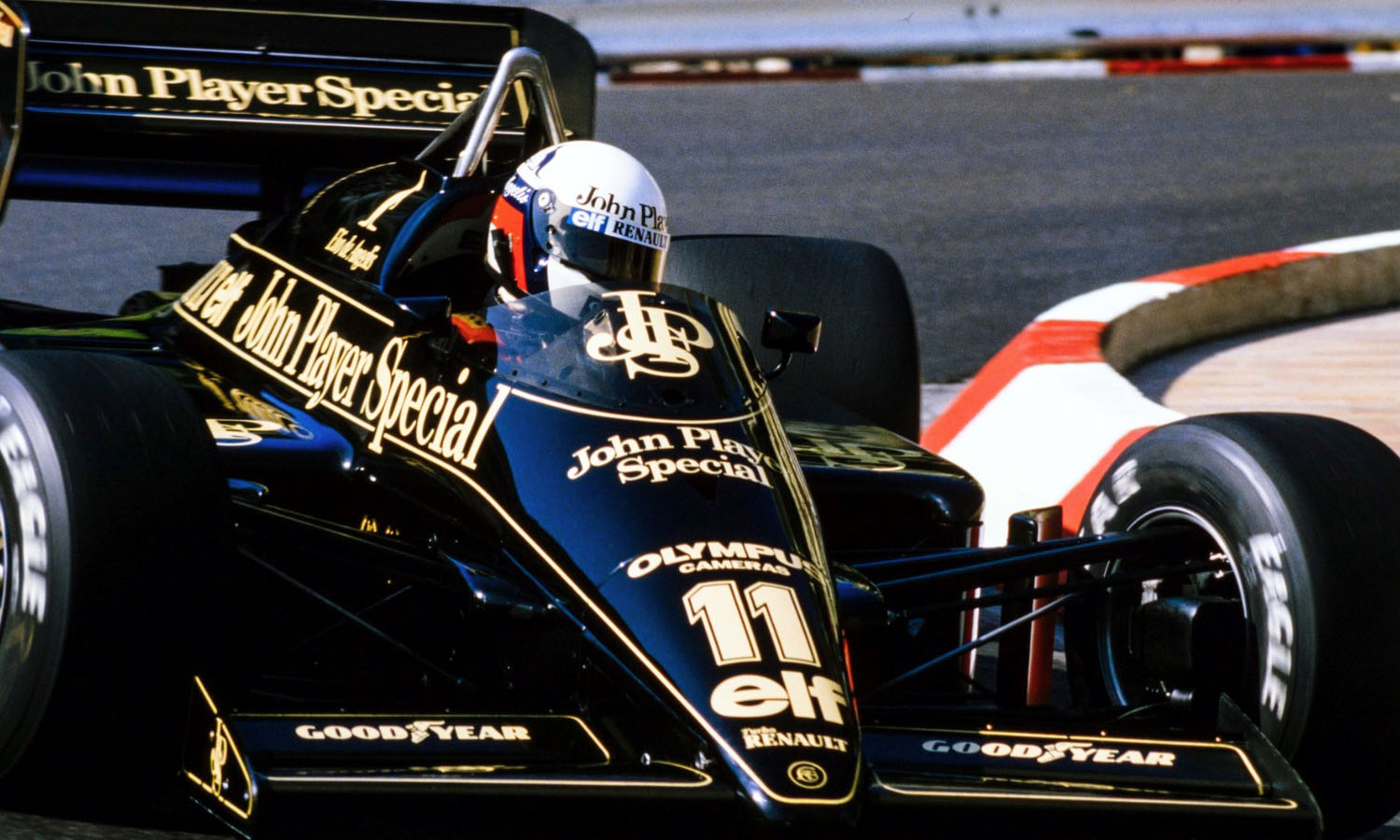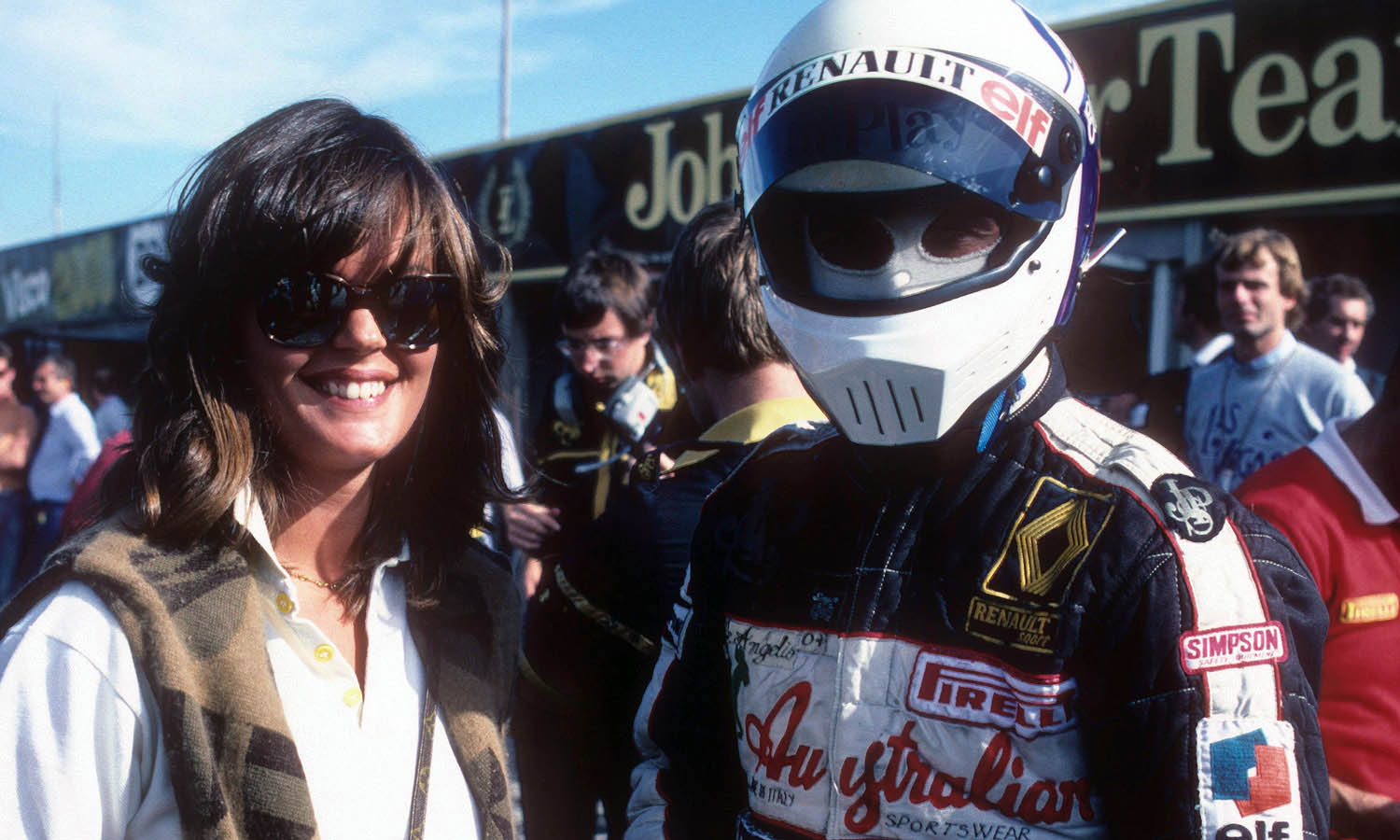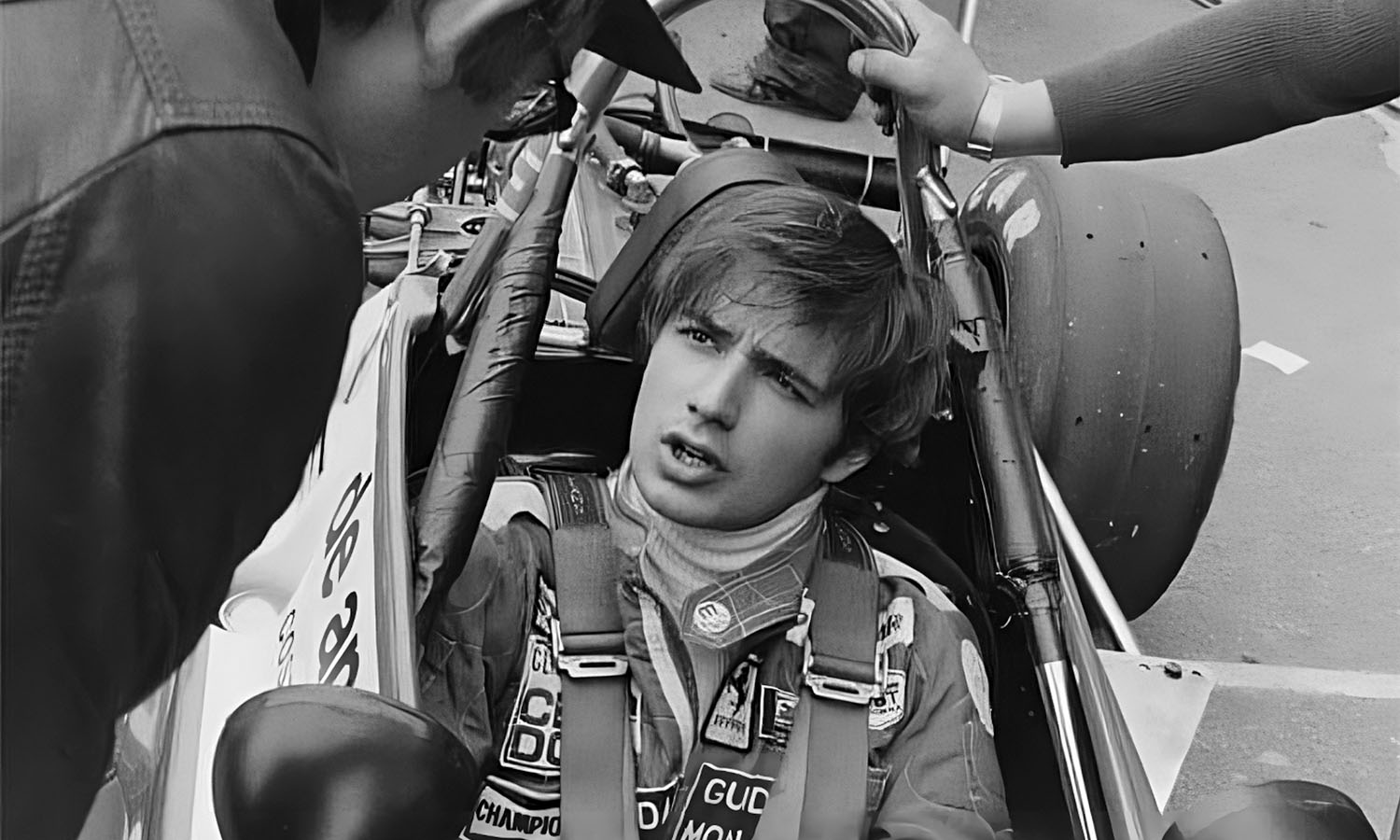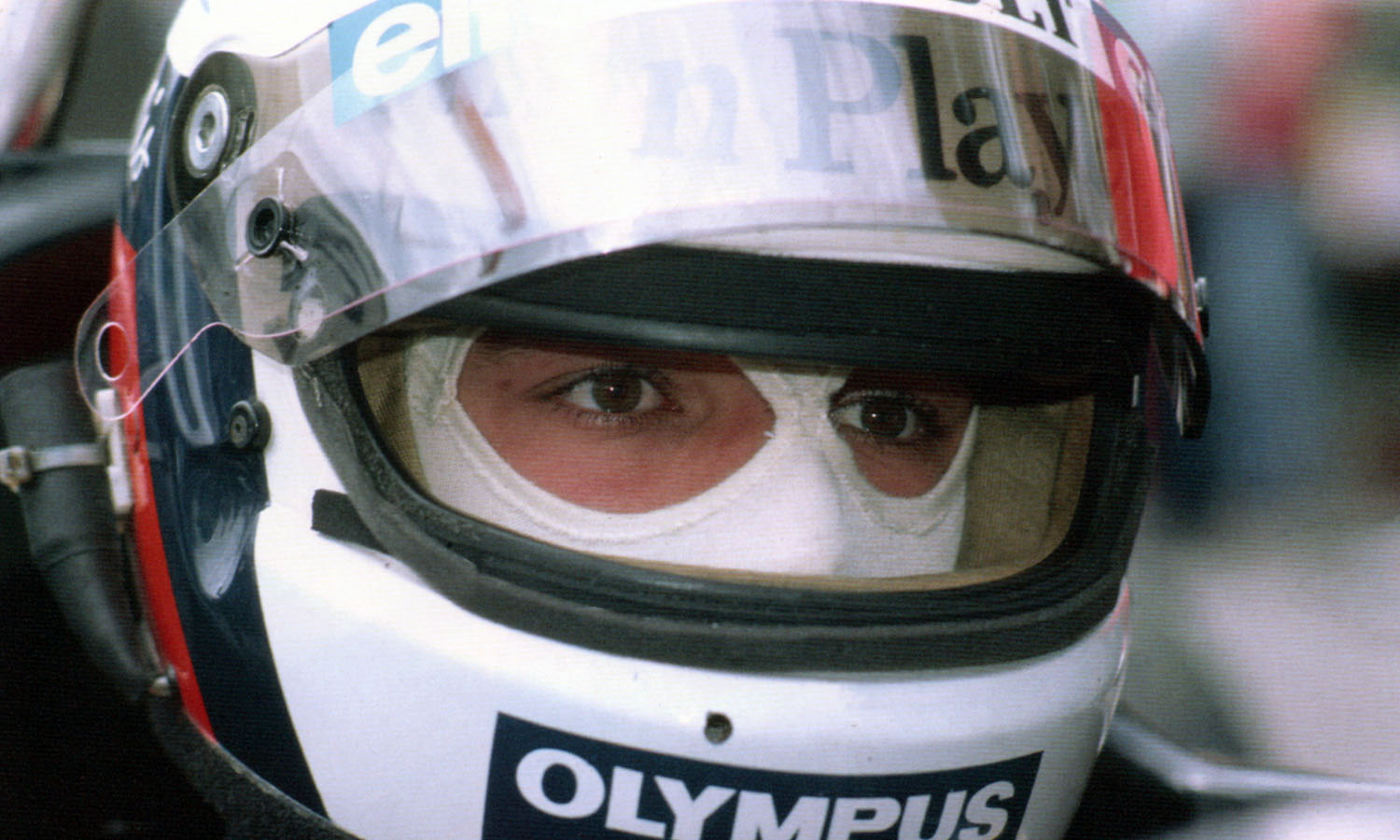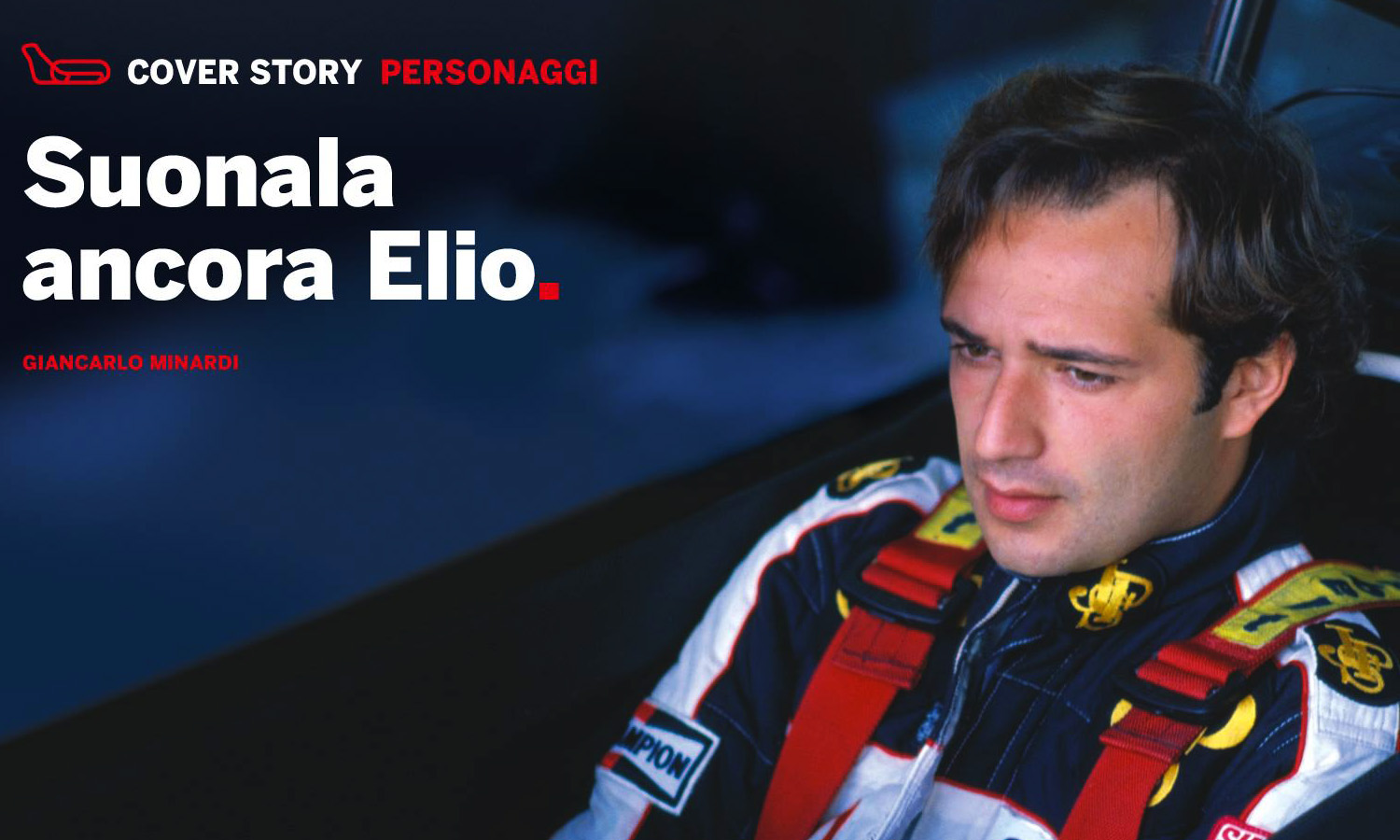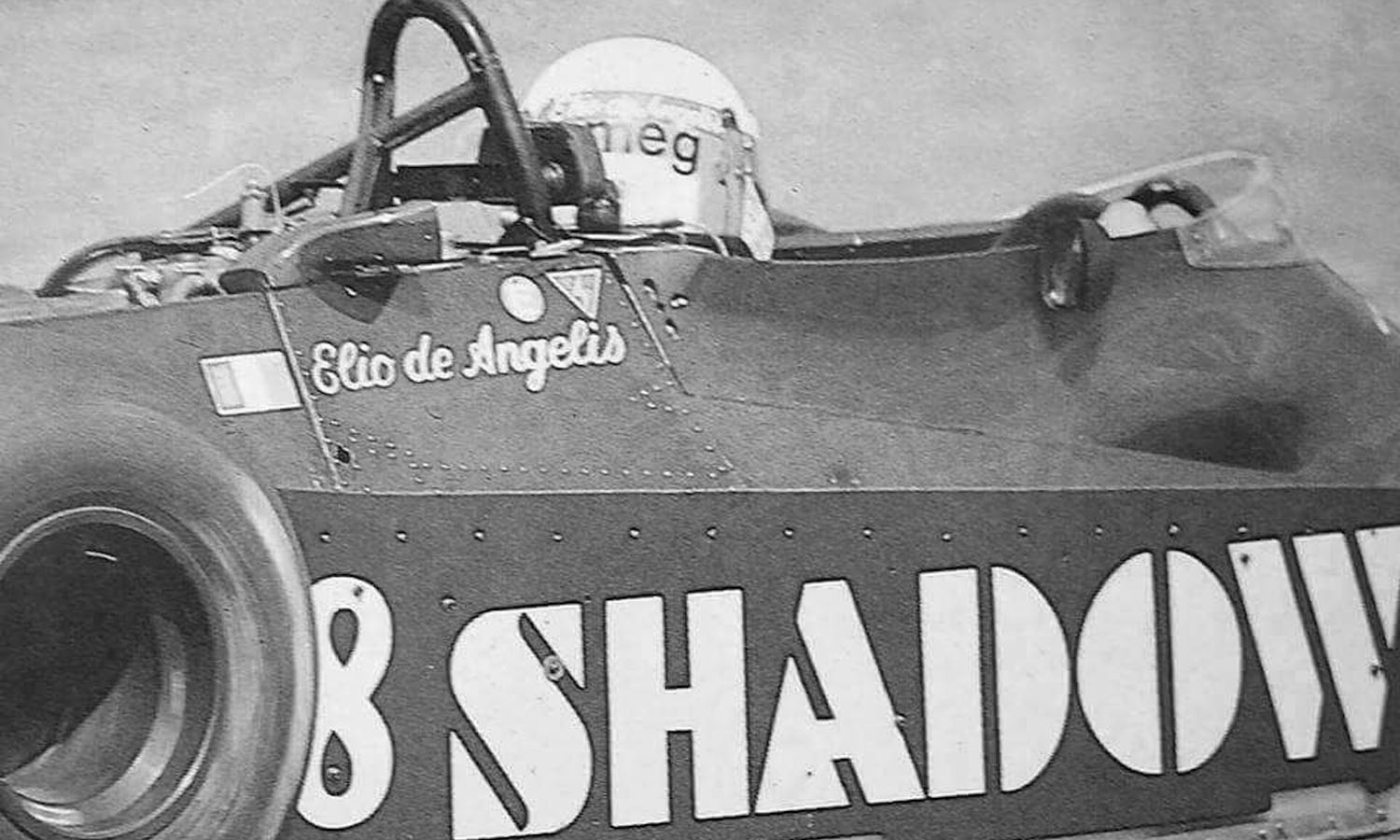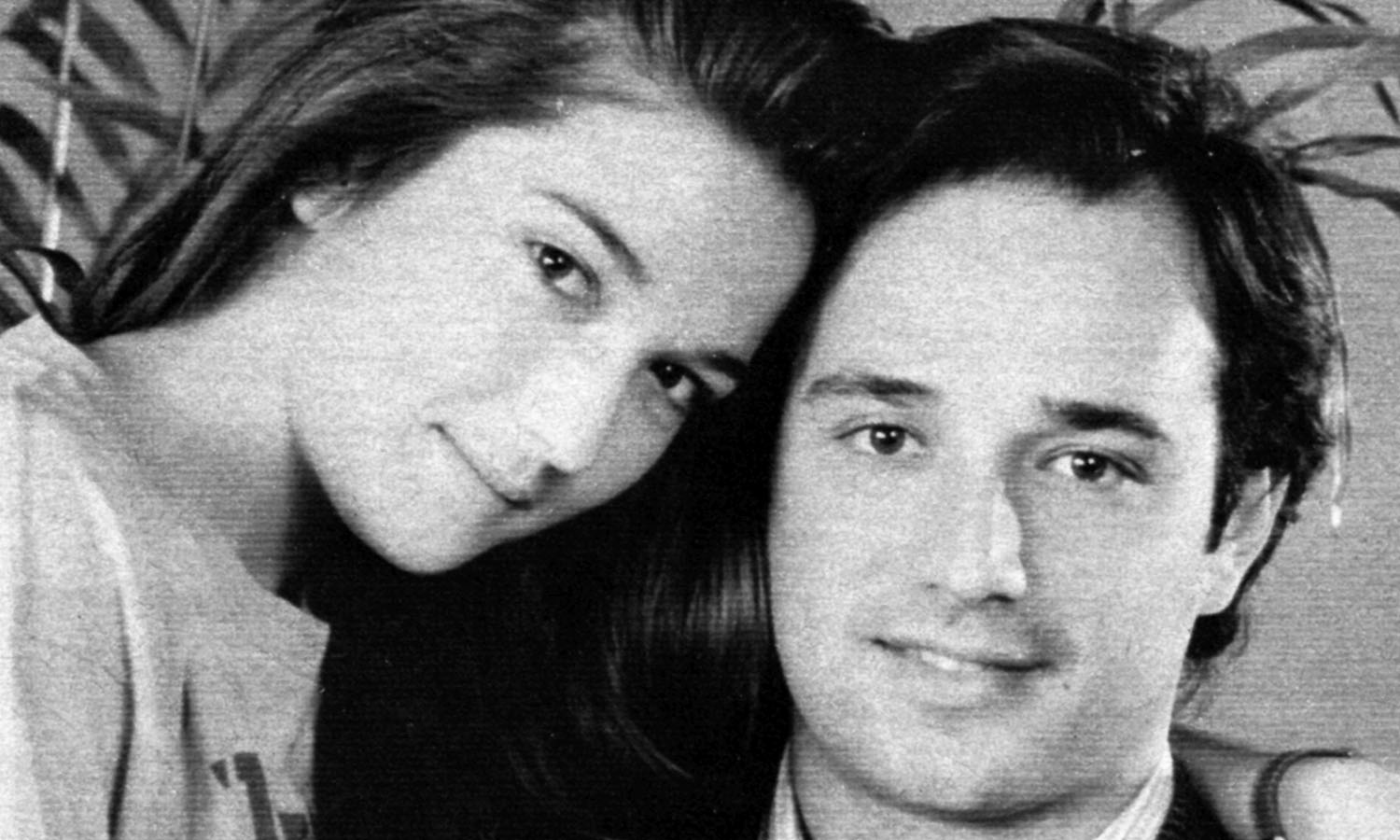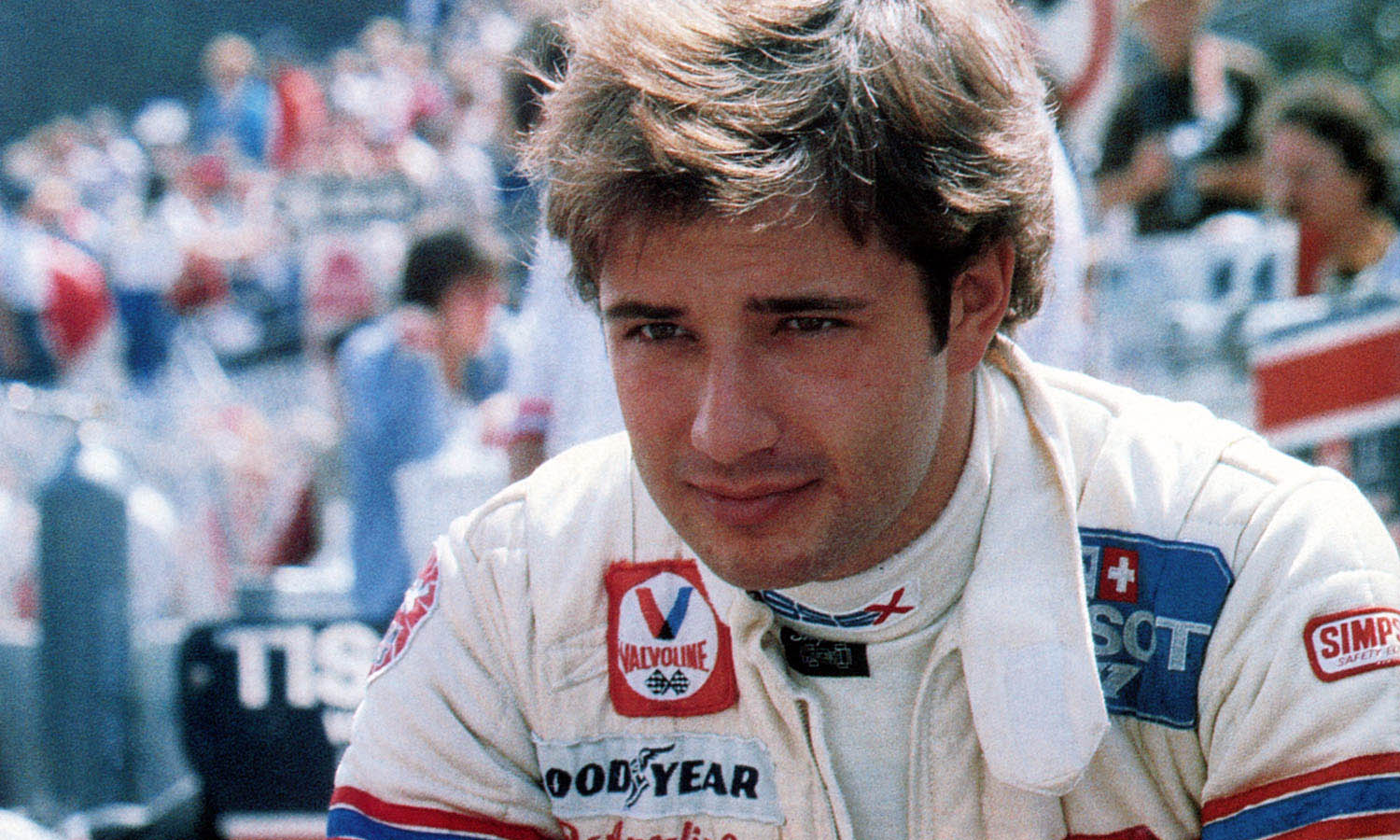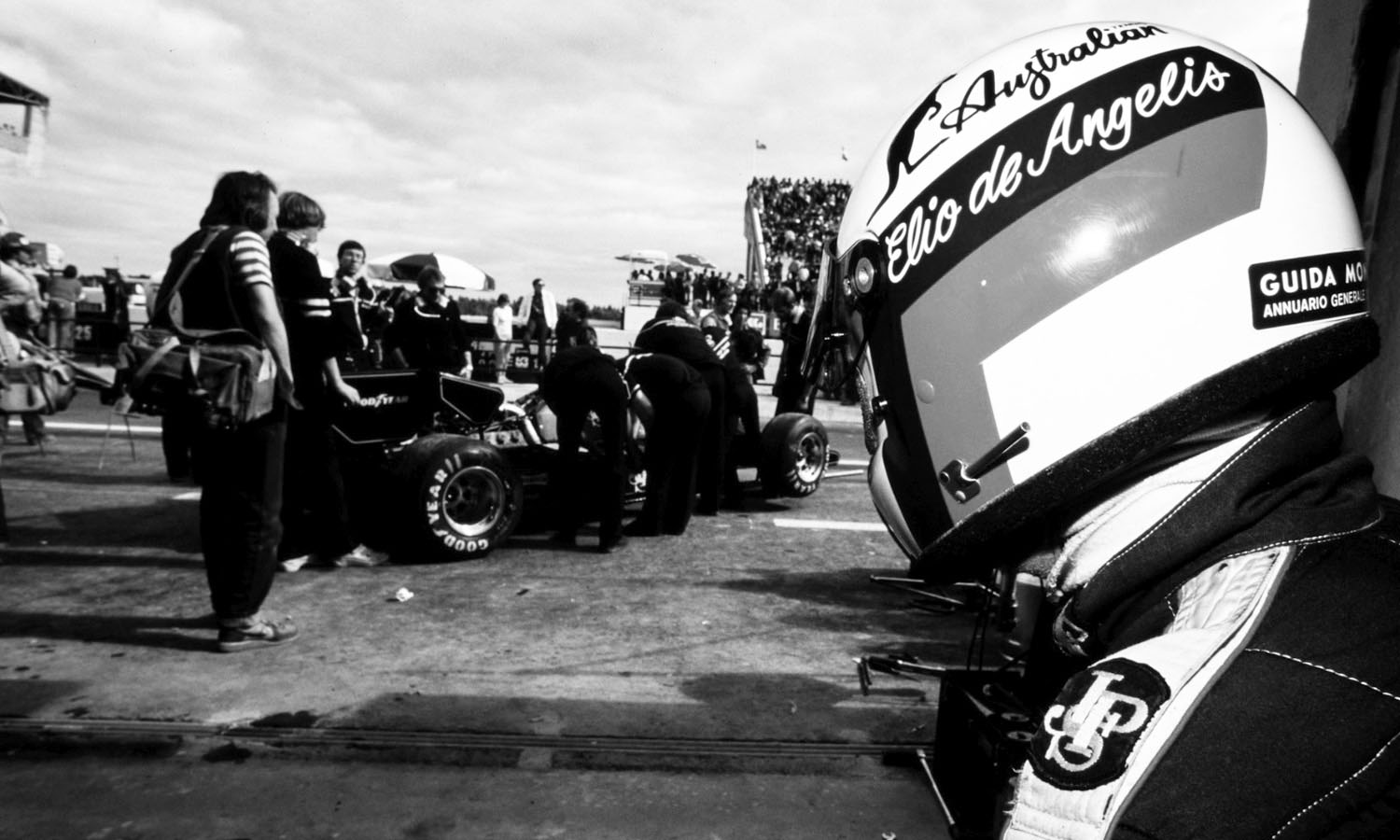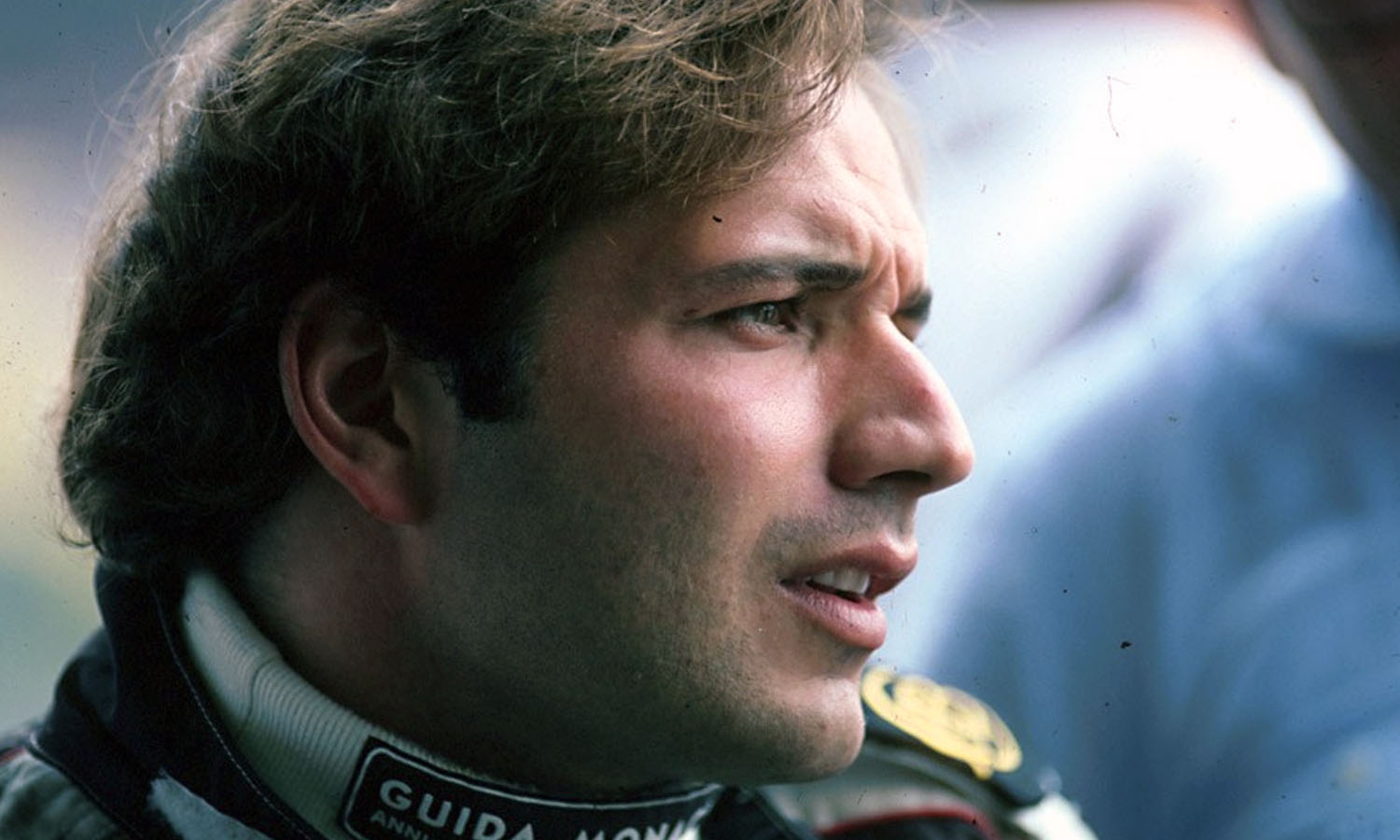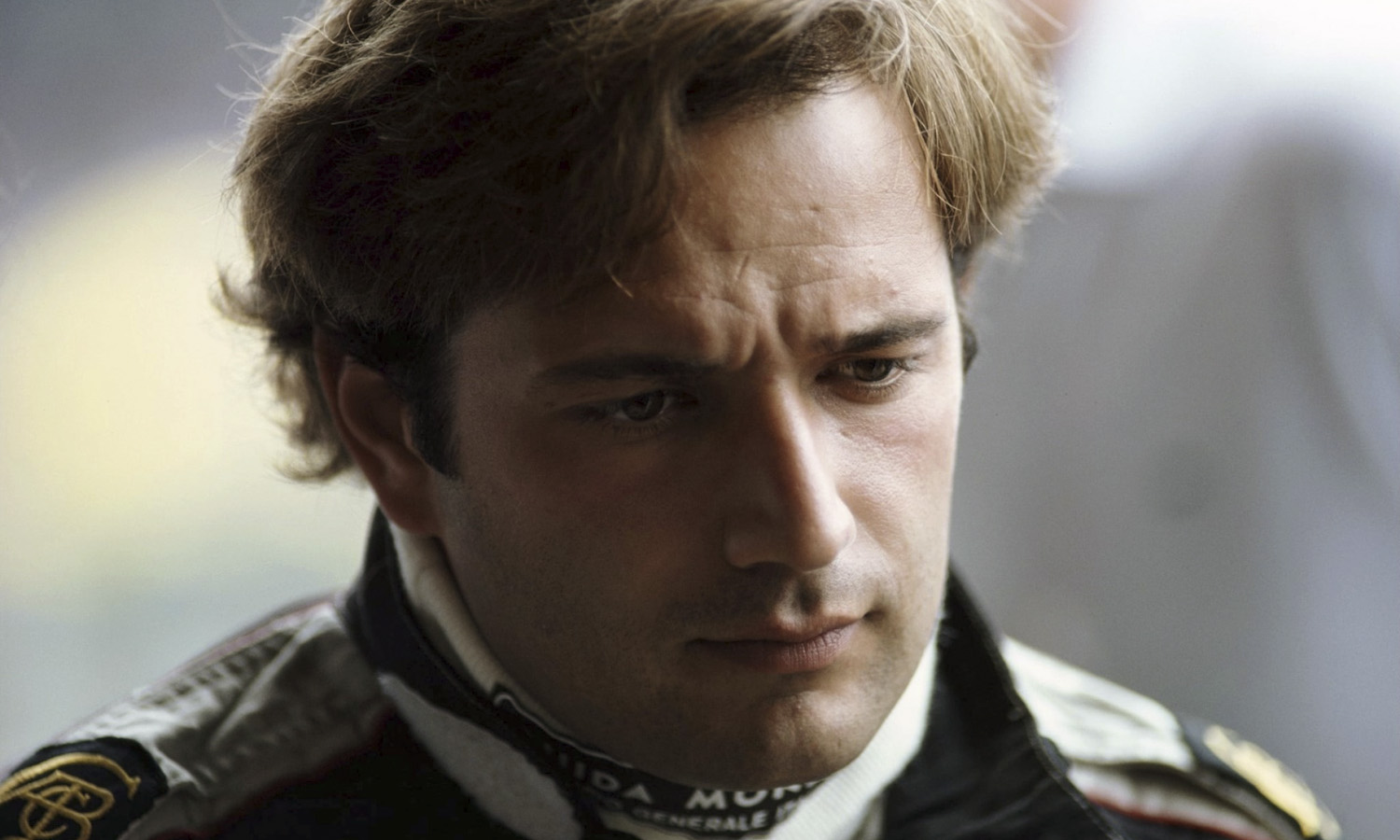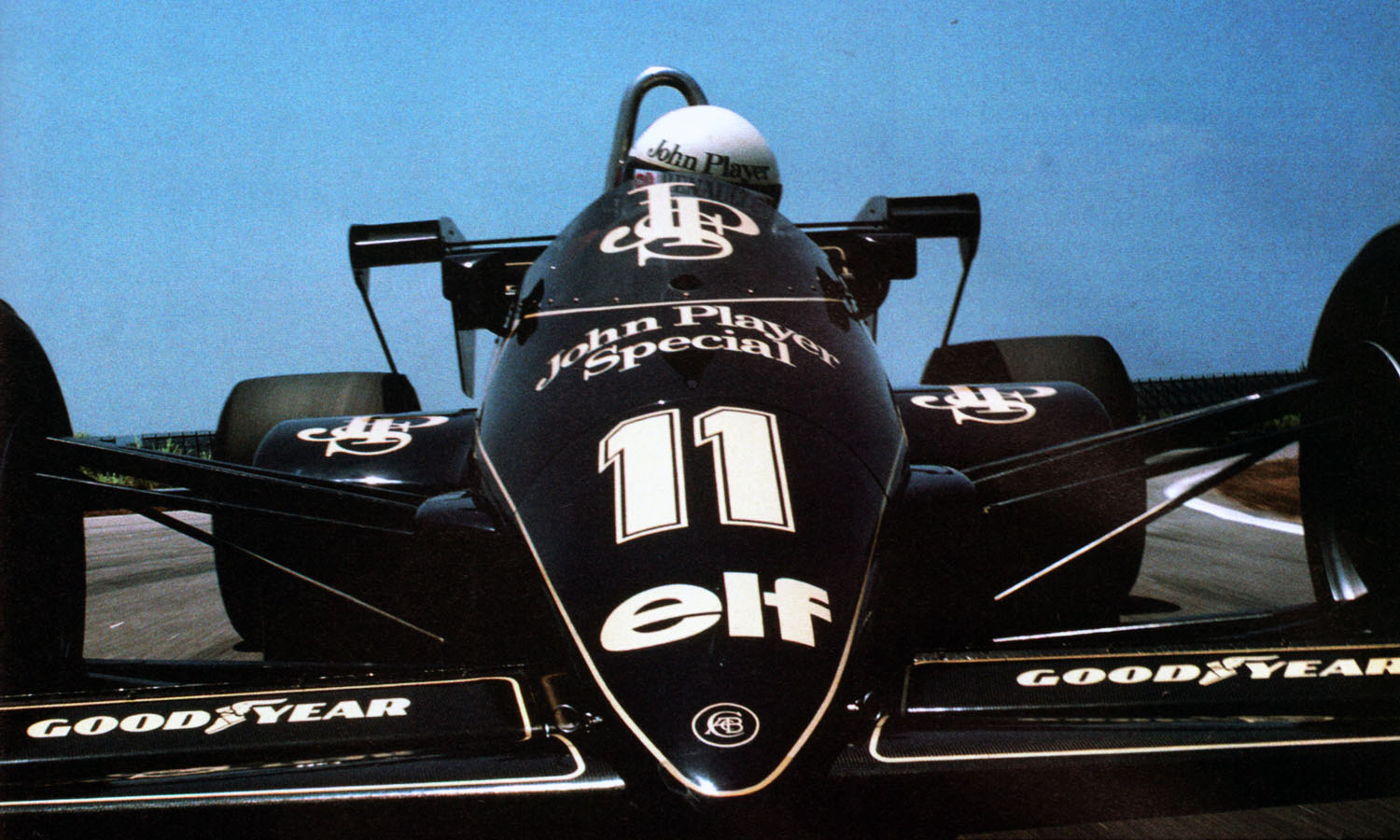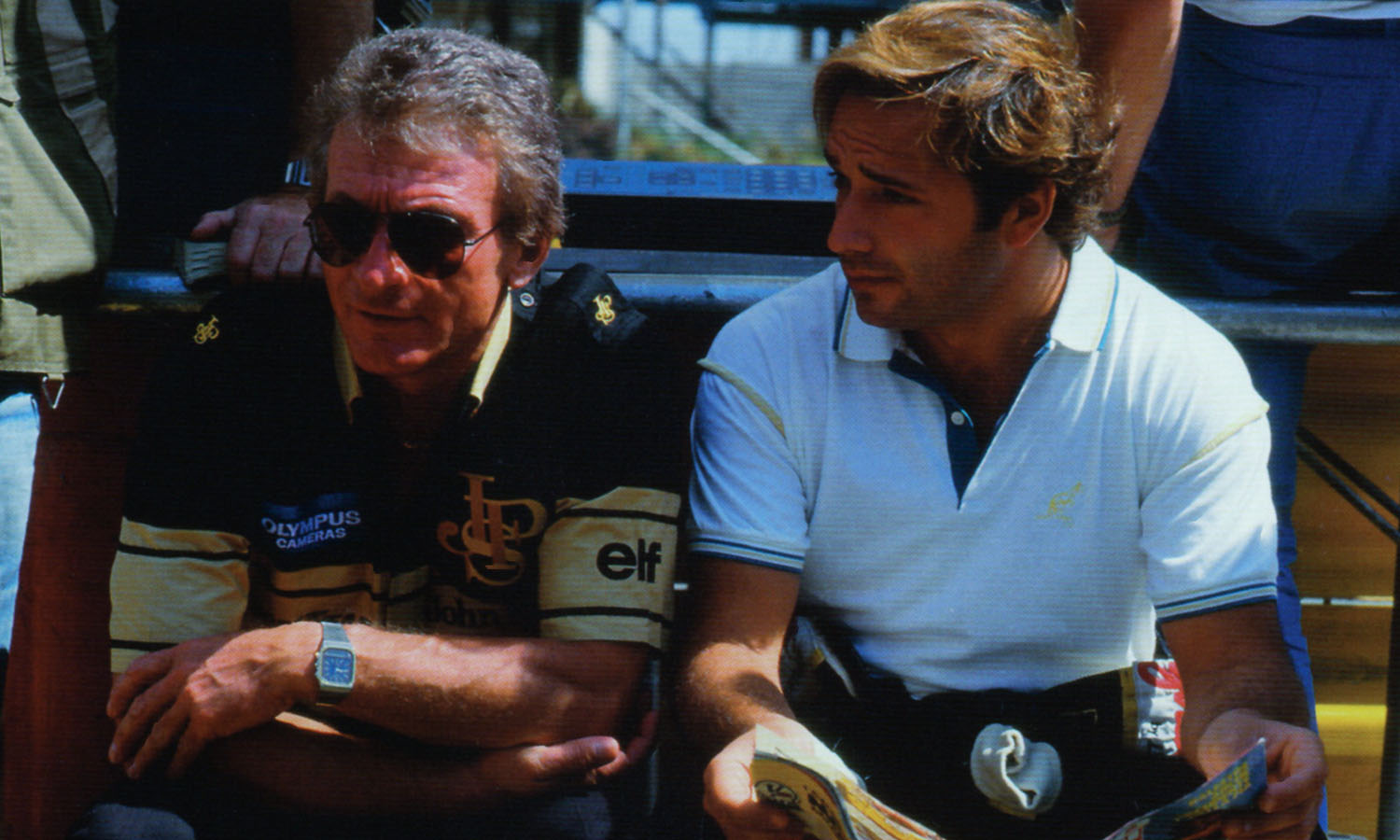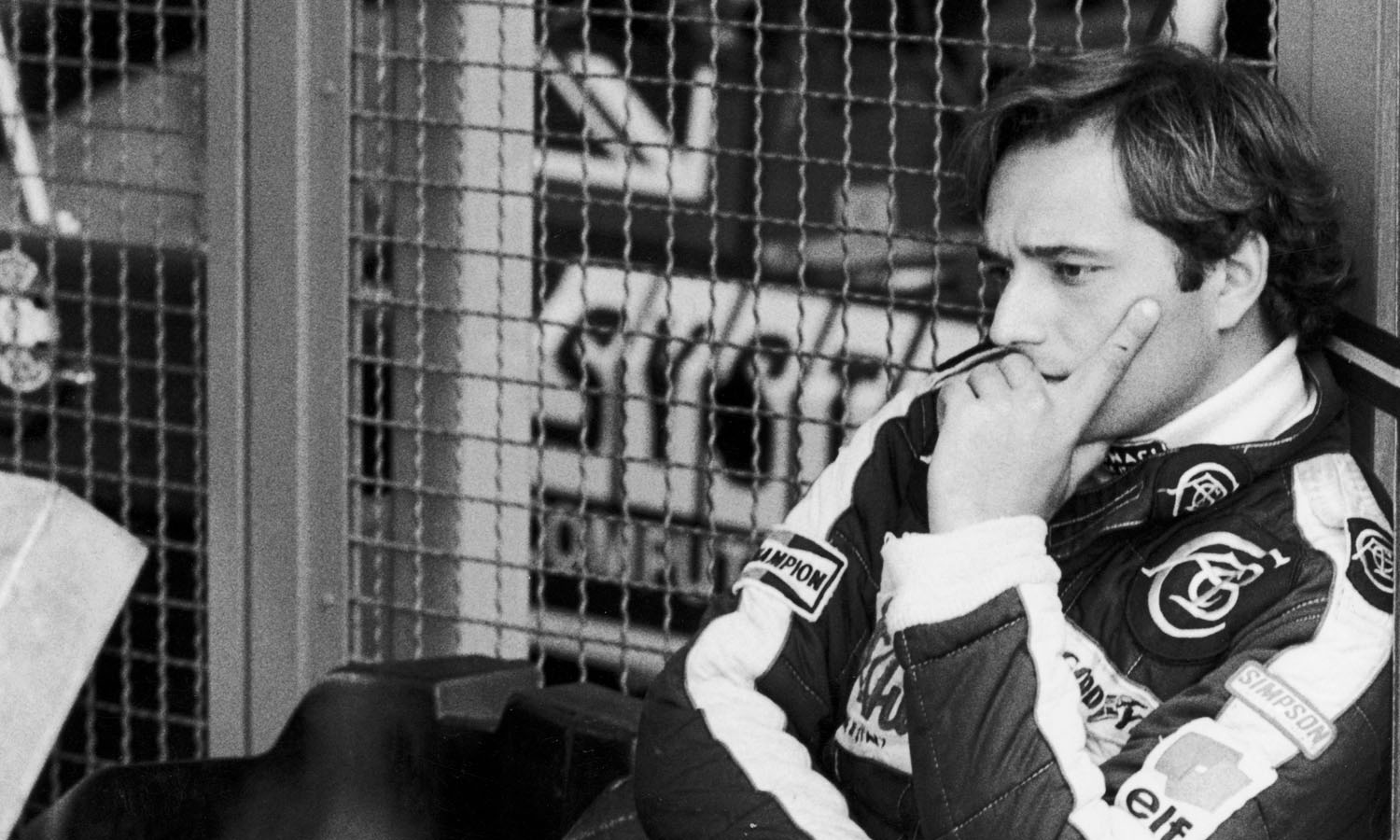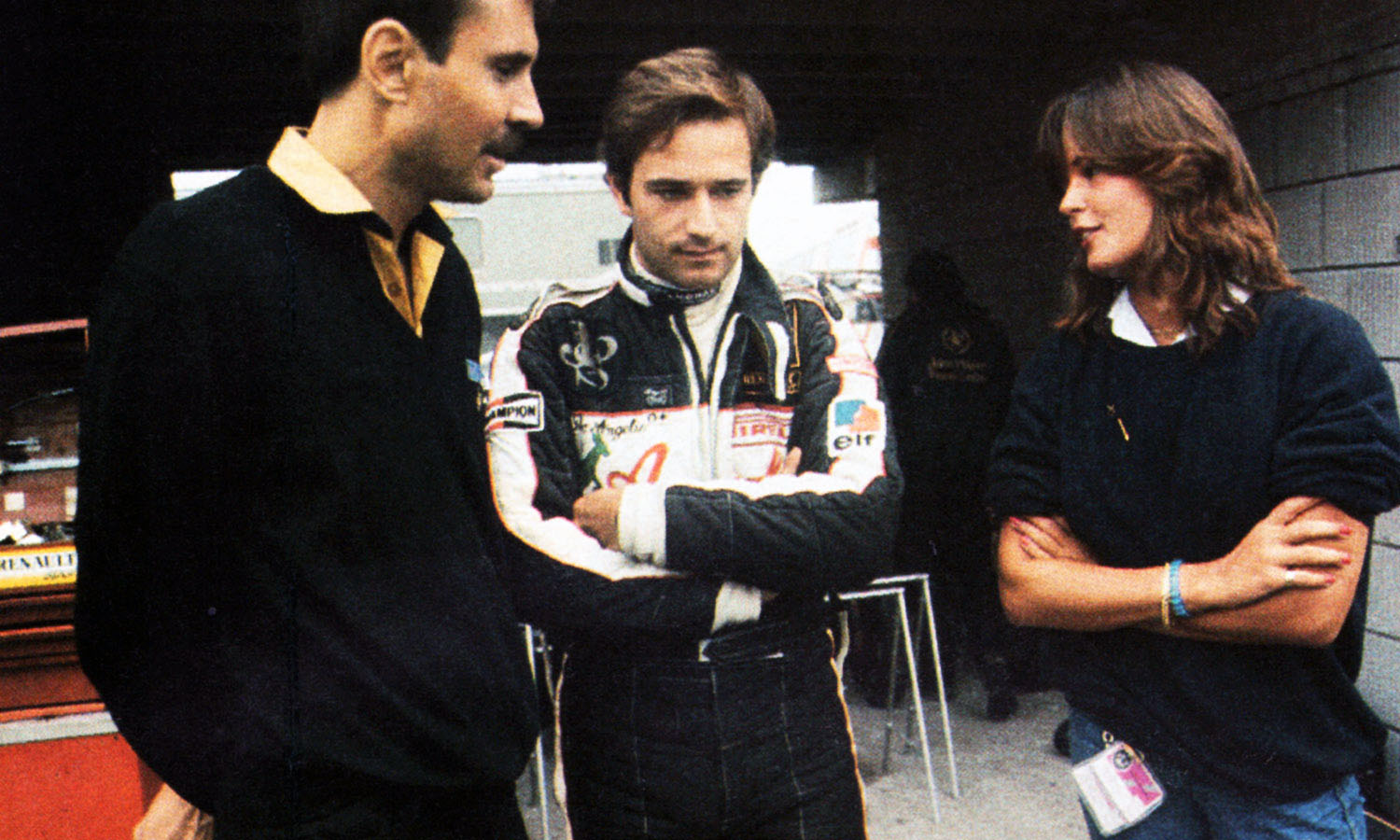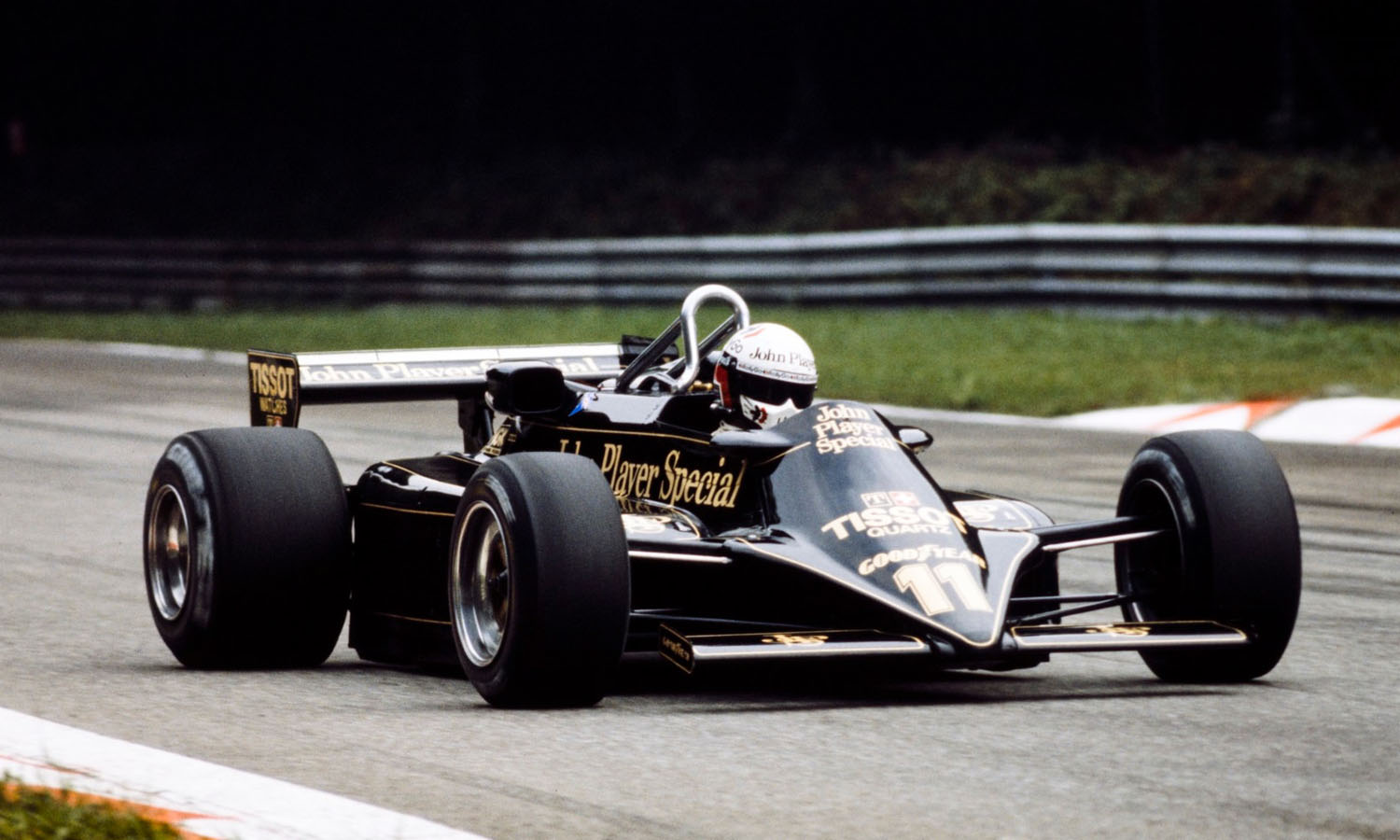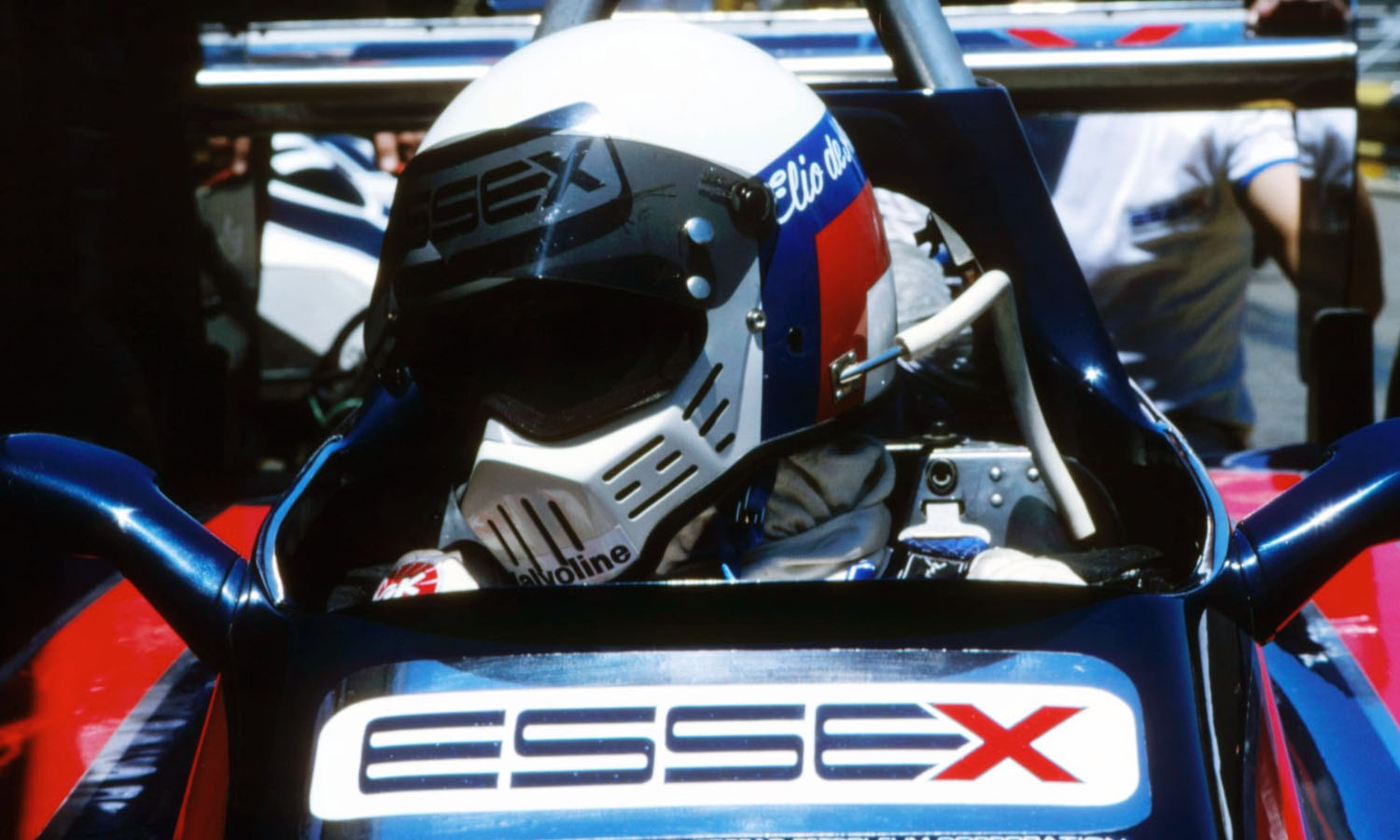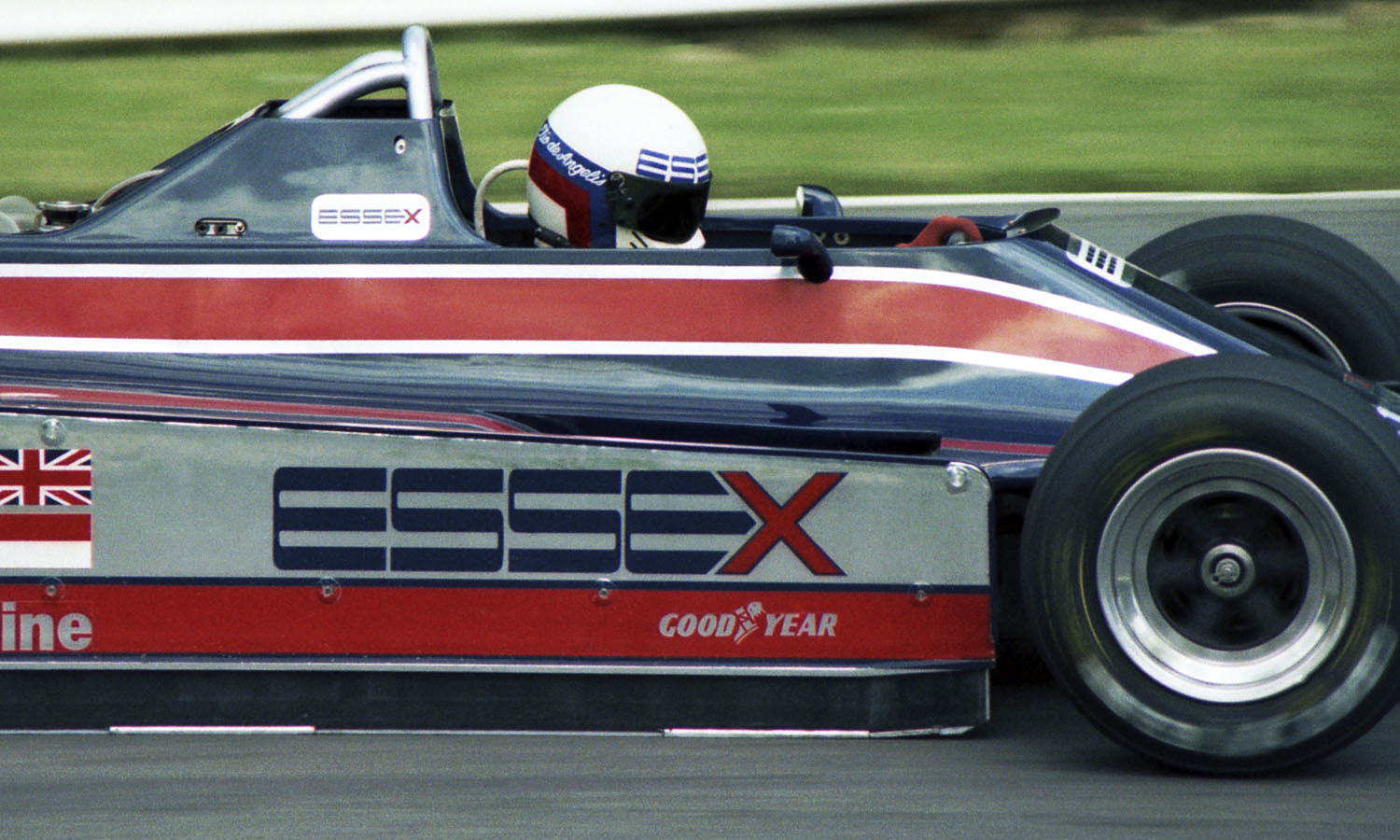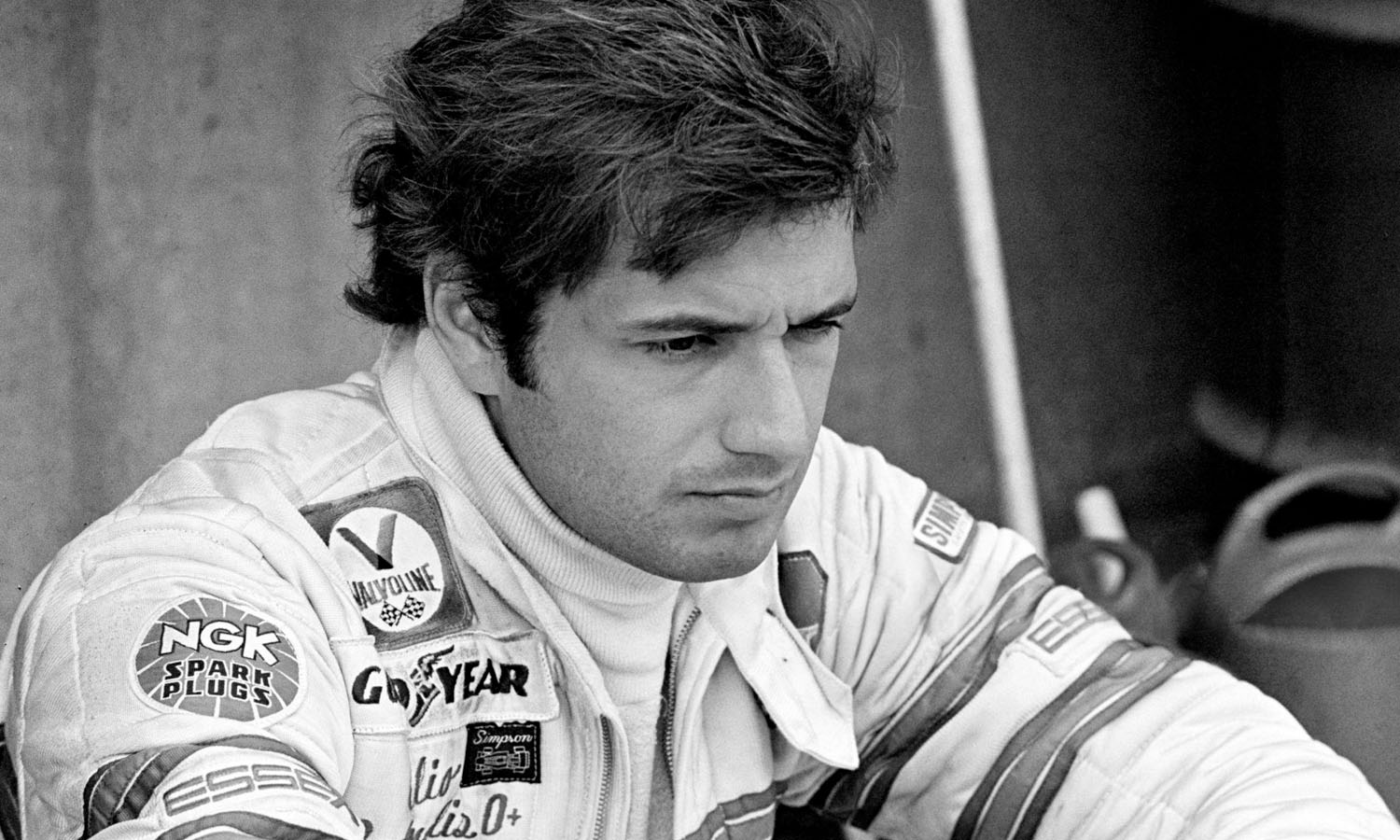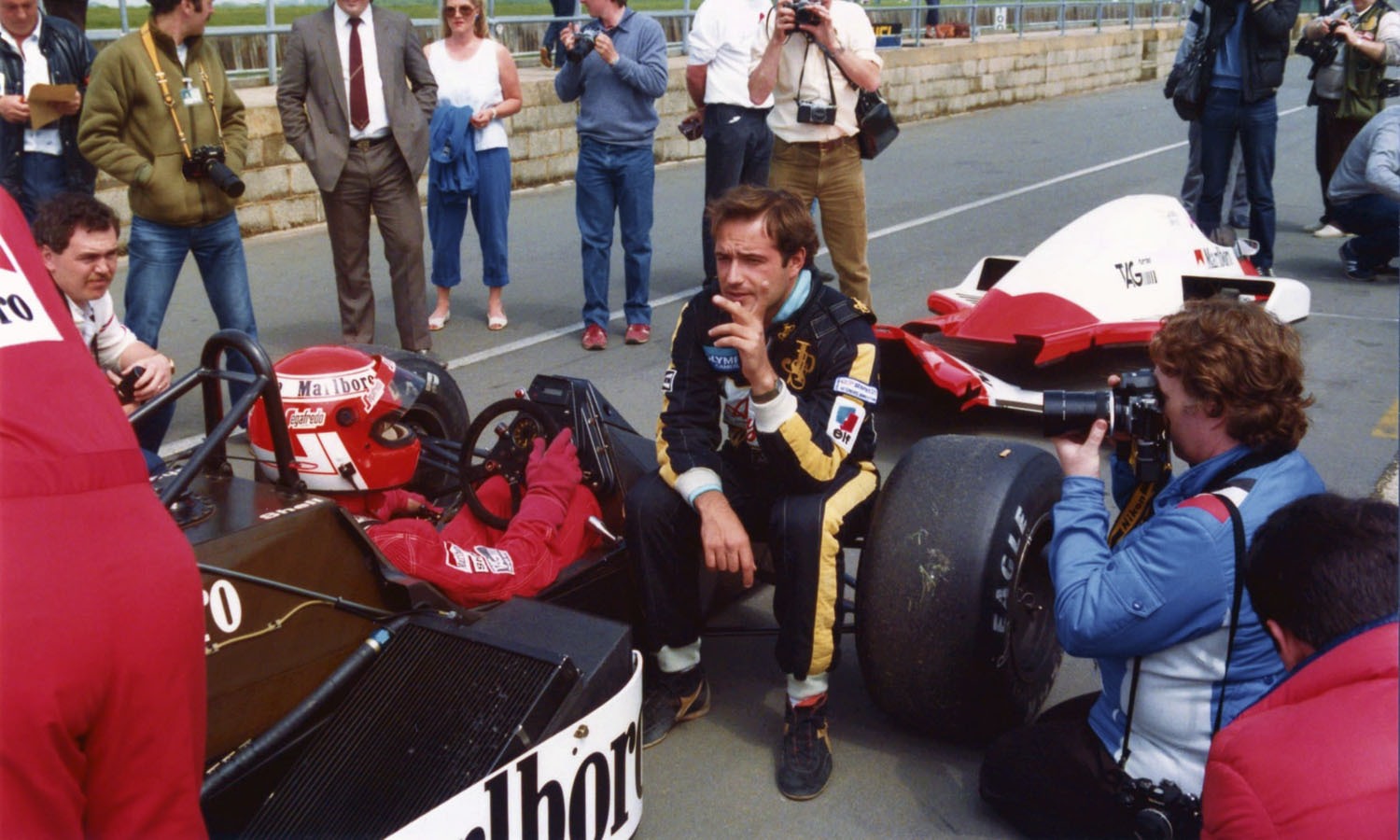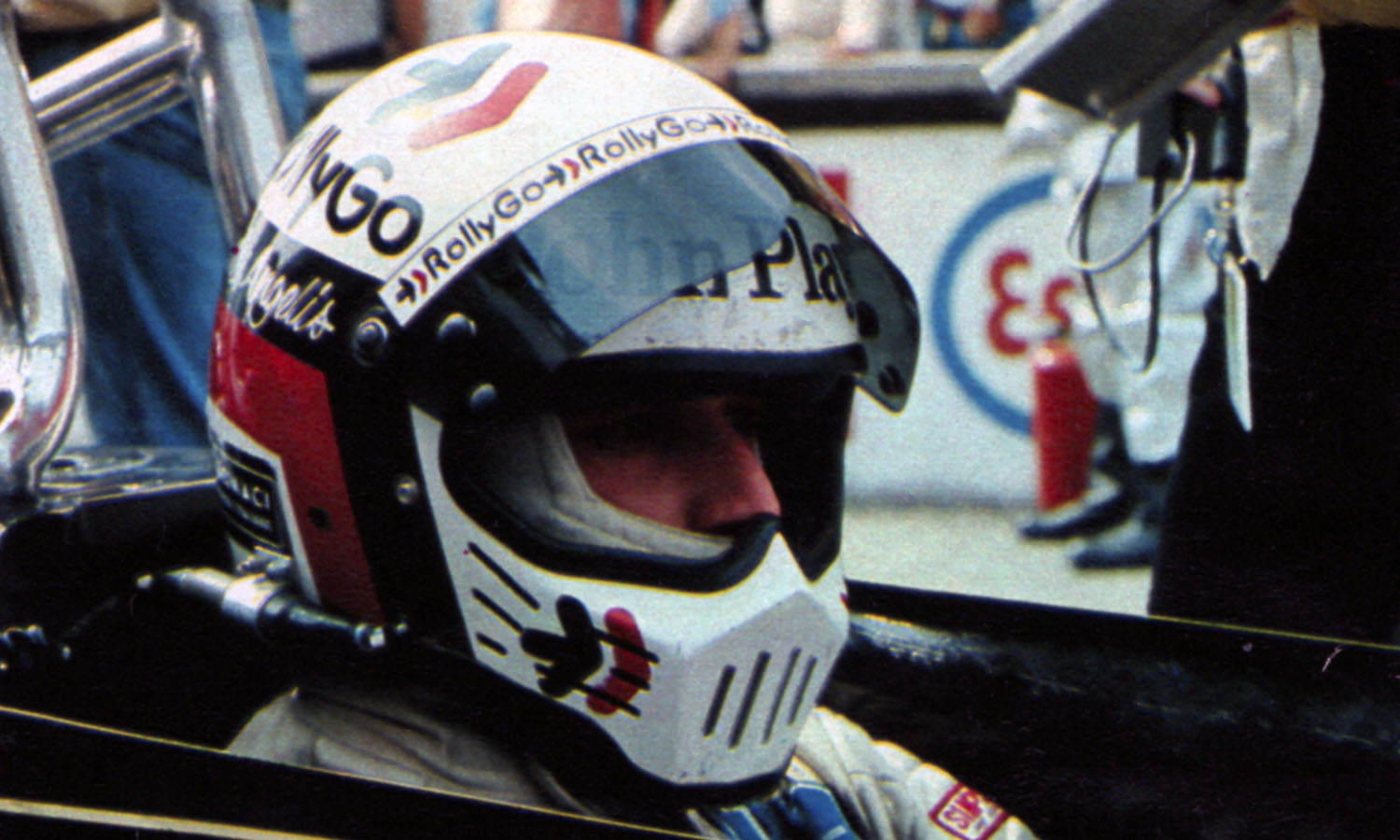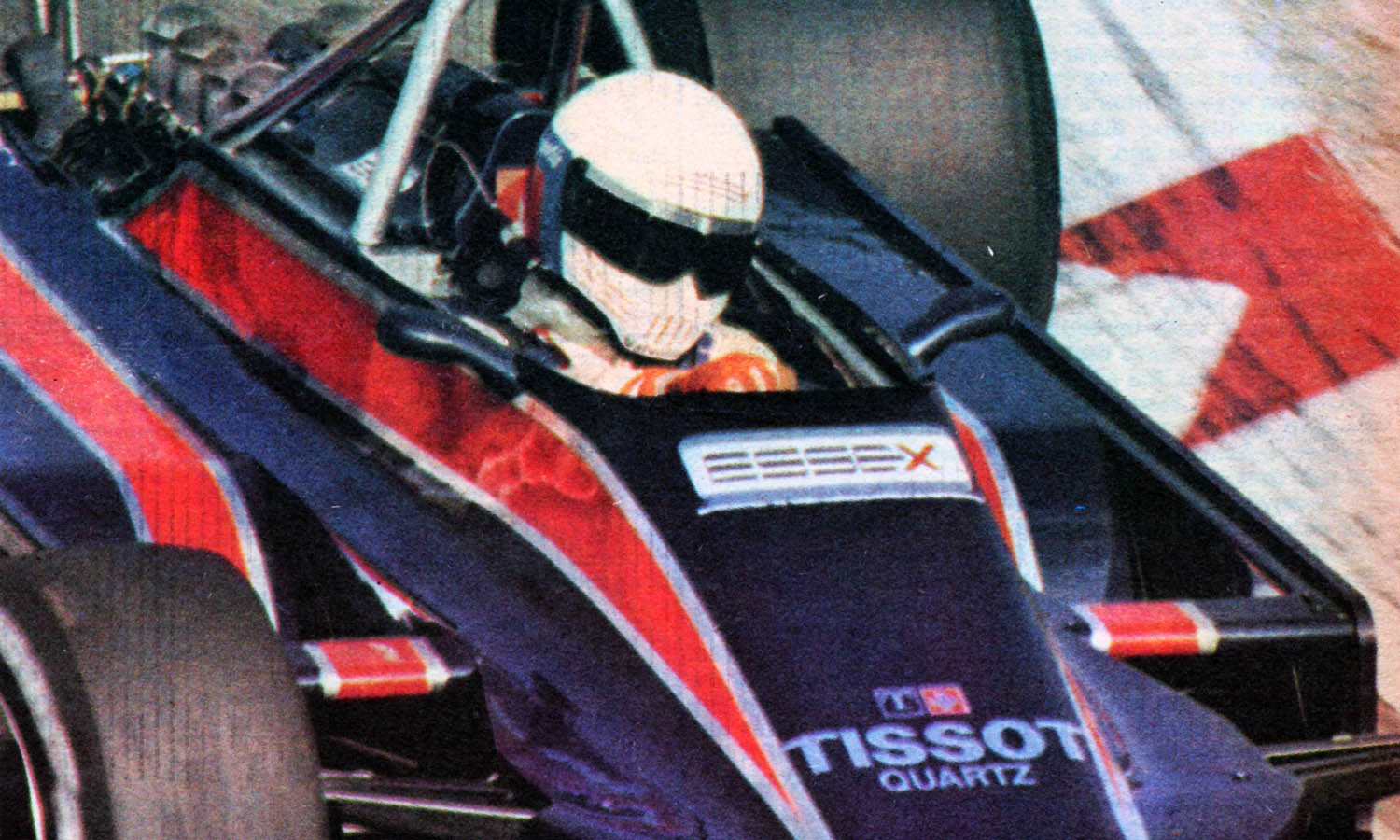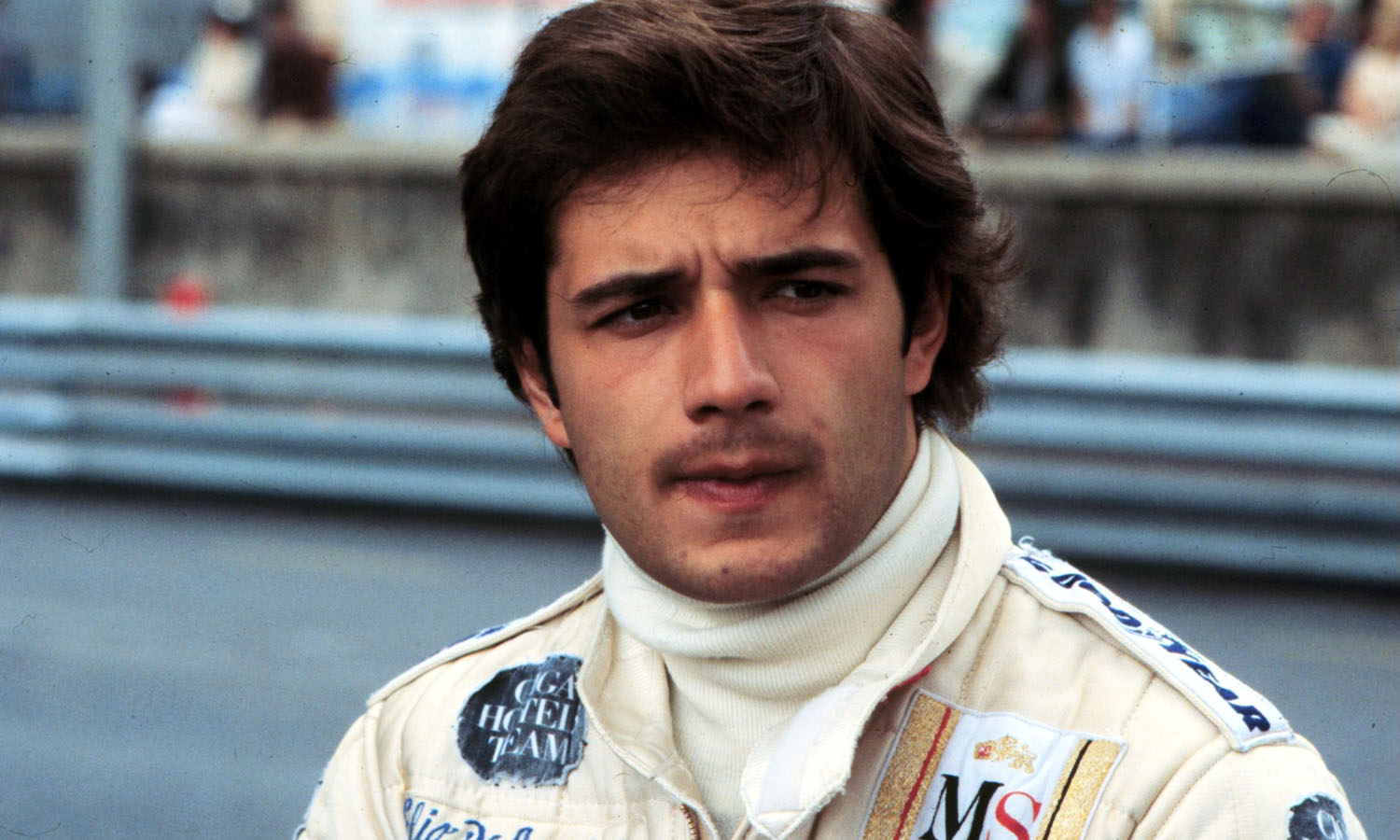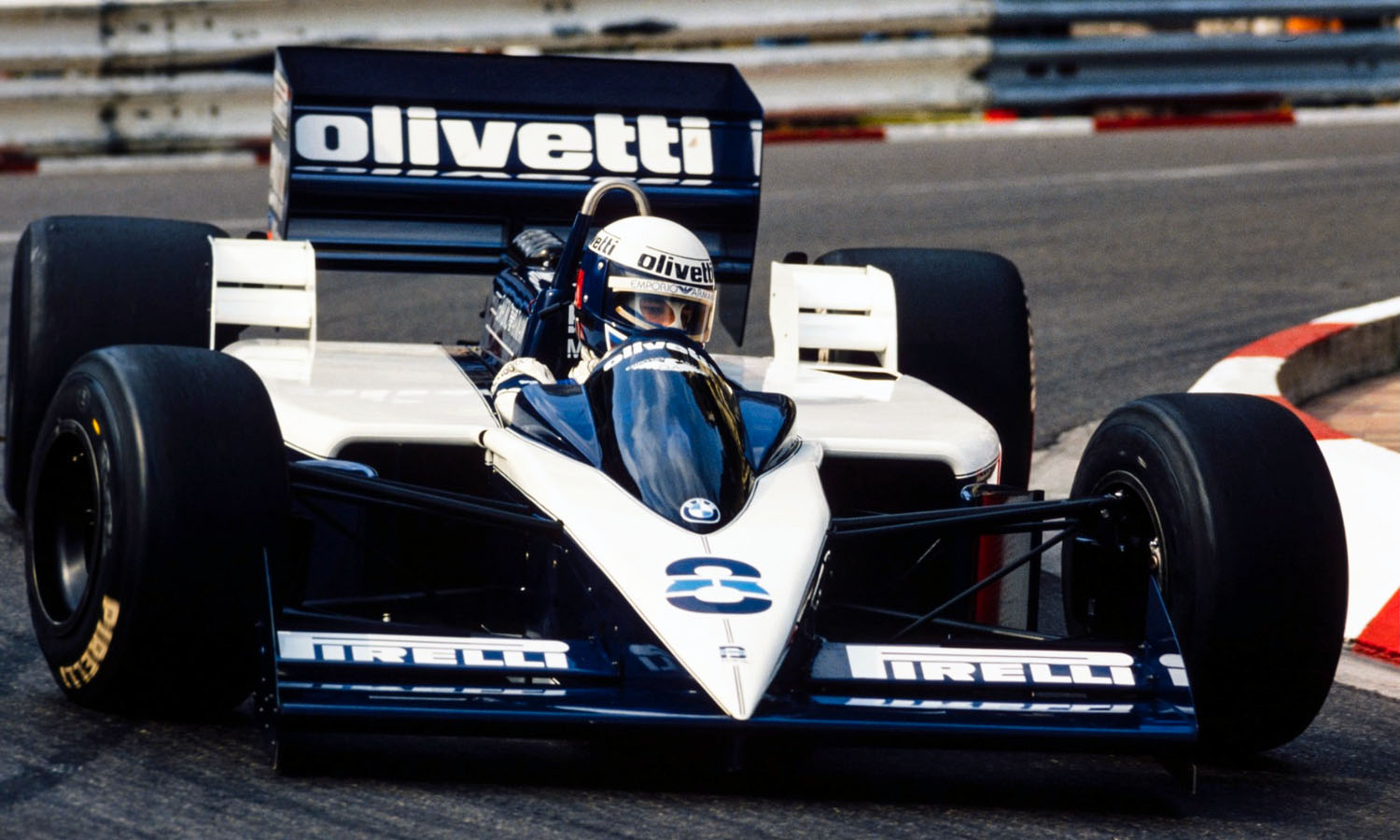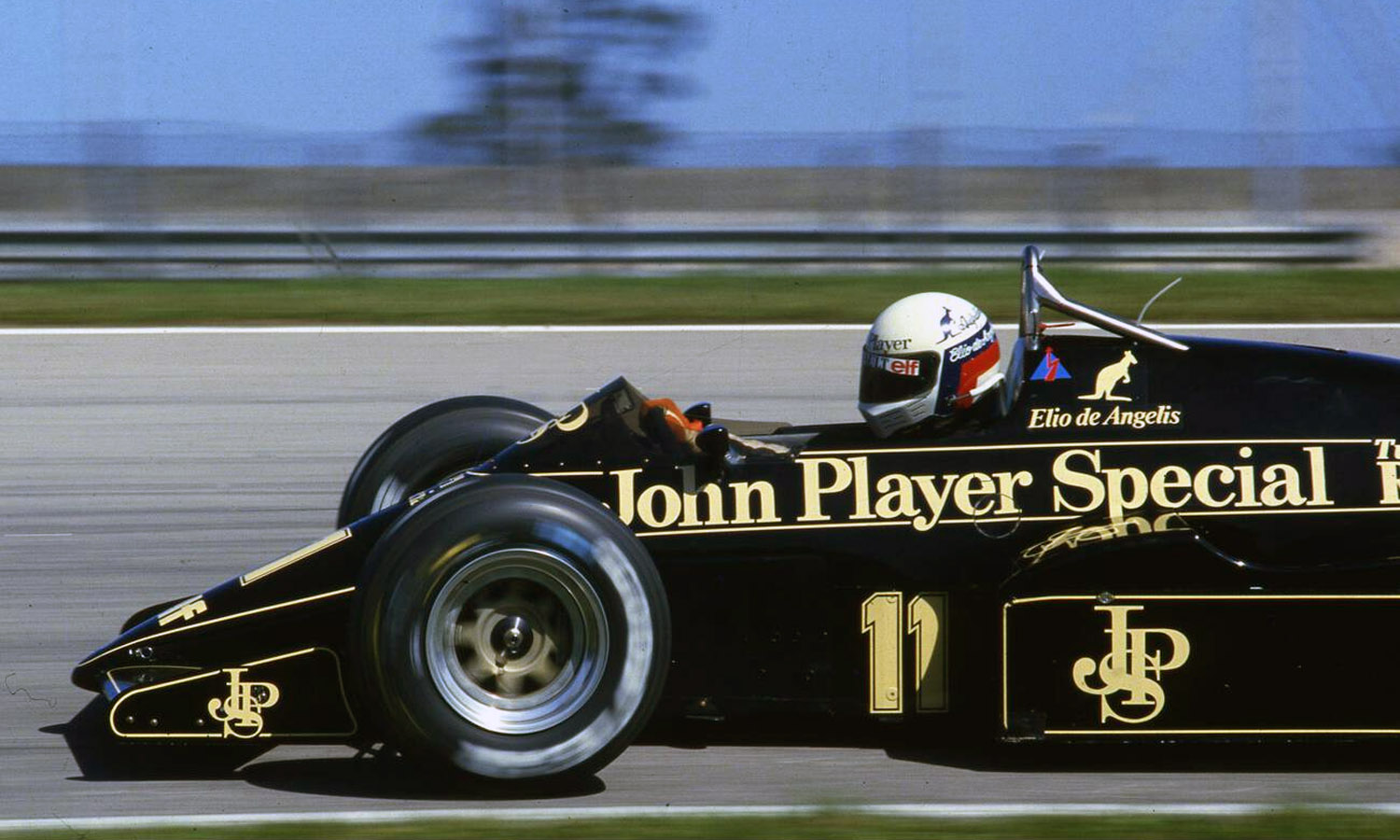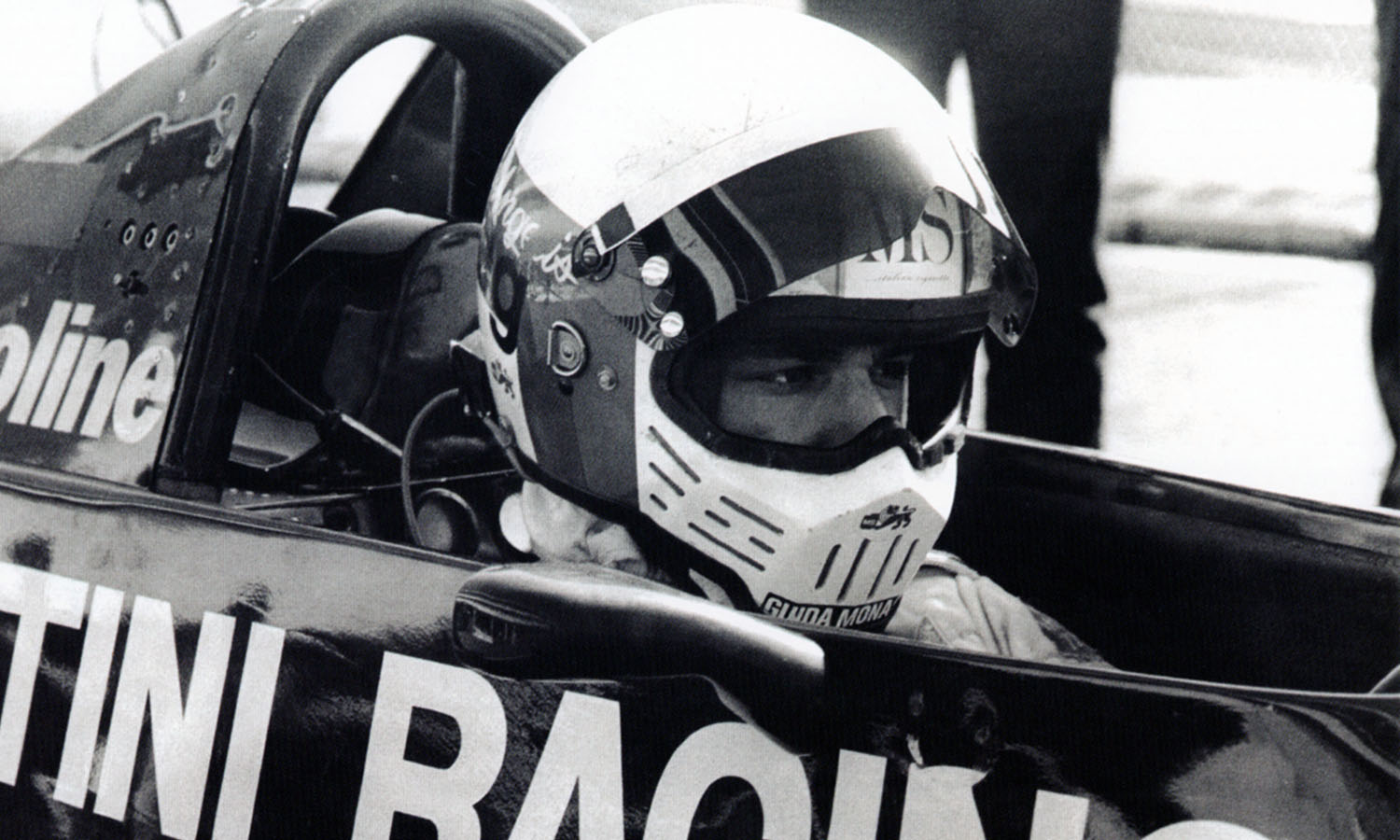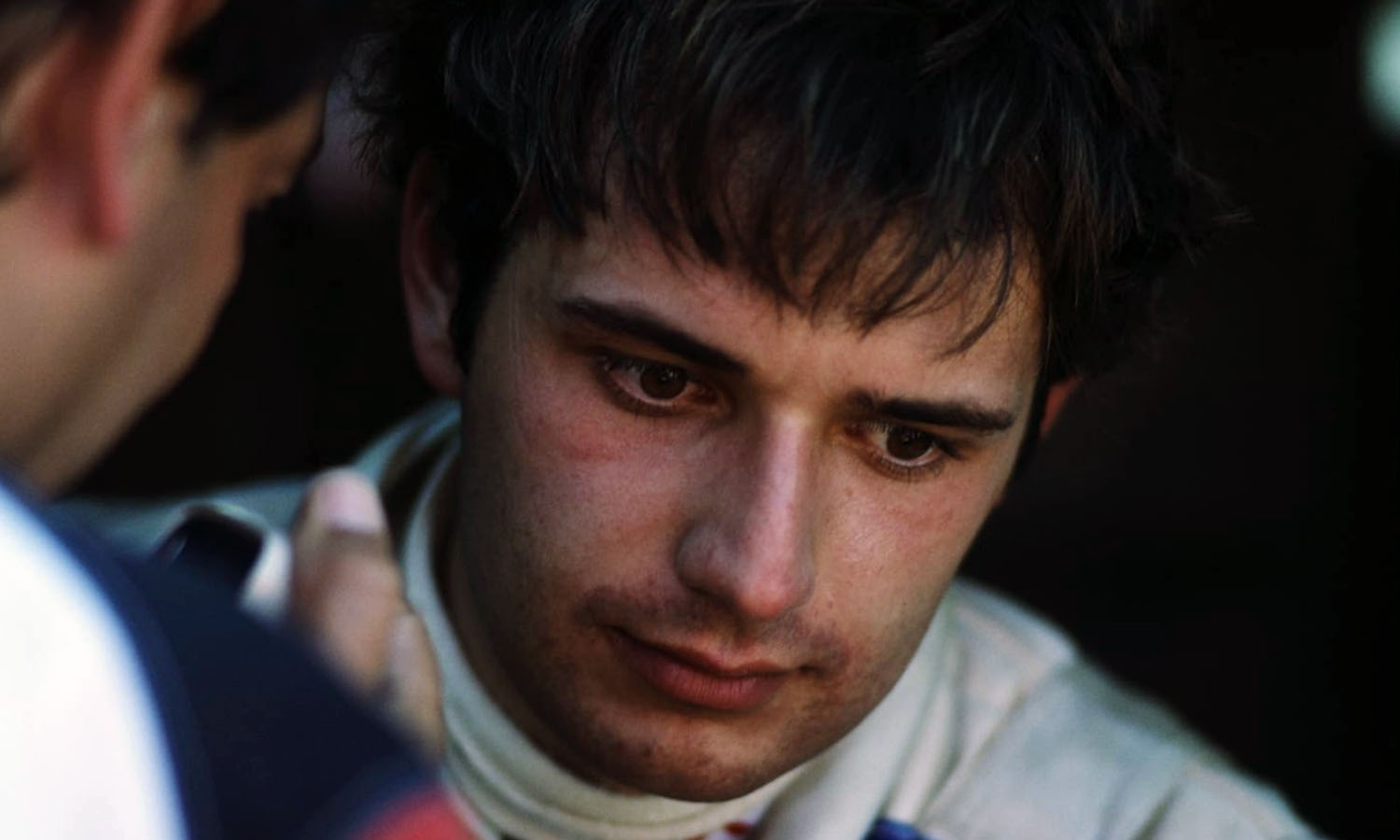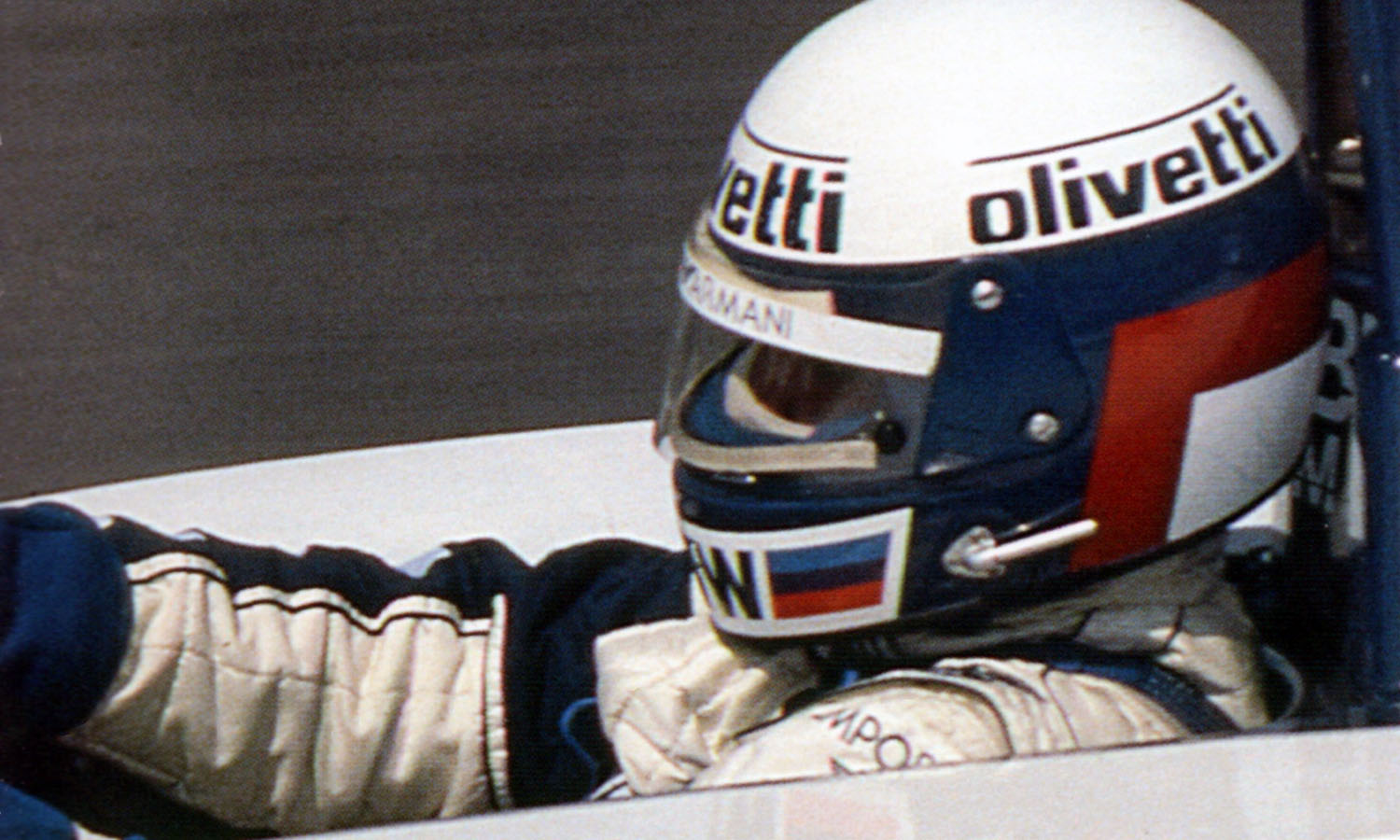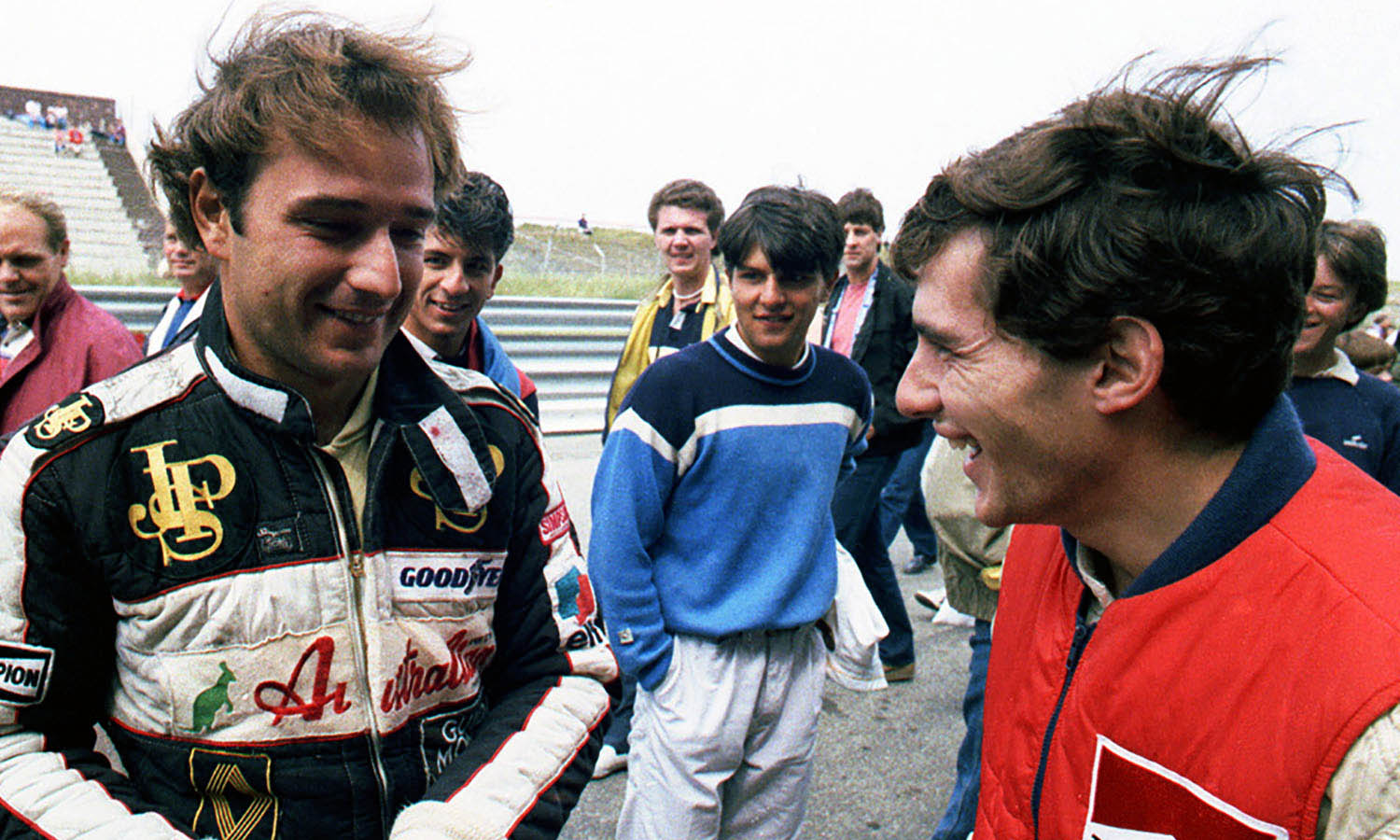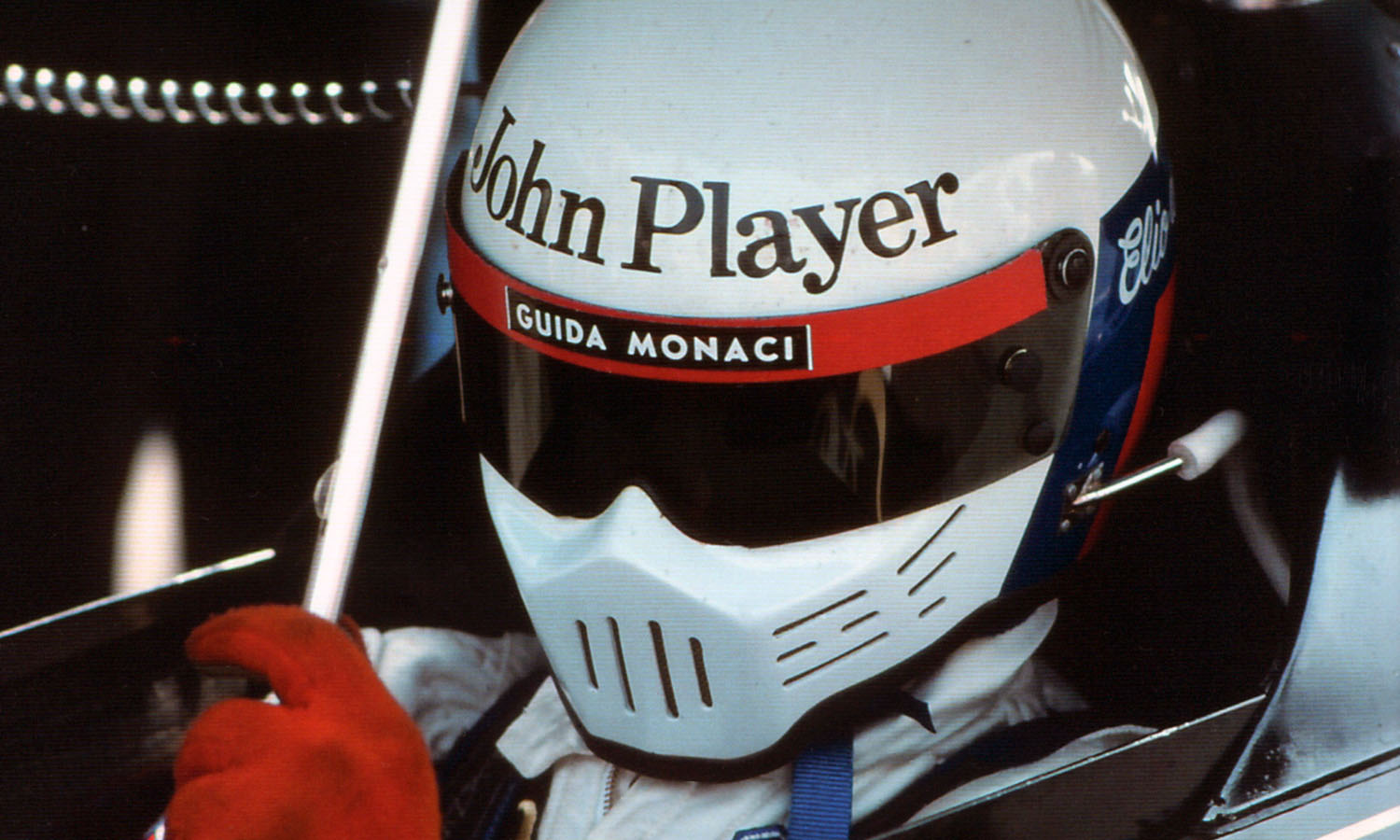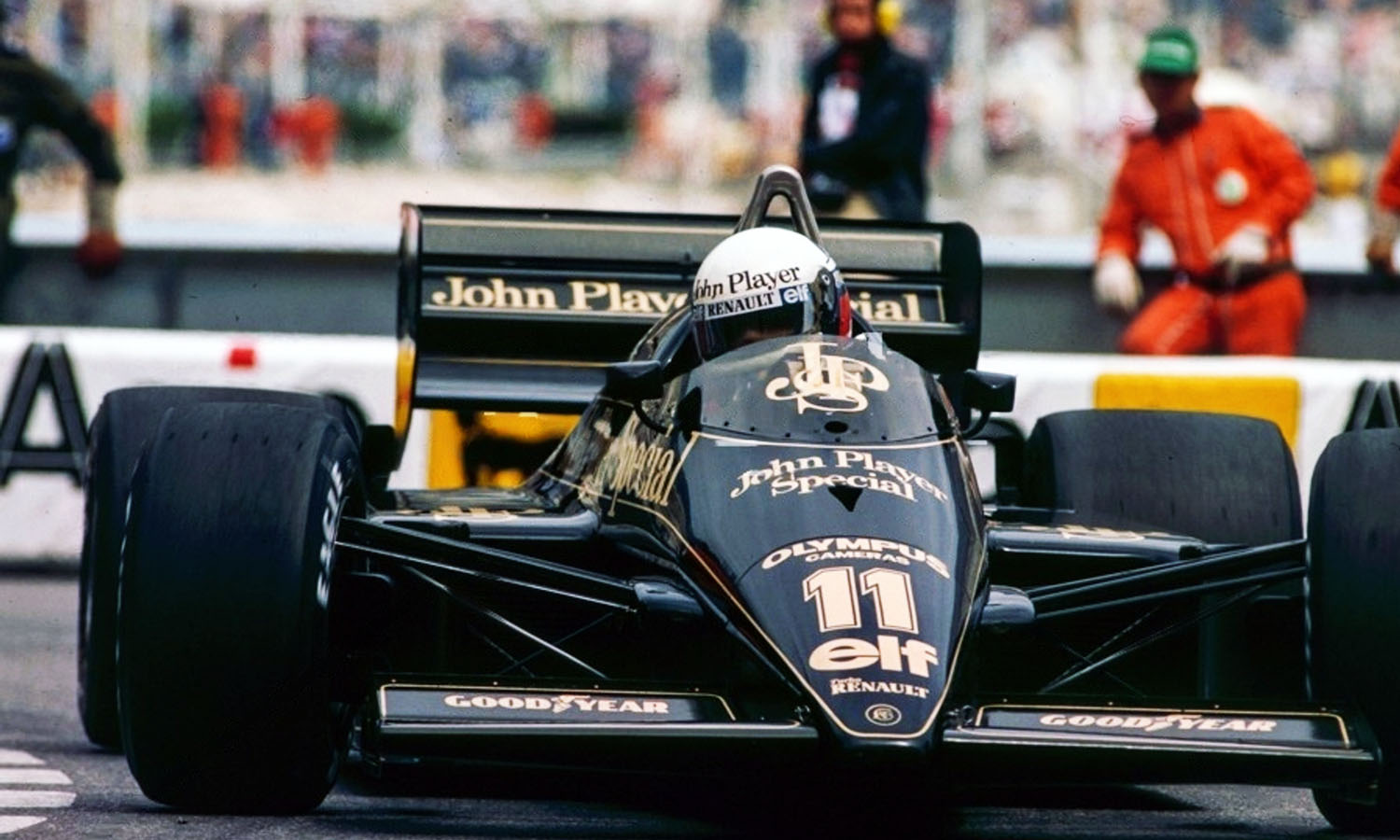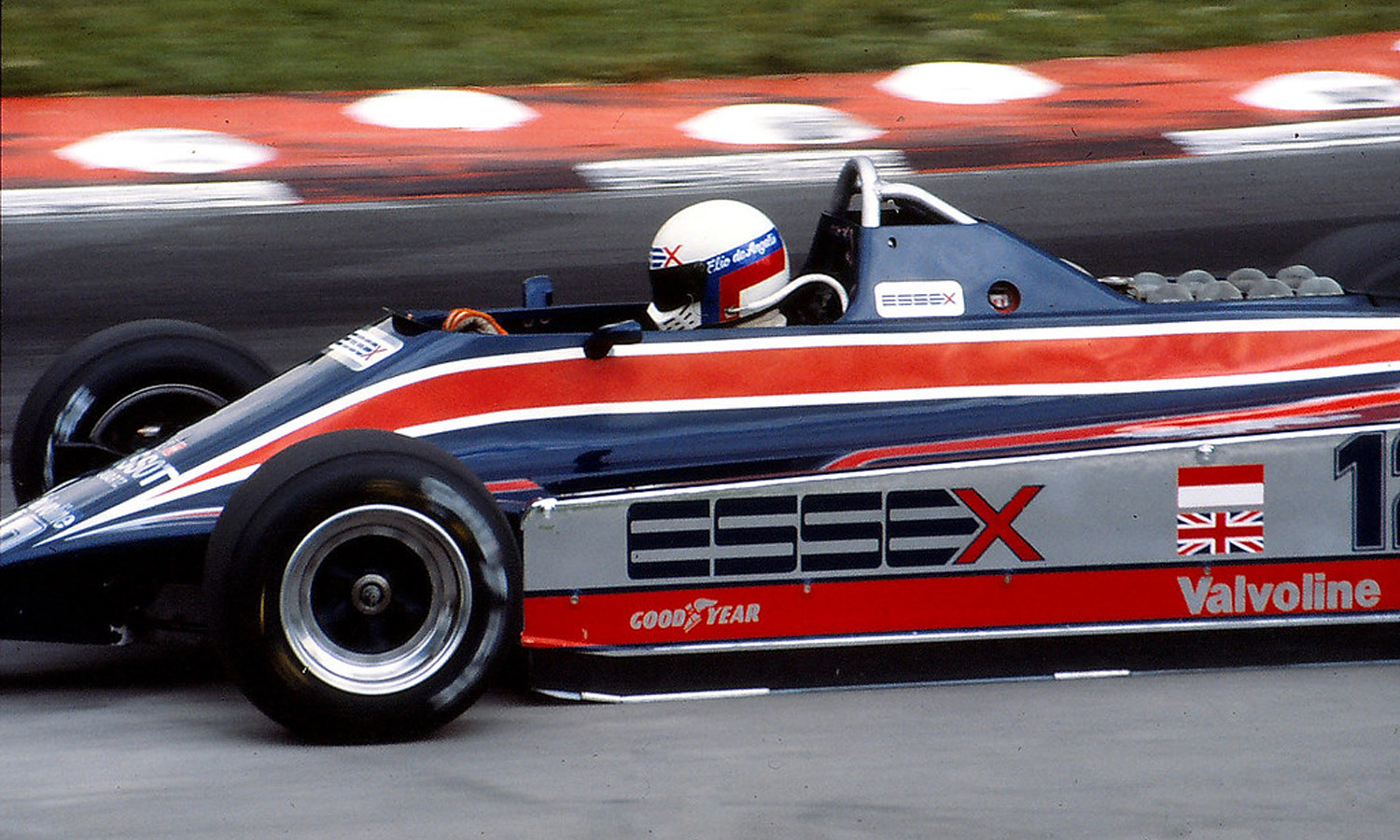Translated by this website
The Italian Elio de Angelis won last Sunday, at the Austrian Zeltweg circuit, the first race of his life. At twenty-four years of age, de Angelis is already a veteran, with four seasons in Formula 1. To get here, the Italian has come a long way, generally plagued by criticism and misunderstanding. Even though motor racing is a sport that requires a lot of money, and despite the tradition of the cult of beauty that exists in Italy, Elio de Angelis has never been fully forgiven for being too handsome and too rich. The de Angelis family is undoubtedly one of the first fortunes in Italy. The father of the young driver, a great lover of sports, has been dedicated for some time to the offshore world championship, a competition for boats with enormously powerful engines that requires budgets as high as or higher than those of a Formula 1 team.

Parental help
The money from his father helped the young Elio De Angelis to get started in karting competition. Without that money, Elio de Angelis probably wouldn’t have been able to buy one of these single seaters. He would have had to get to work because studies were not his forte. But, sitting in the little car, the money of the de Angelis was no longer useful for Elio to have more value, to speed up the braking, to limits – that others with less money – could not or did not dare to do it, trace the curves by the ideal place and finish the races in first position. “Sitting in the car, I have to fend for myself. Nobody can drive for me, nor do I want them to, because I feel capable of doing anything with a car. Once a driver sits behind the wheel, the checkbook is of no use to him. And there are too many examples of rich people who were attracted by speed, but who never amounted to anything,” he confessed one day to EL PAÍS, embittered by the criticism he received from the Italian press, when he thought about the possibility of establishing his residence in Spain. After the successes in karts, Elio De Angelis moved on to Formula 3, where he continued his streak to later move on to Formula 2, in which he had the thankless task of fine-tuning a Ferrari-powered single-seater. The car never quite reached the level of competitiveness that others had, and Elio de Angelis suffered a setback on his upstroke. “The Italian press said of me, then, that I was finished, that I should retire. But I continued.”
It was then that he decided to take the final step to formula 1. Niki Lauda had signed for the Brabham team and believed in the possibilities of the young Italian, in addition to having a project to create an airline company in partnership with de Angelis’ father that, later, the Austrian did alone with negative results. Lauda pressured Bernie Ecclestone, owner-director of the team, to sign the young Elio, but the Brazilian Nelson Piquet crossed his path. De Angelis made value of his money and his father offered Ecclestone a significant amount of two million so that his son would be Niki Lauda’s partner. But, after a long bid, Nelson Piquet ended up offering an amount unattainable for the Italian. Brazilian money beat Italian money, and Nelson Piquet took over.
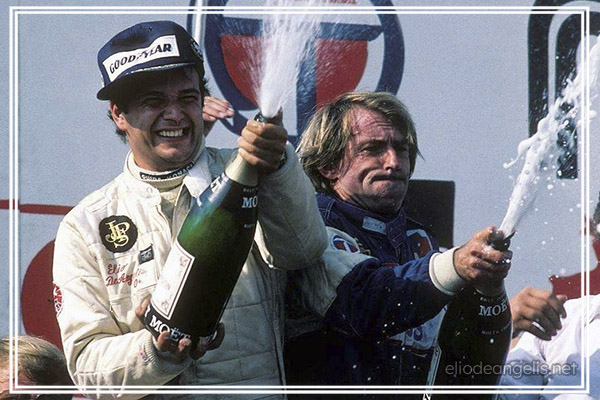
No one, ever, blamed Nelson Piquet for how he got there. With the retirement of Niki Lauda, the Brazilian became the first driver of the team and, shortly after, he won the world championship.
Meanwhile, Elio de Angelis had to travel a more difficult and tortuous path to get to where he is. He had started Formula 1 when he was only twenty years old, too young to be taken seriously. He fought unspeakably to show that he was not there on a whim, just to have fun, but that he was a true professional. He became the first driver of the legendary British team Lotus when he was only twenty-two years old, but not even that was enough for his merits to be recognized. He is now twenty-four, he is still bello come il suo nome – as they have said of him in Italy- and he is even richer than before. Because now his father no longer must pay for him to drive. Now, Elio de Angelis earns more than one hundred million pesetas a year, and he is one of the best drivers in the circus.
© 1982 El País • By Ignacio Lewin • Published for entertainment and educational purposes, no copyright infringement is intended

